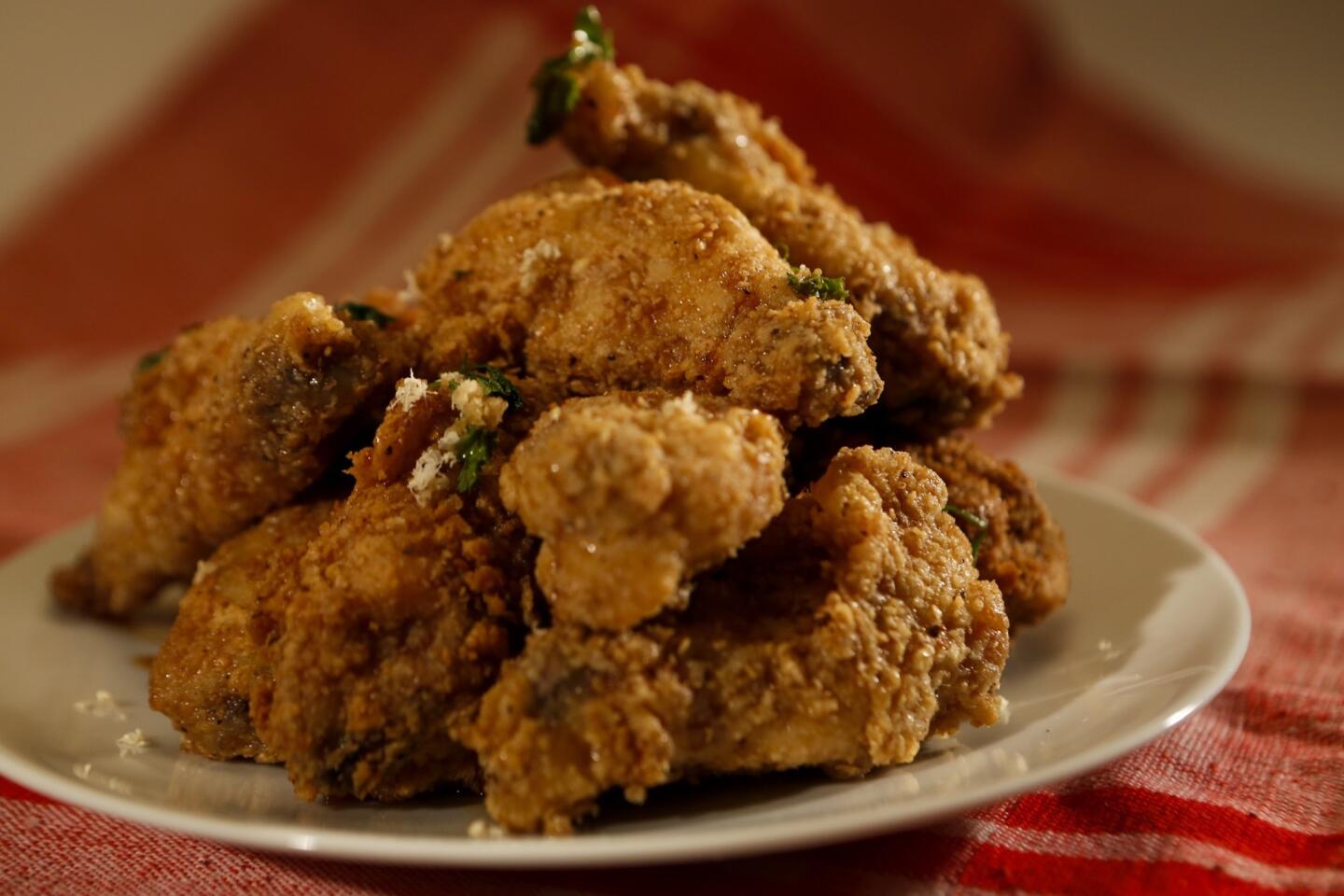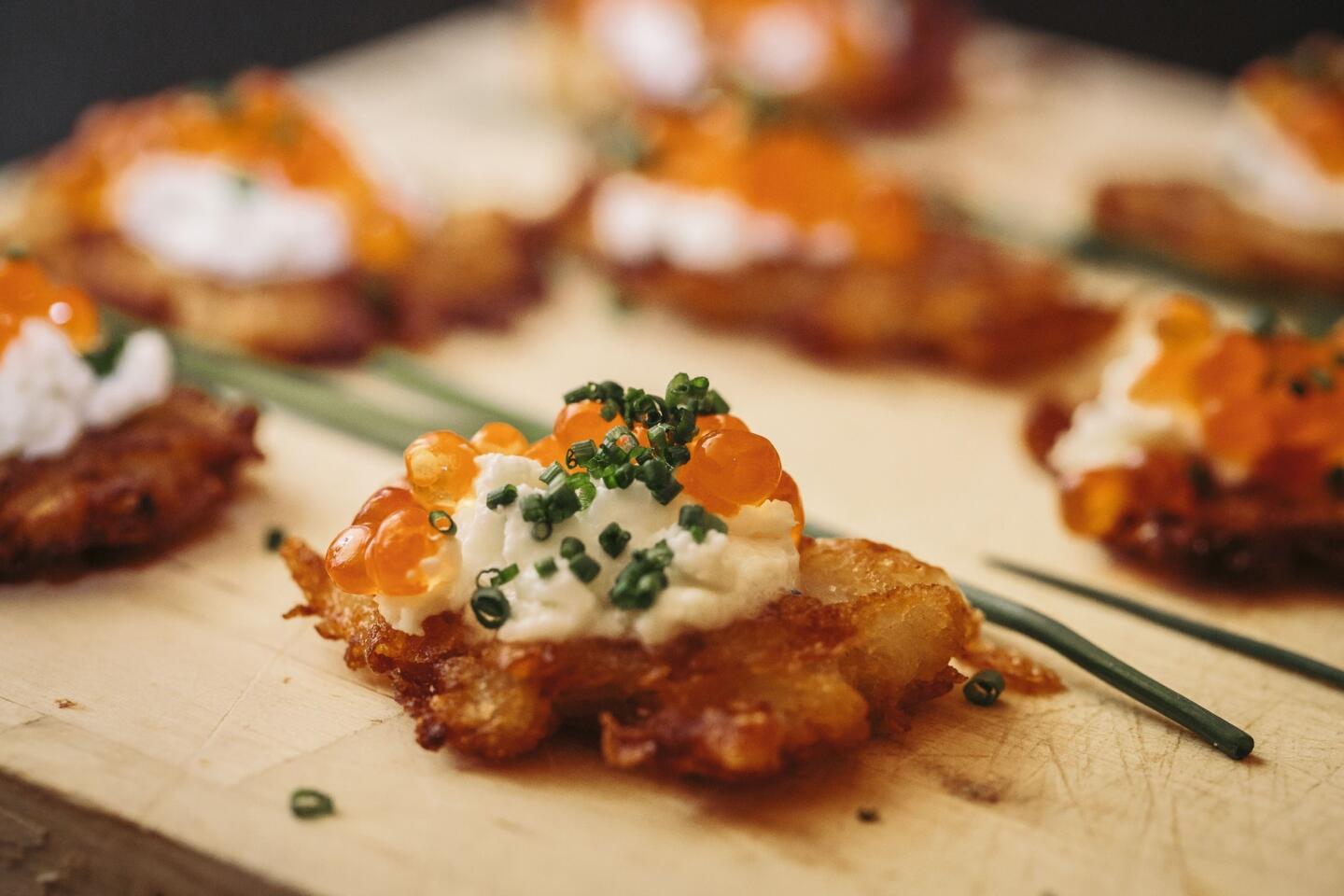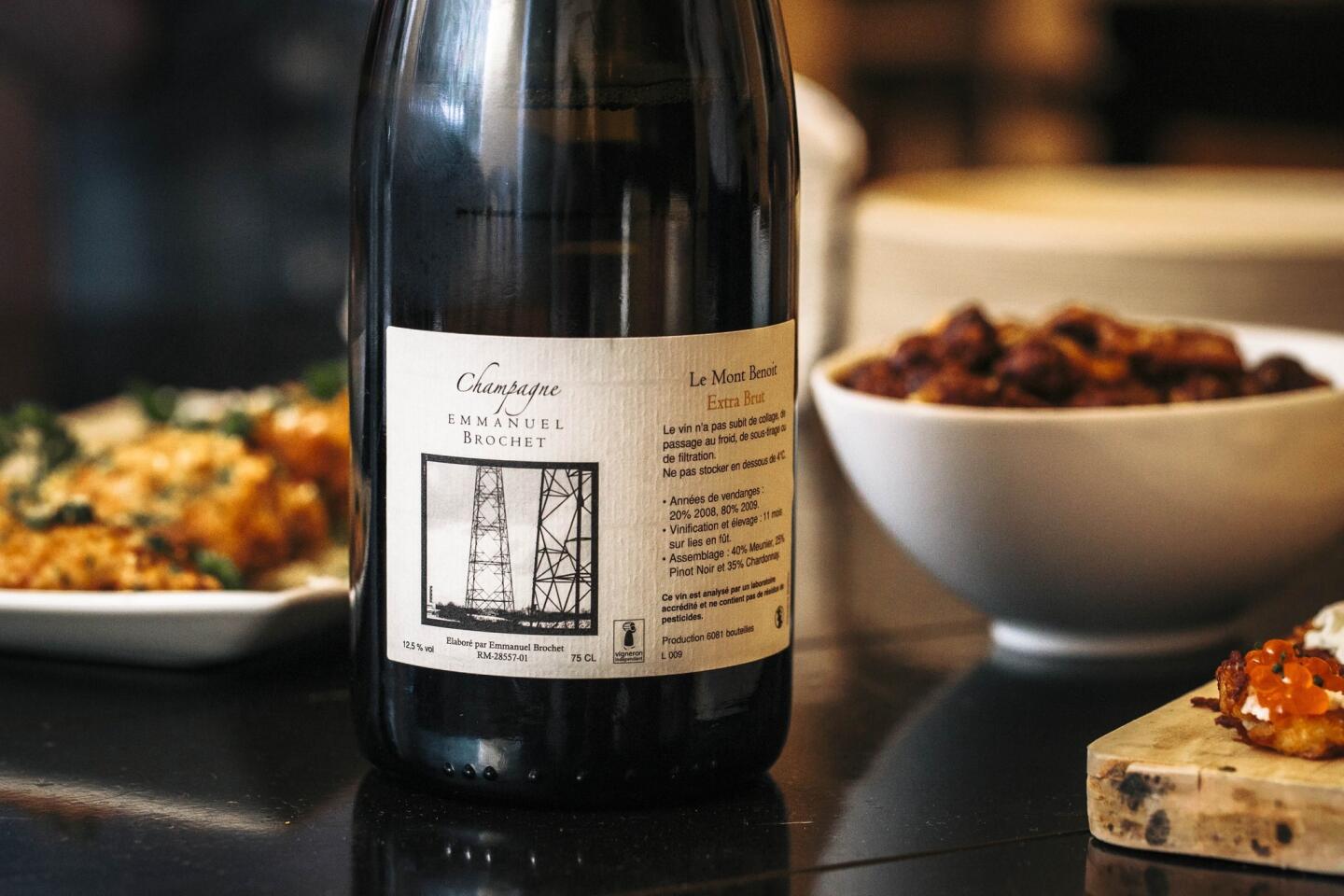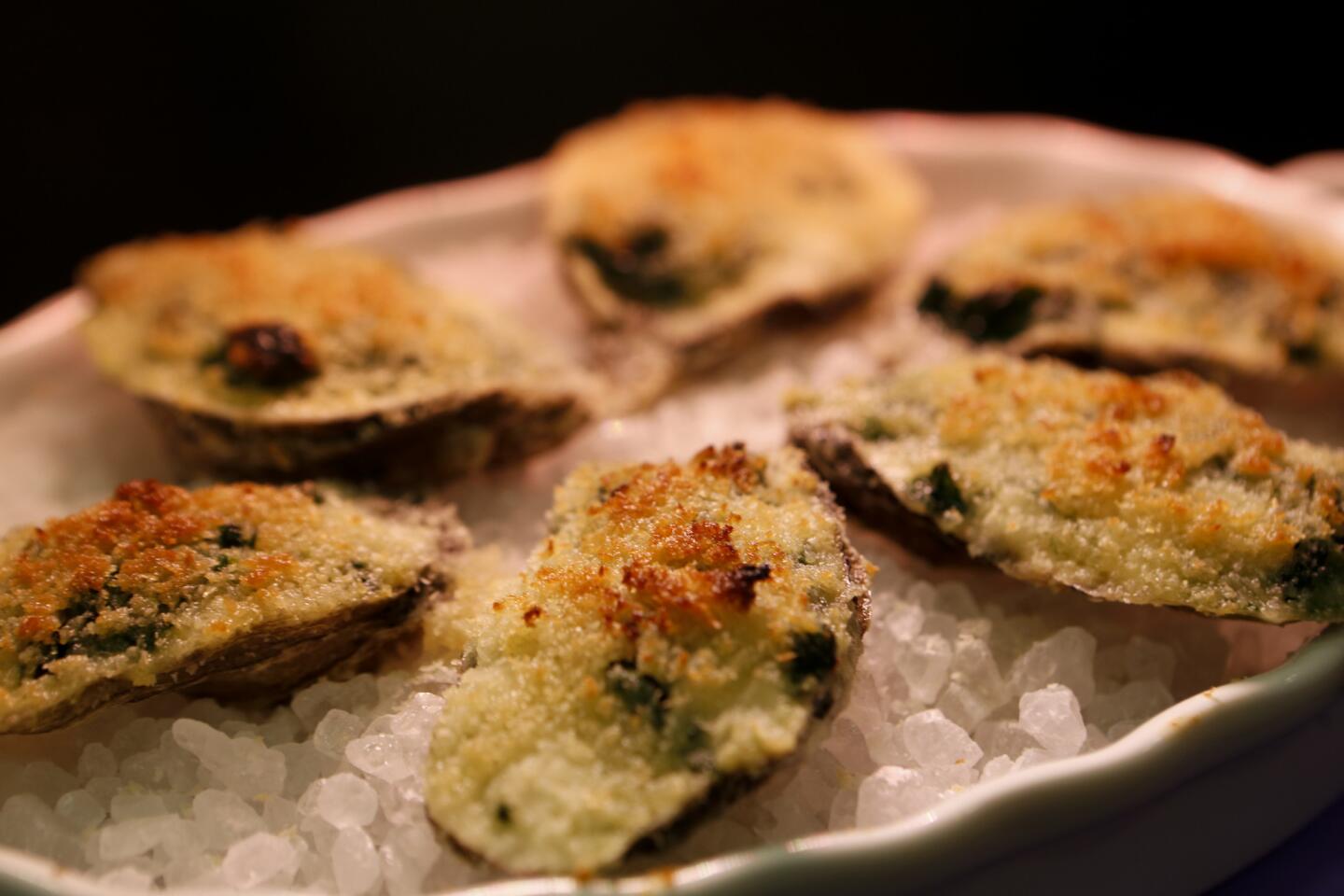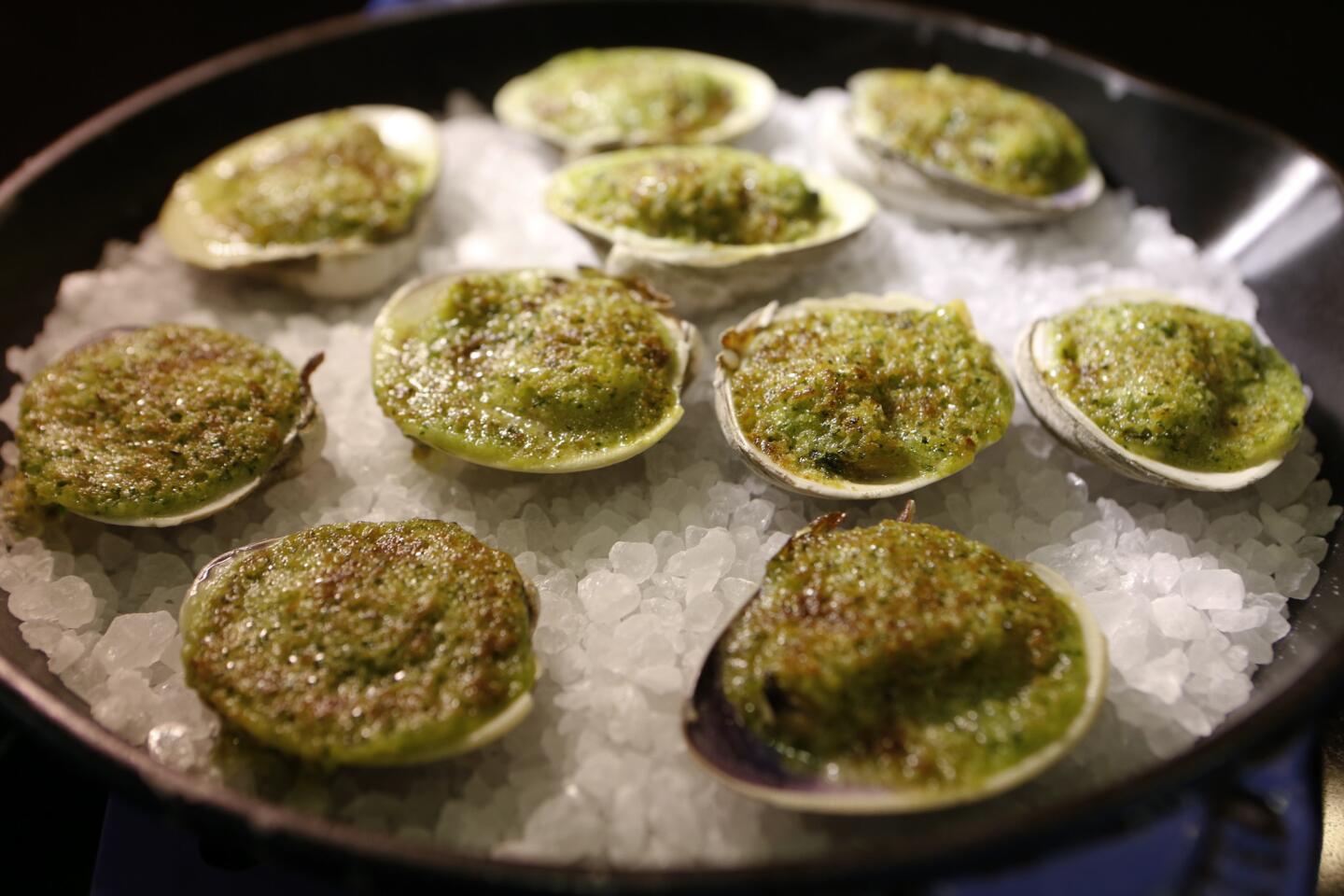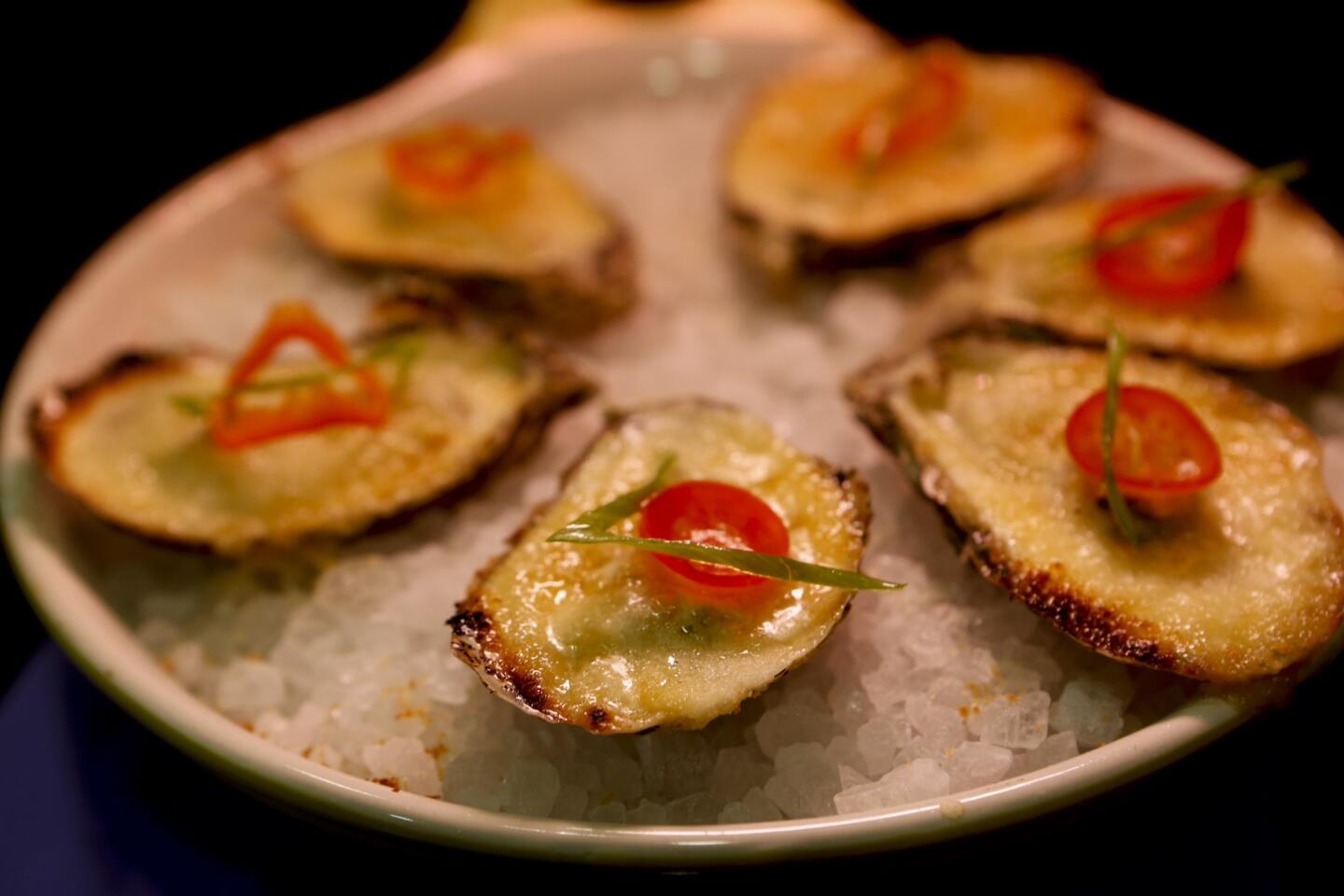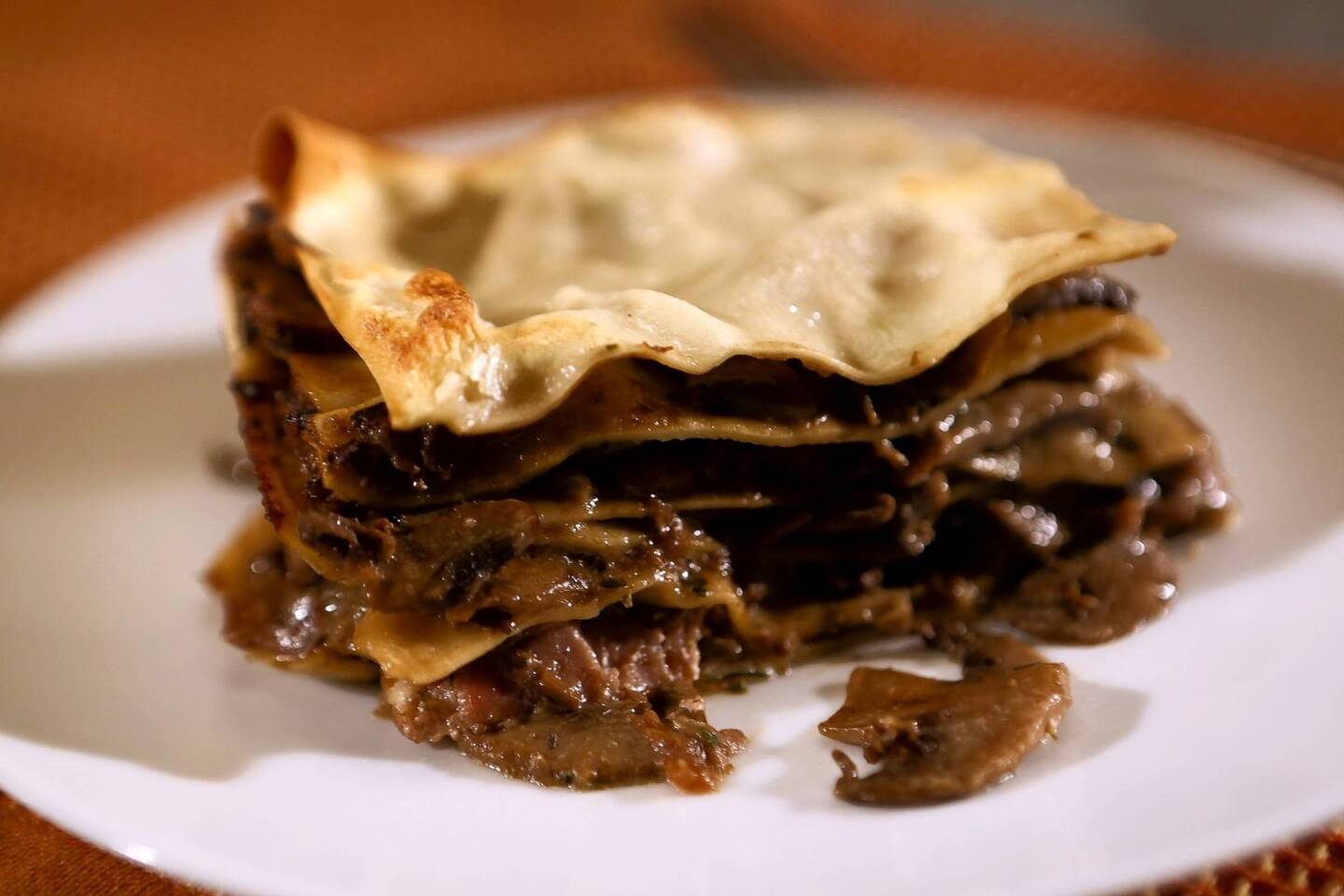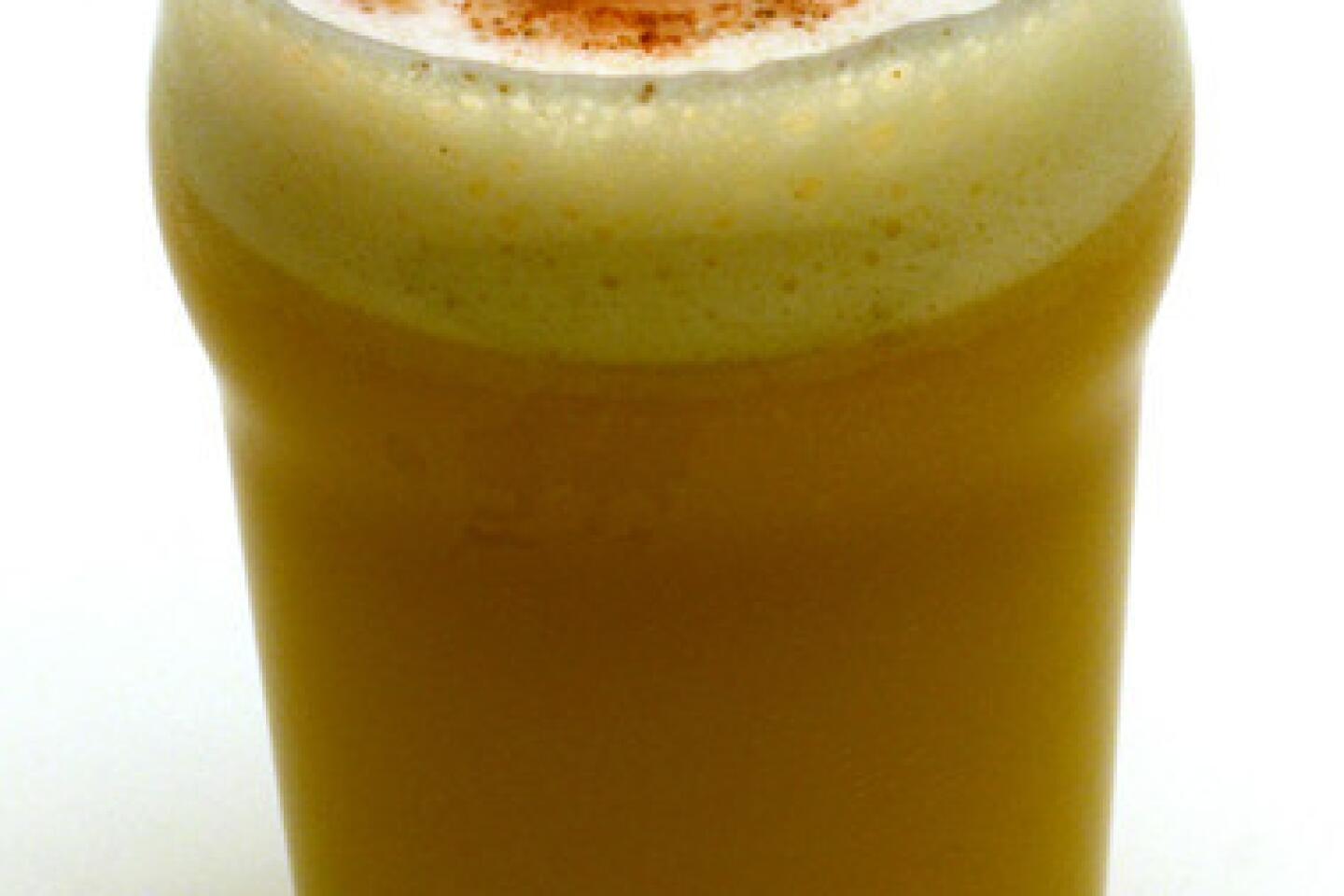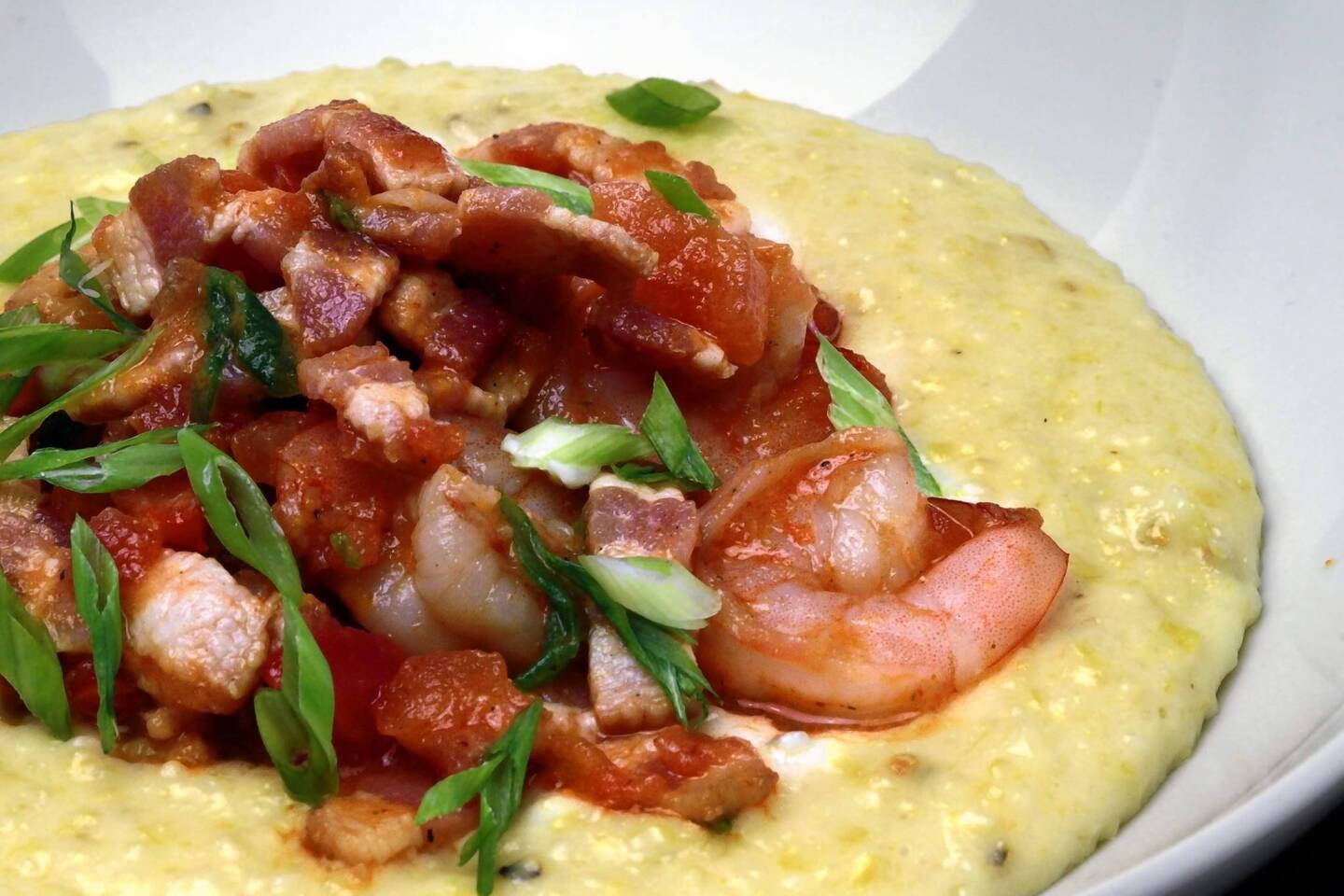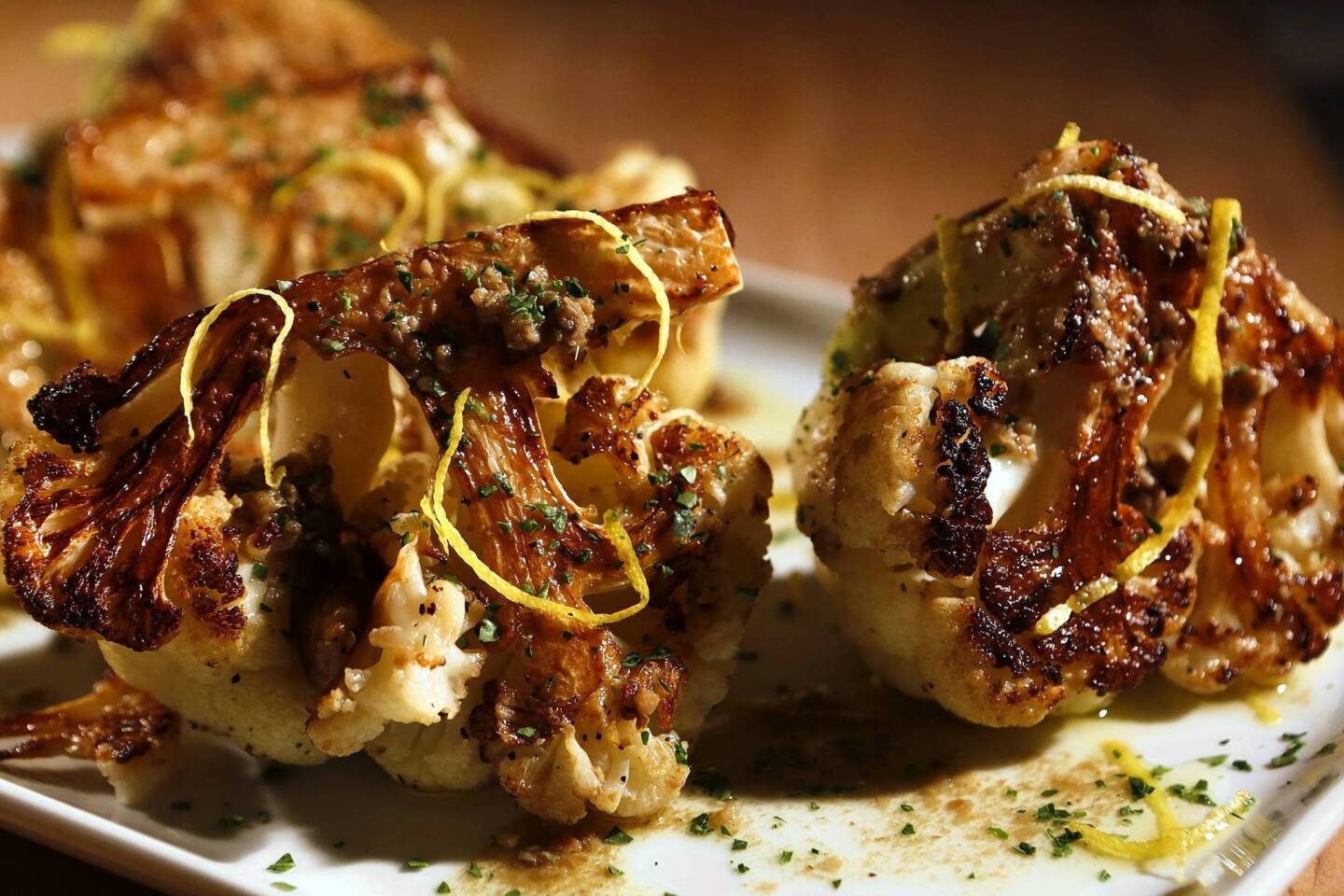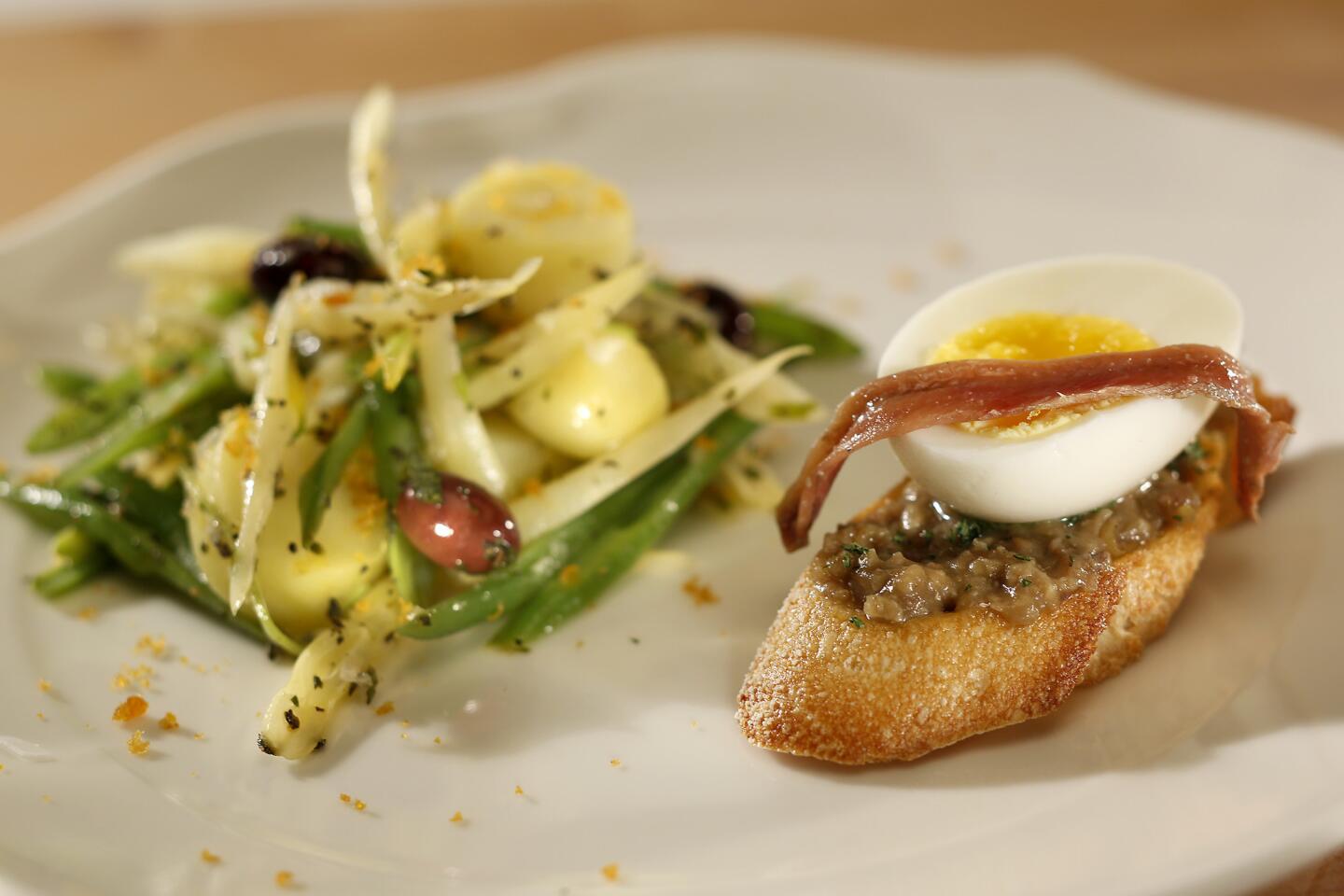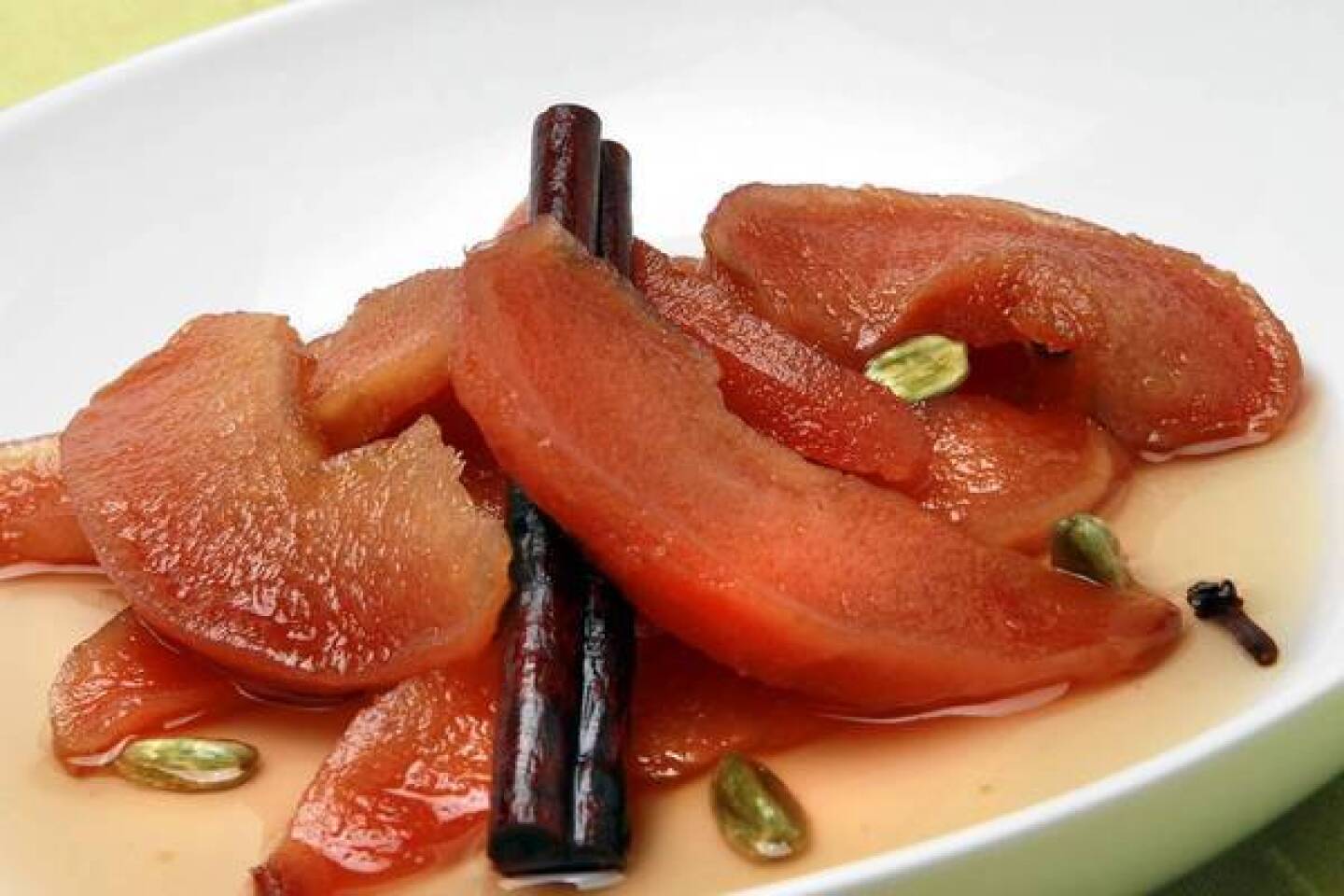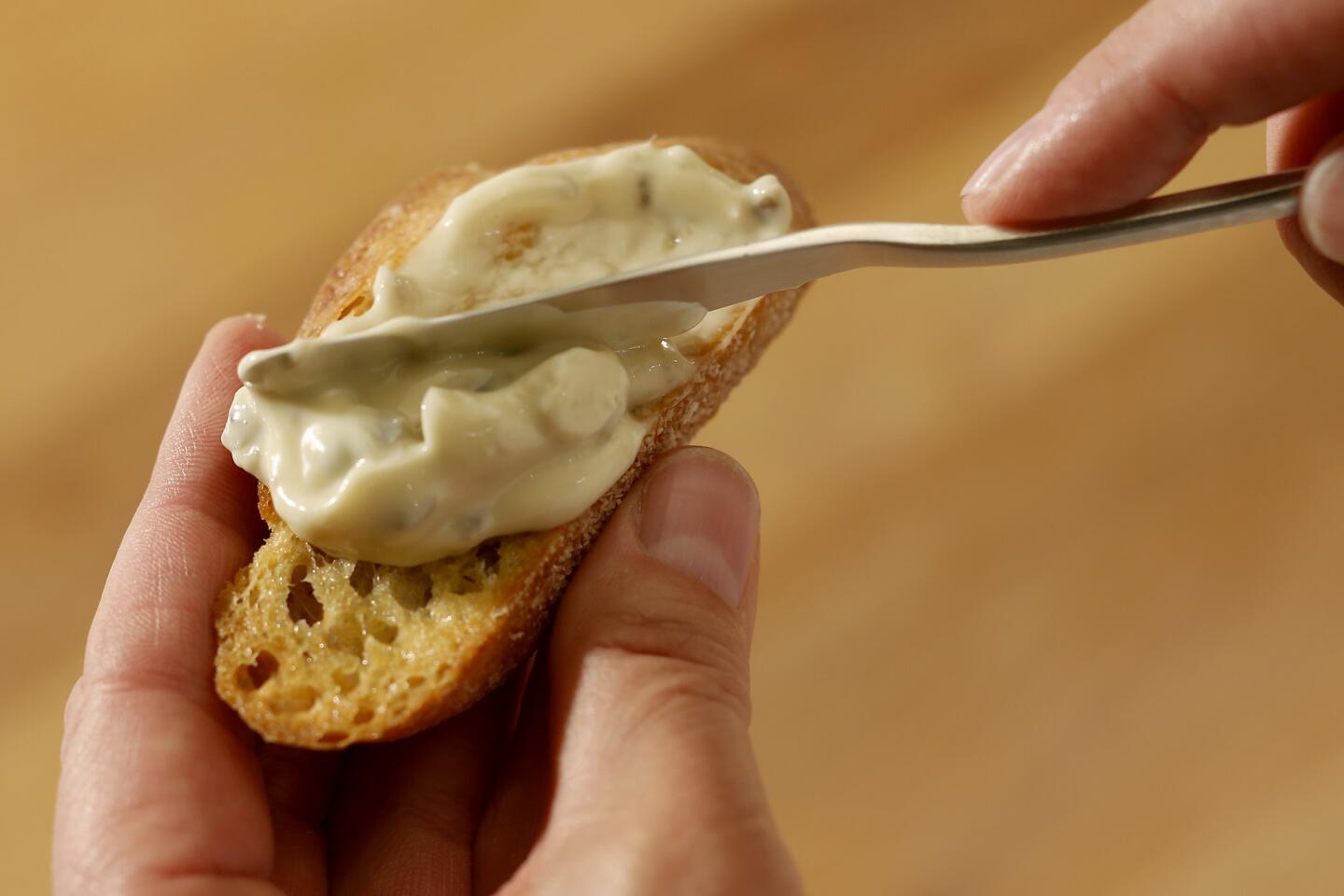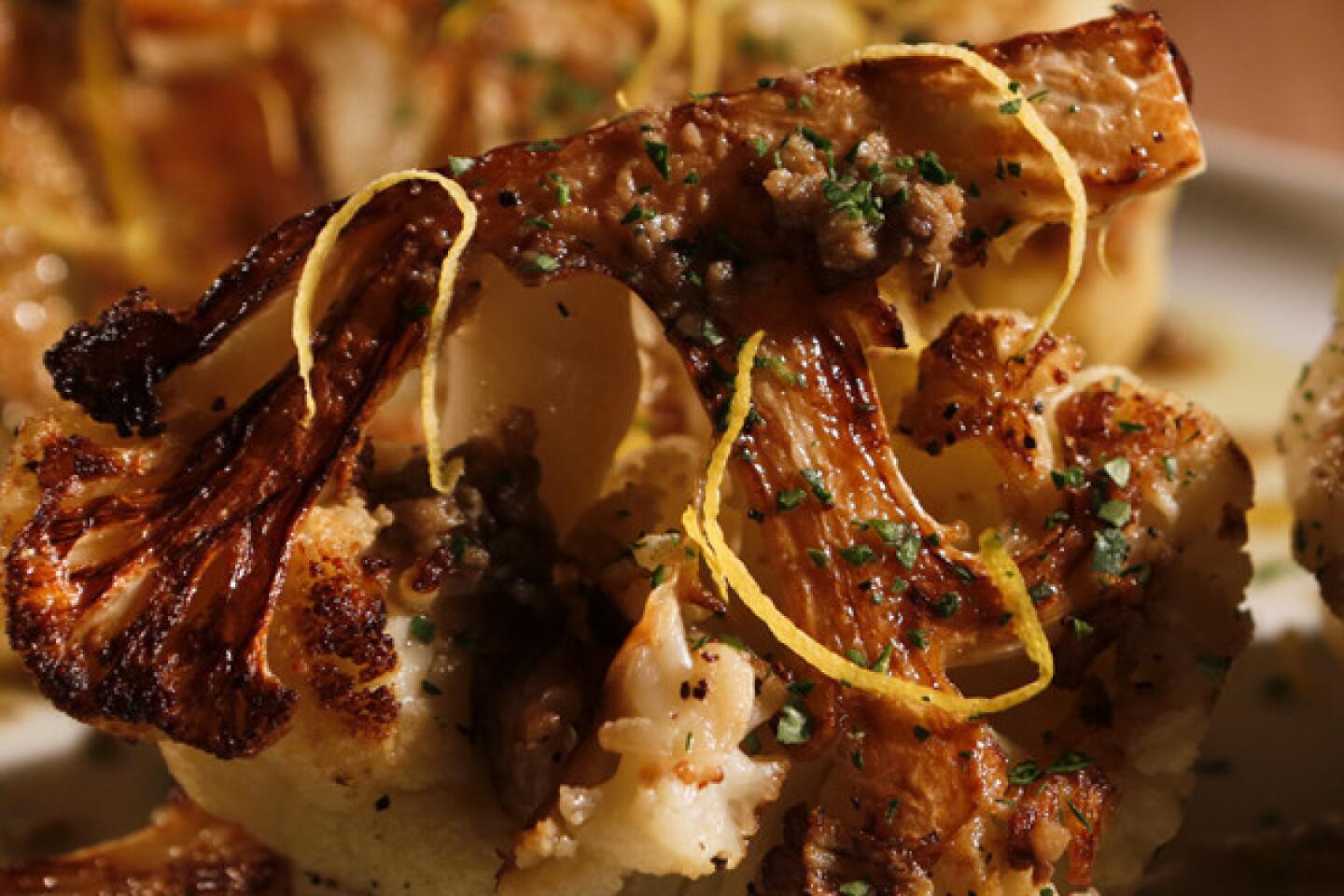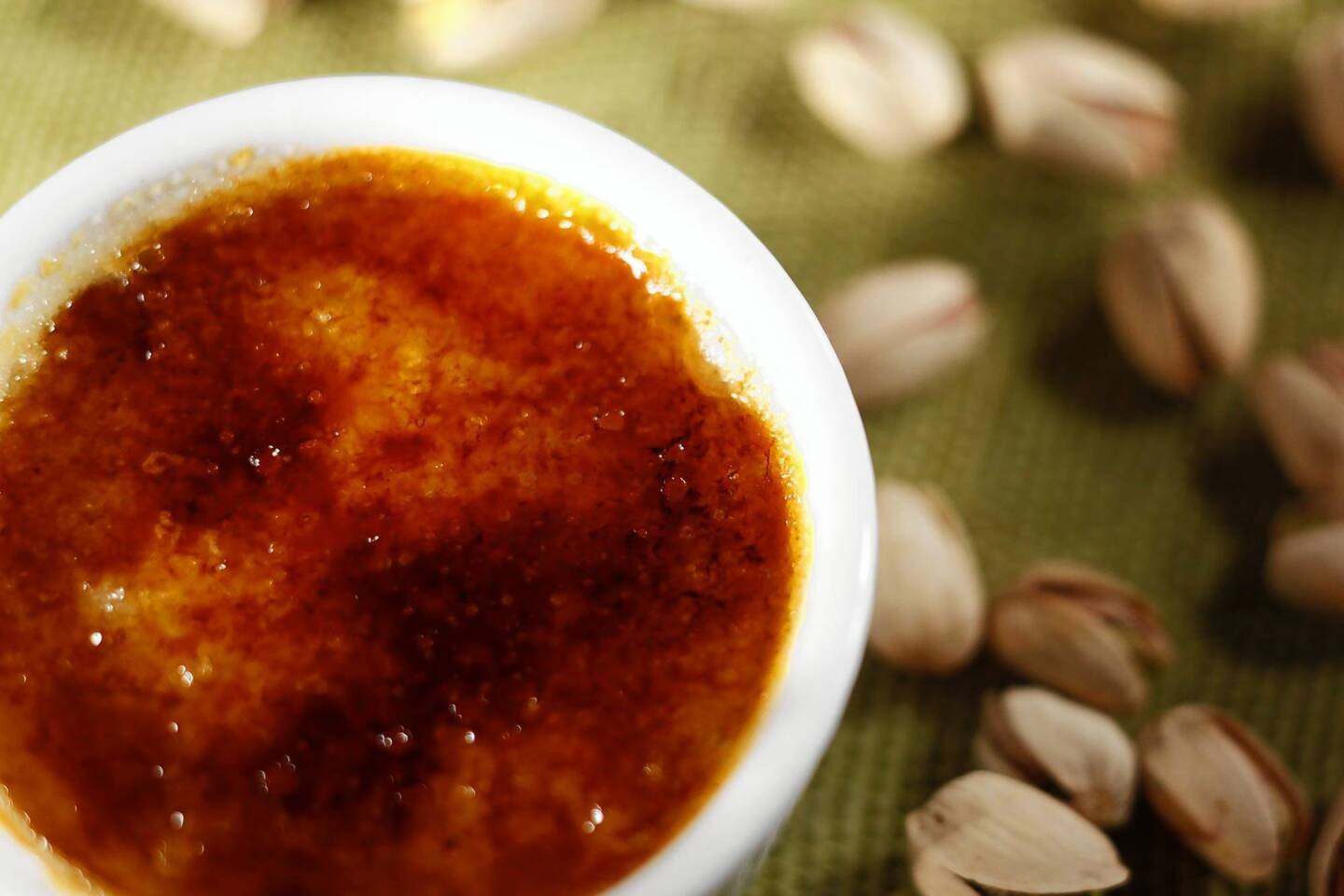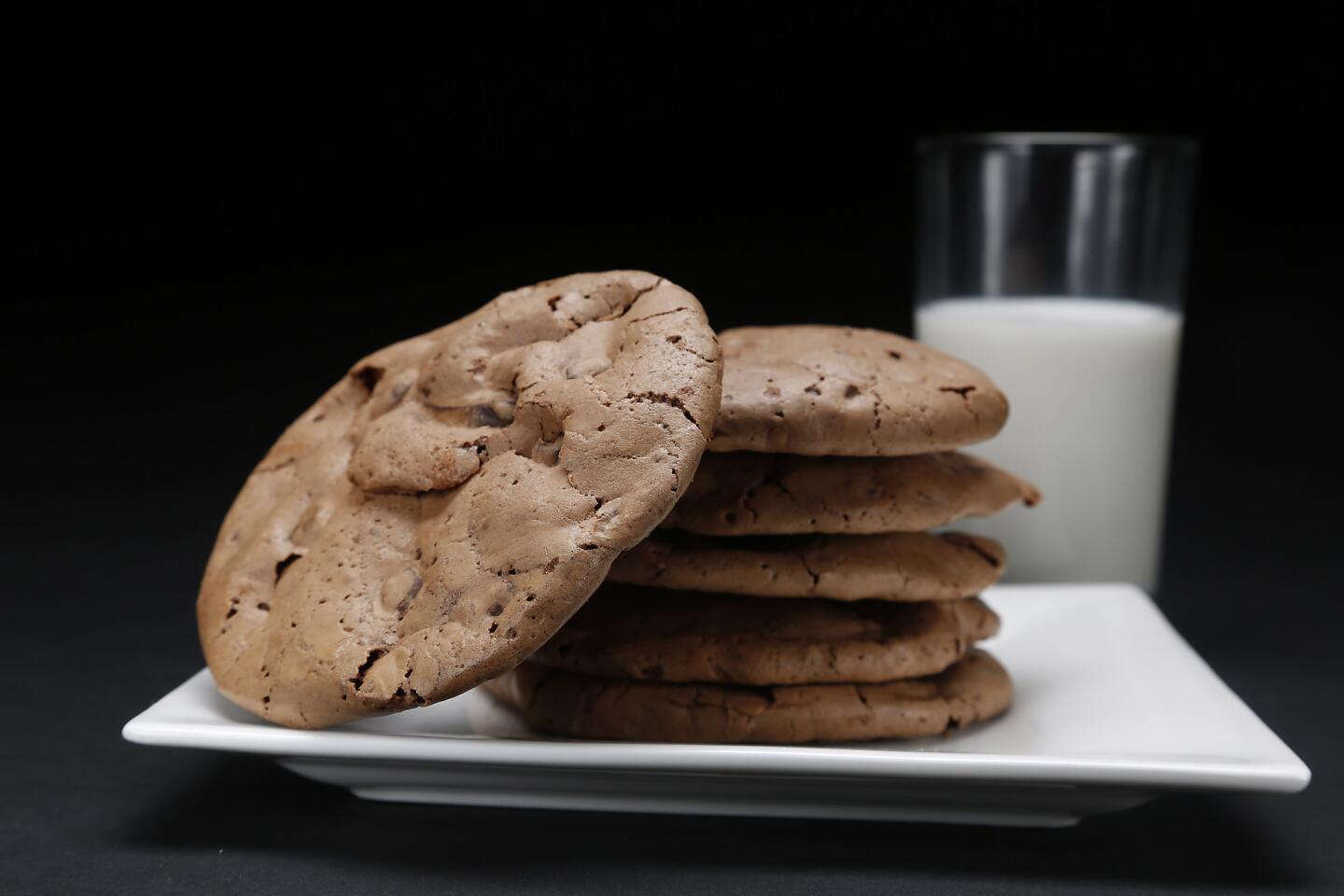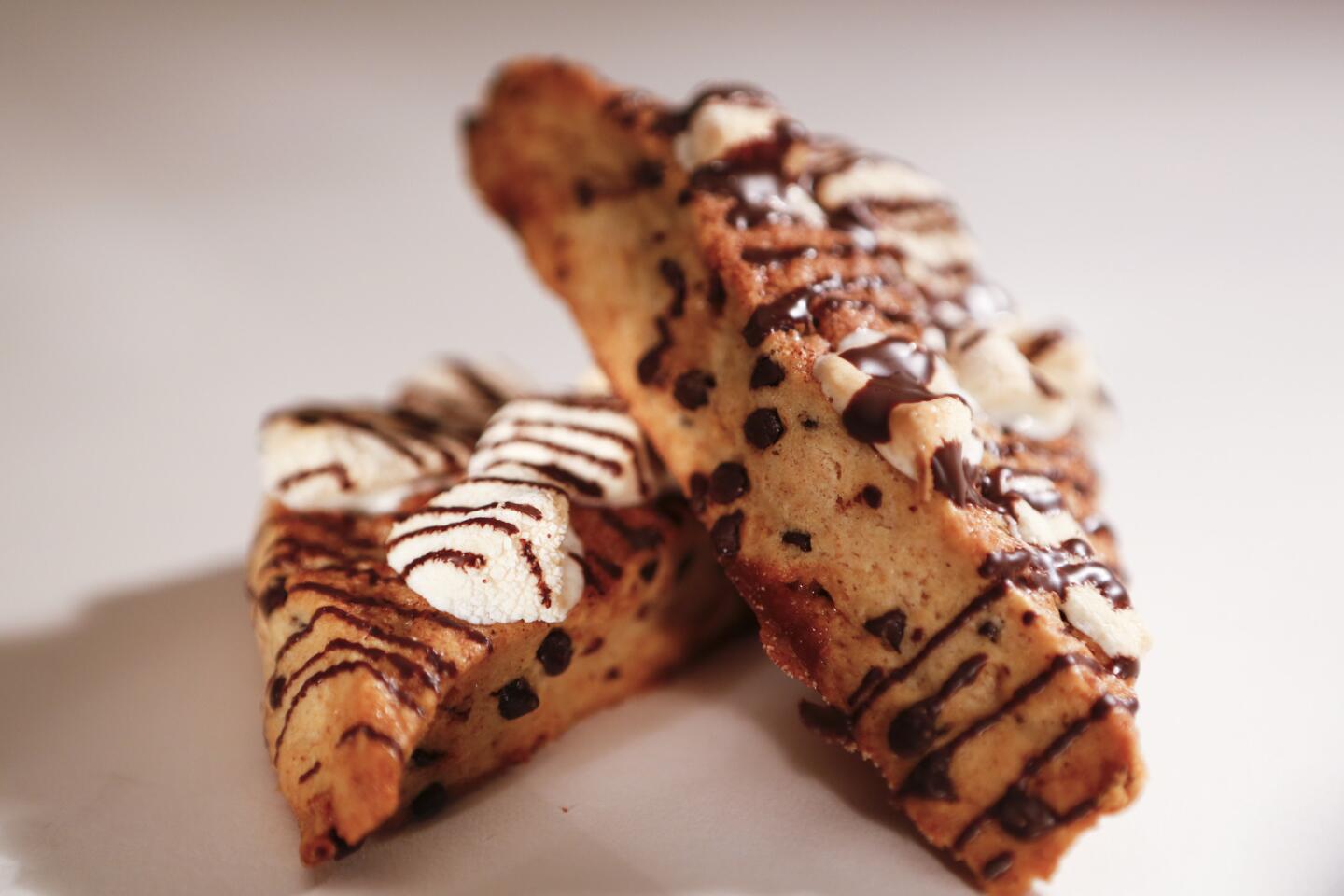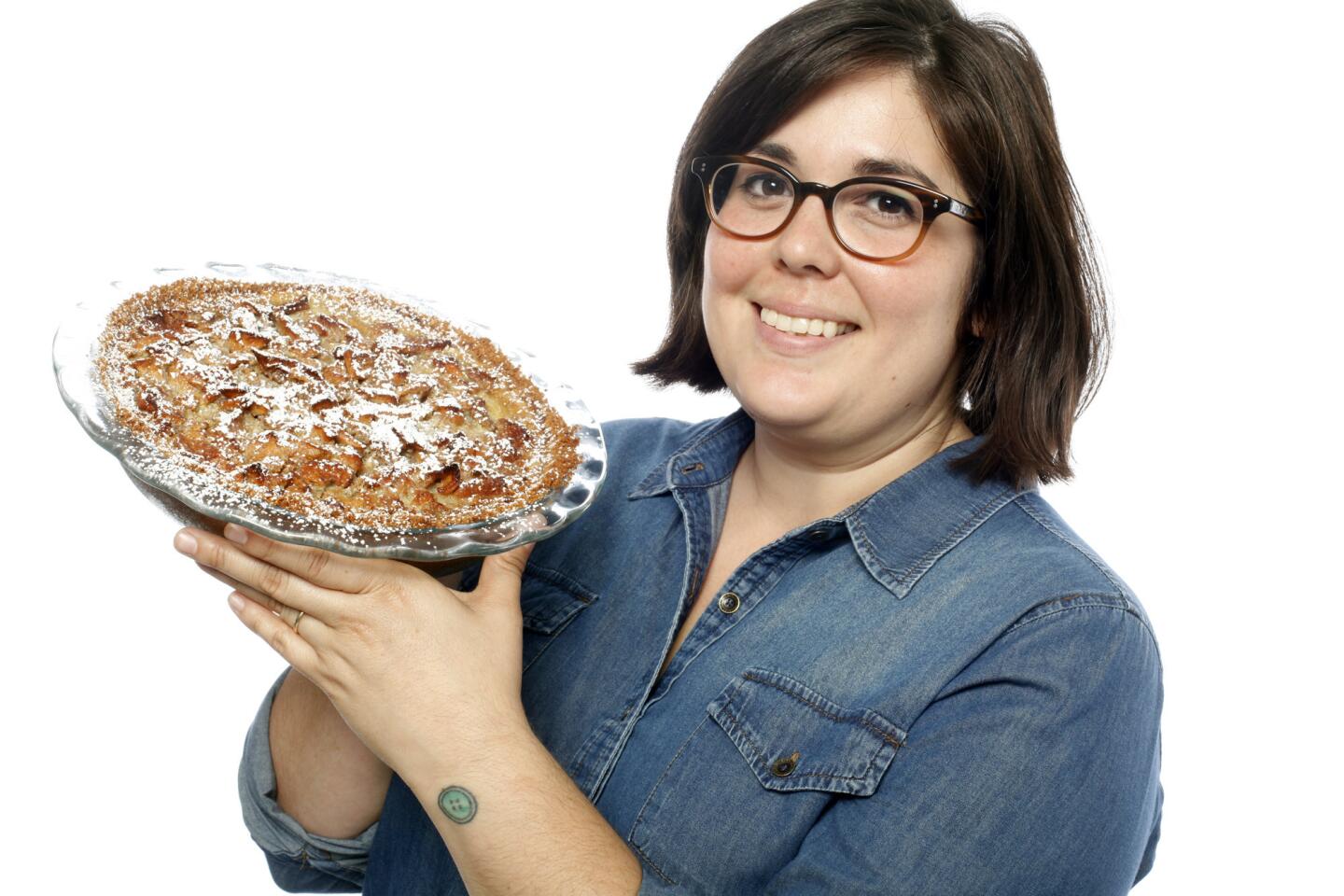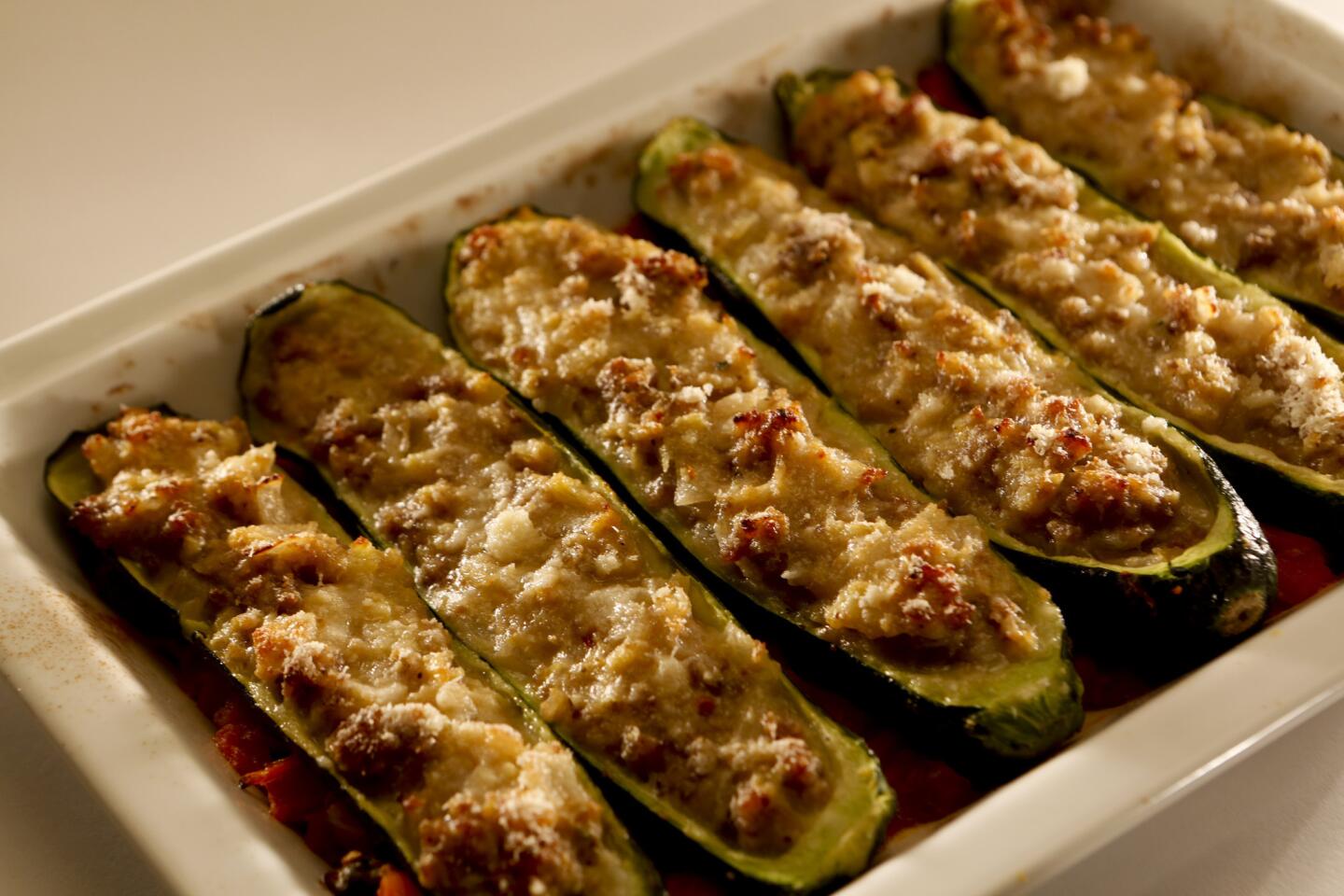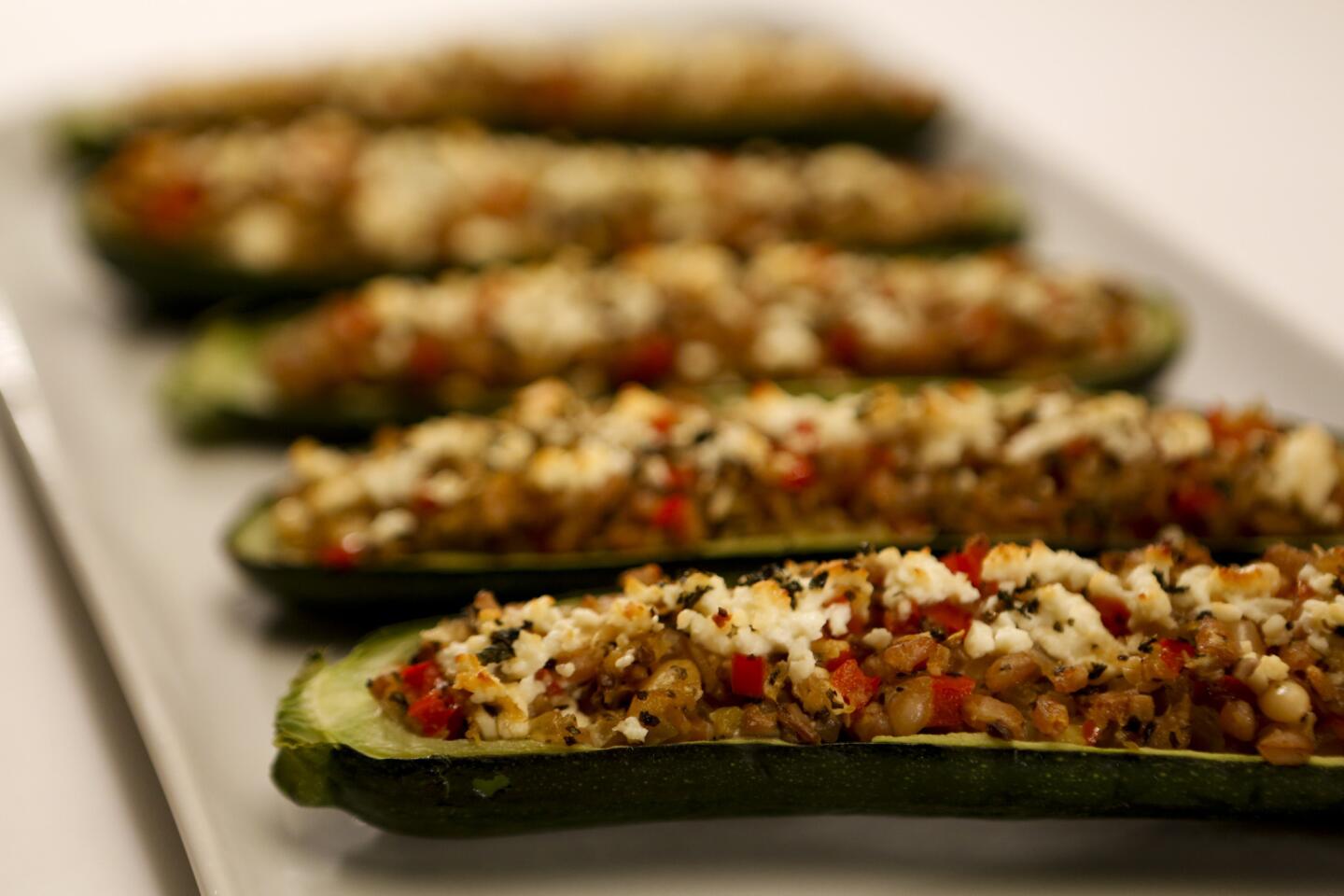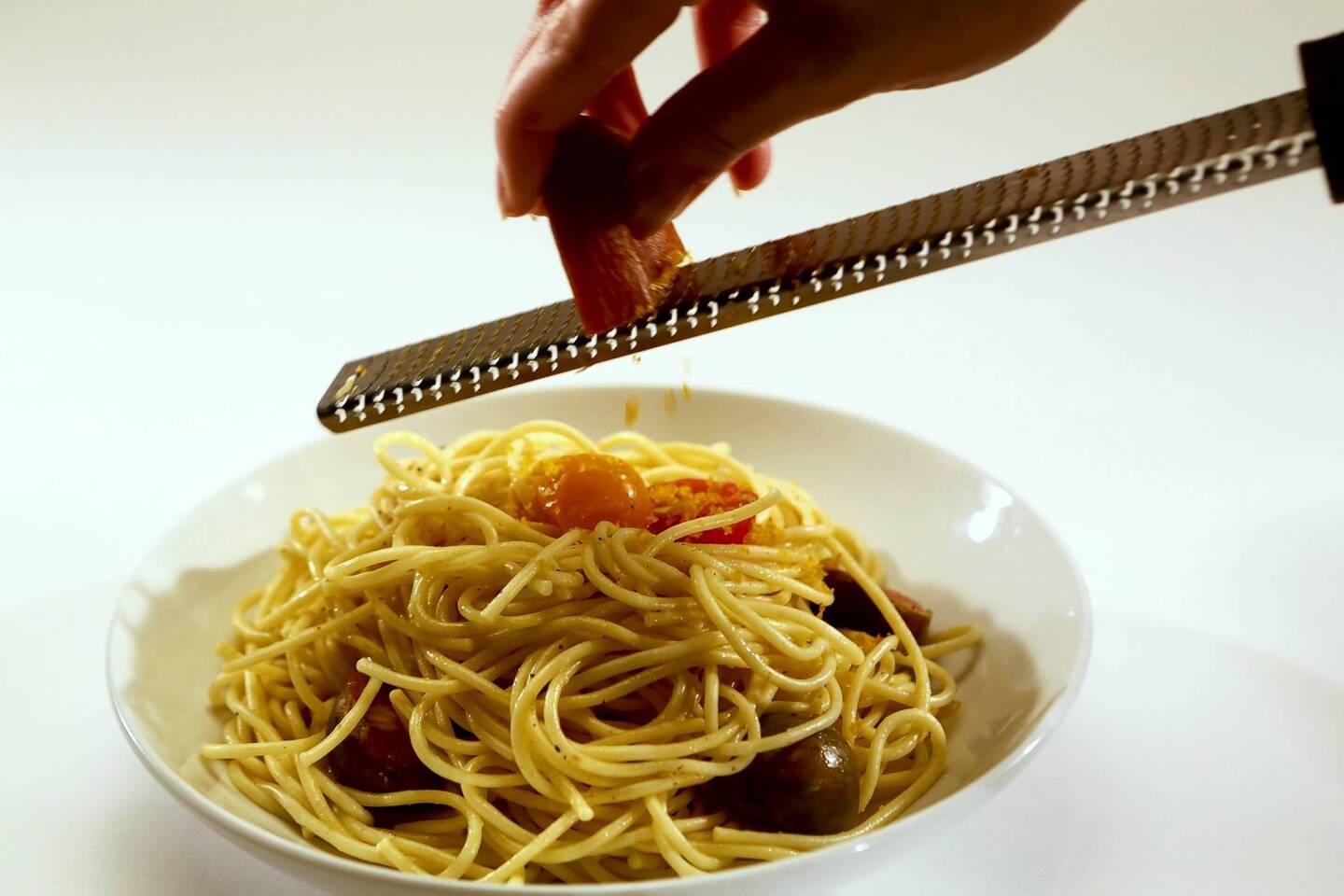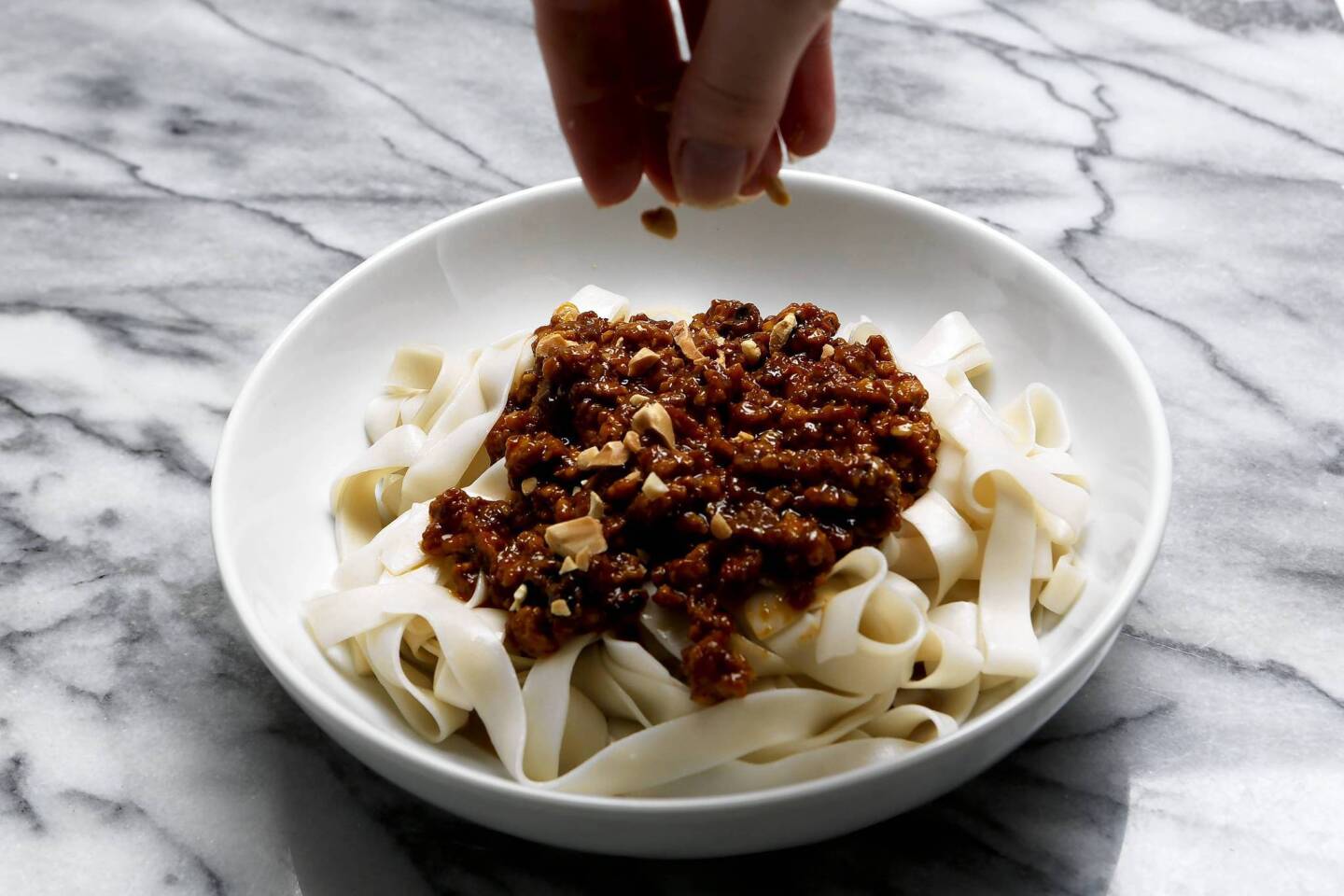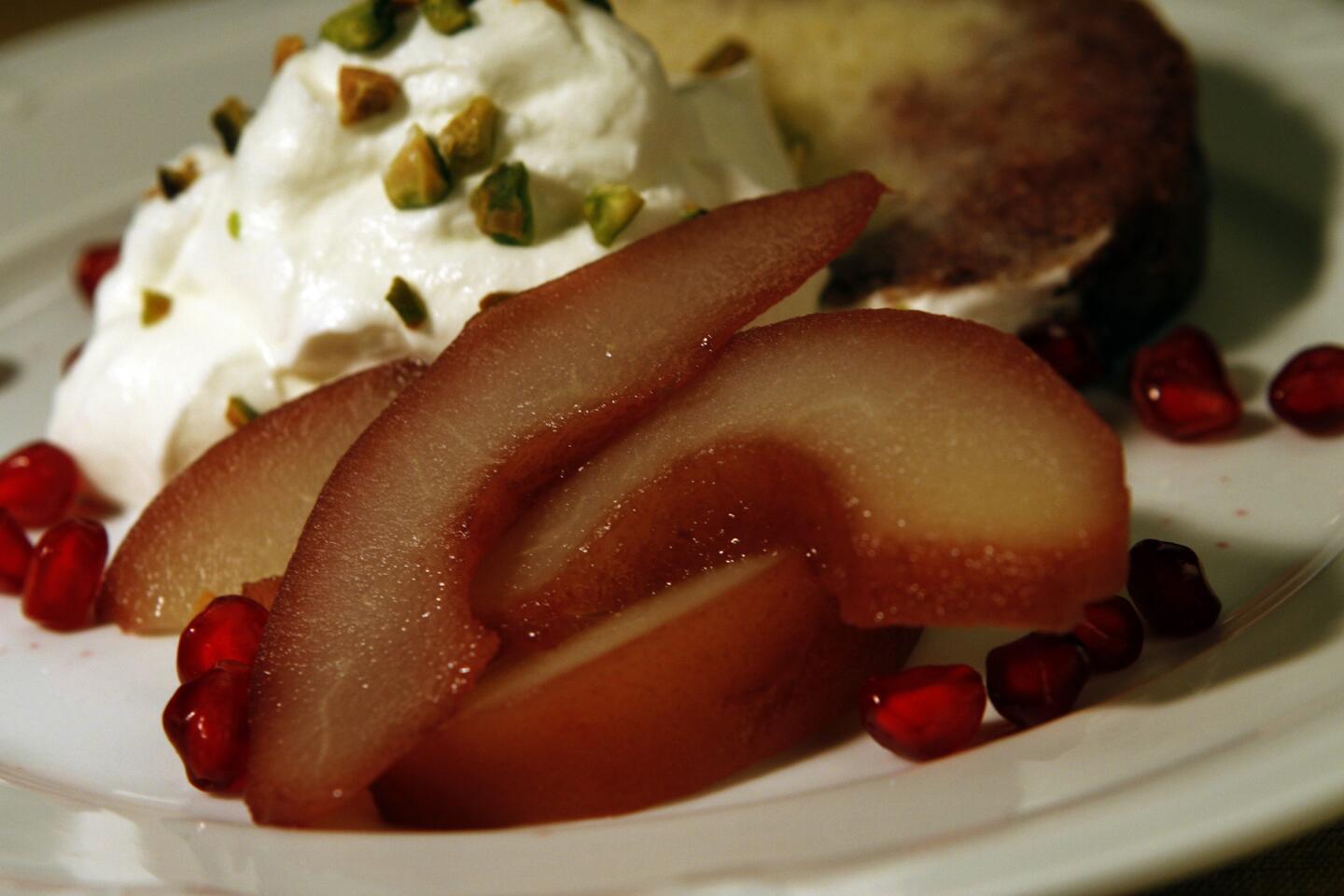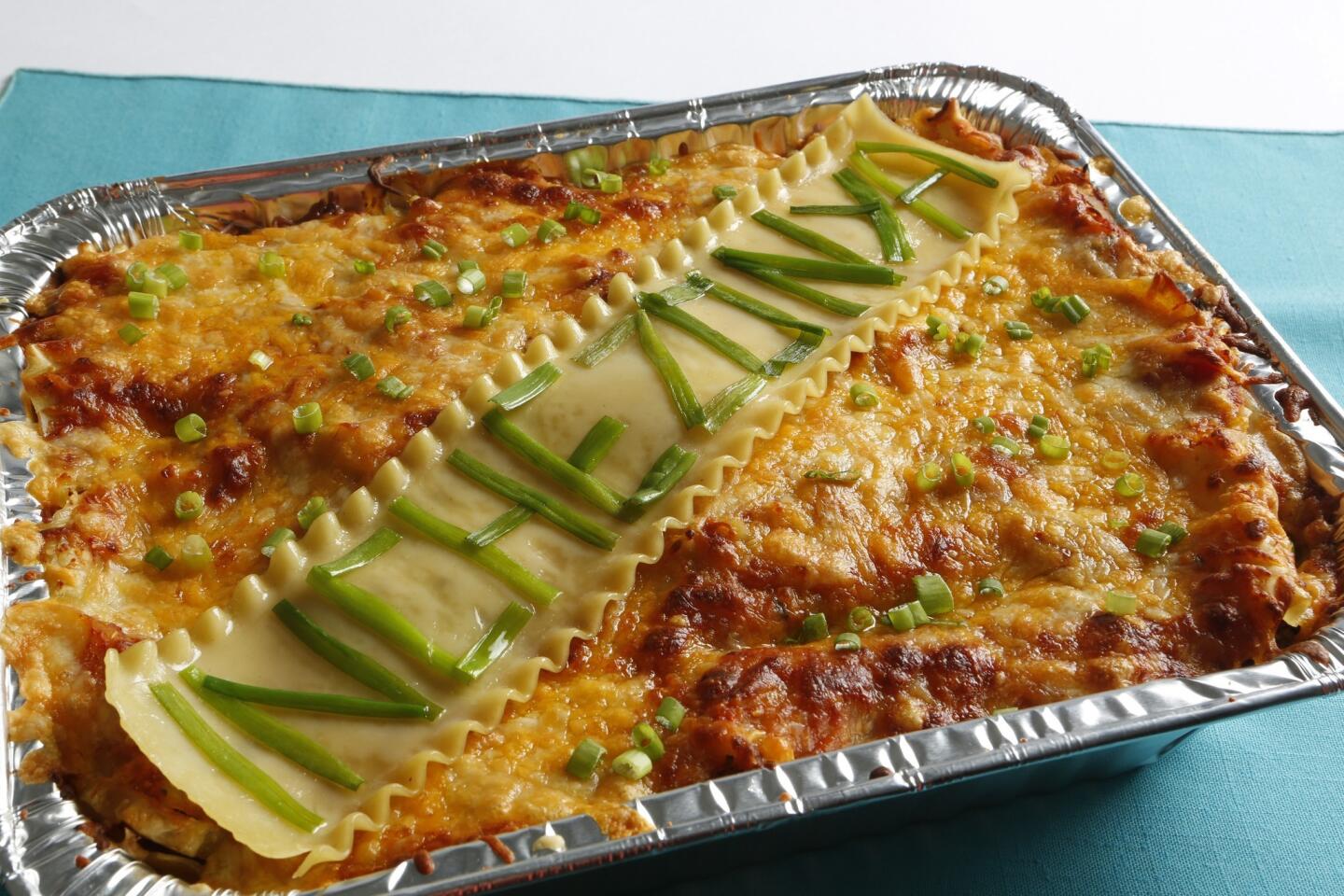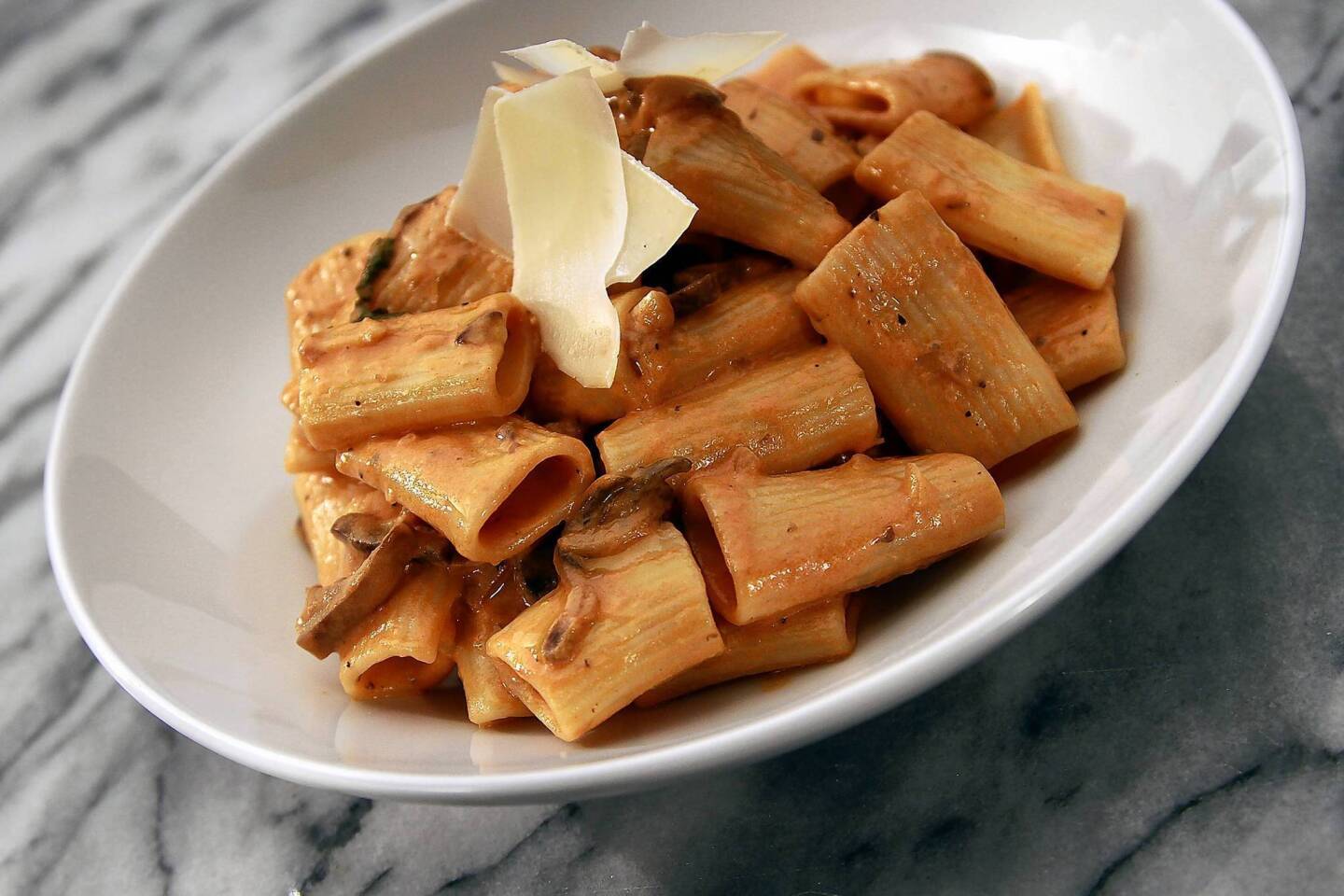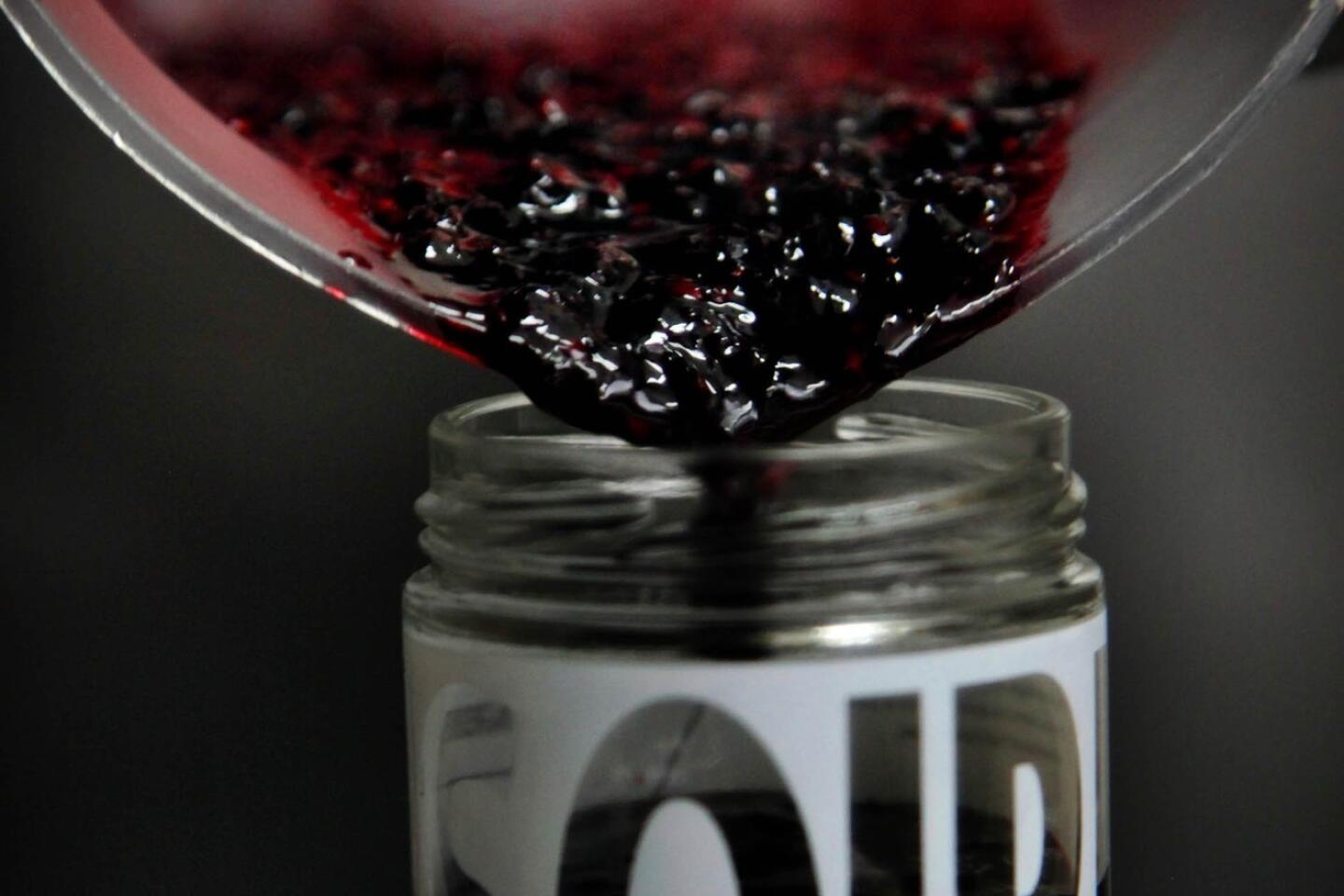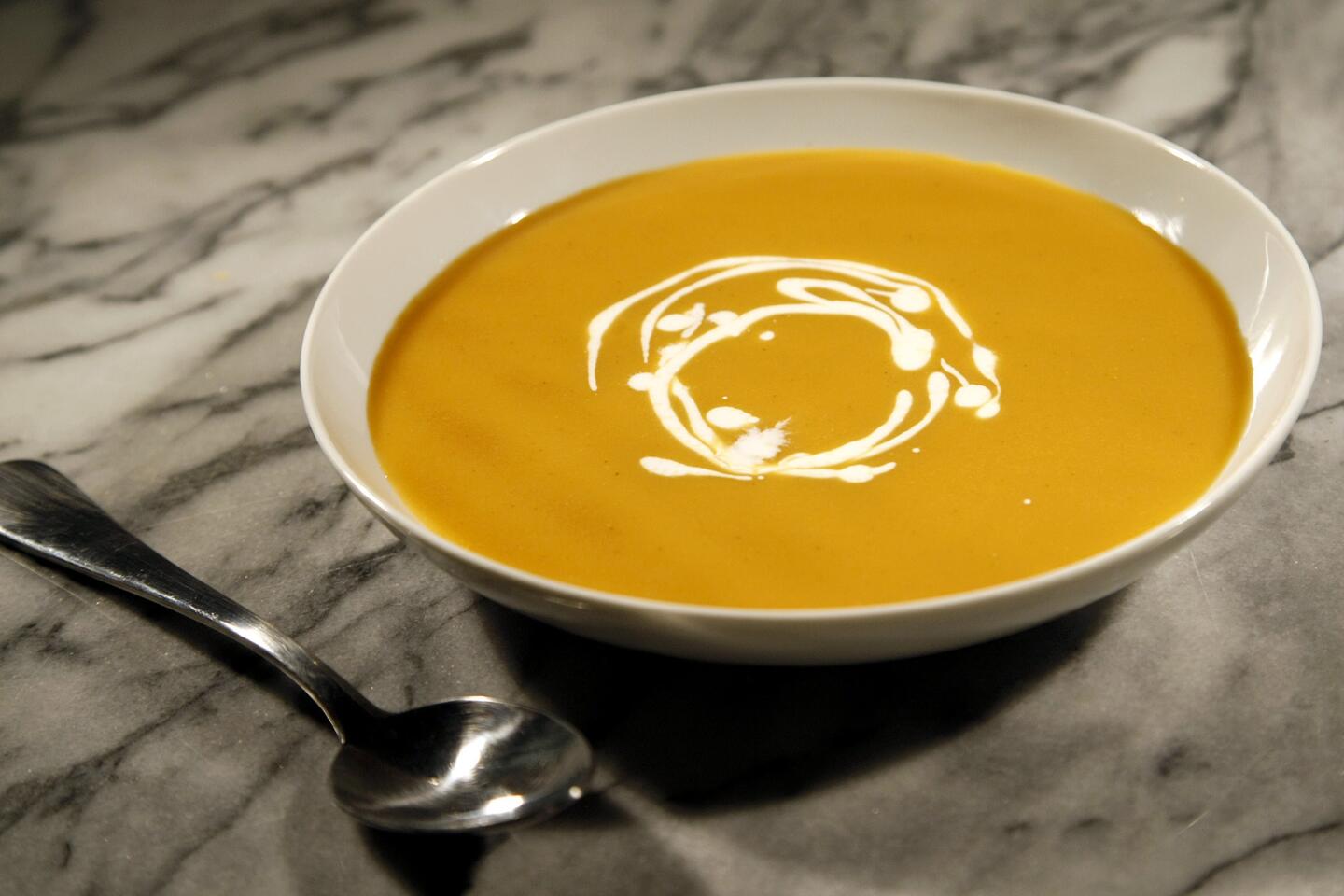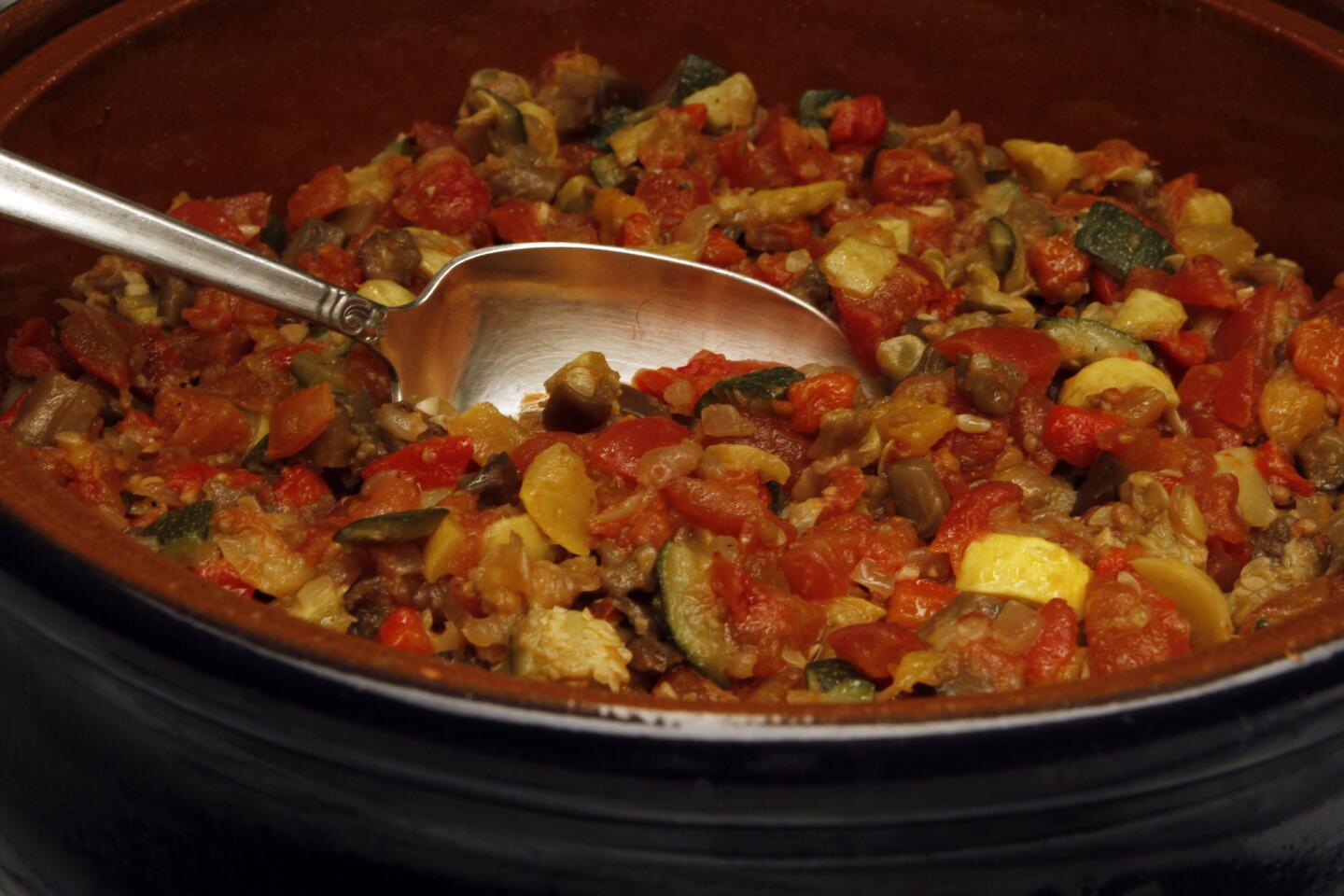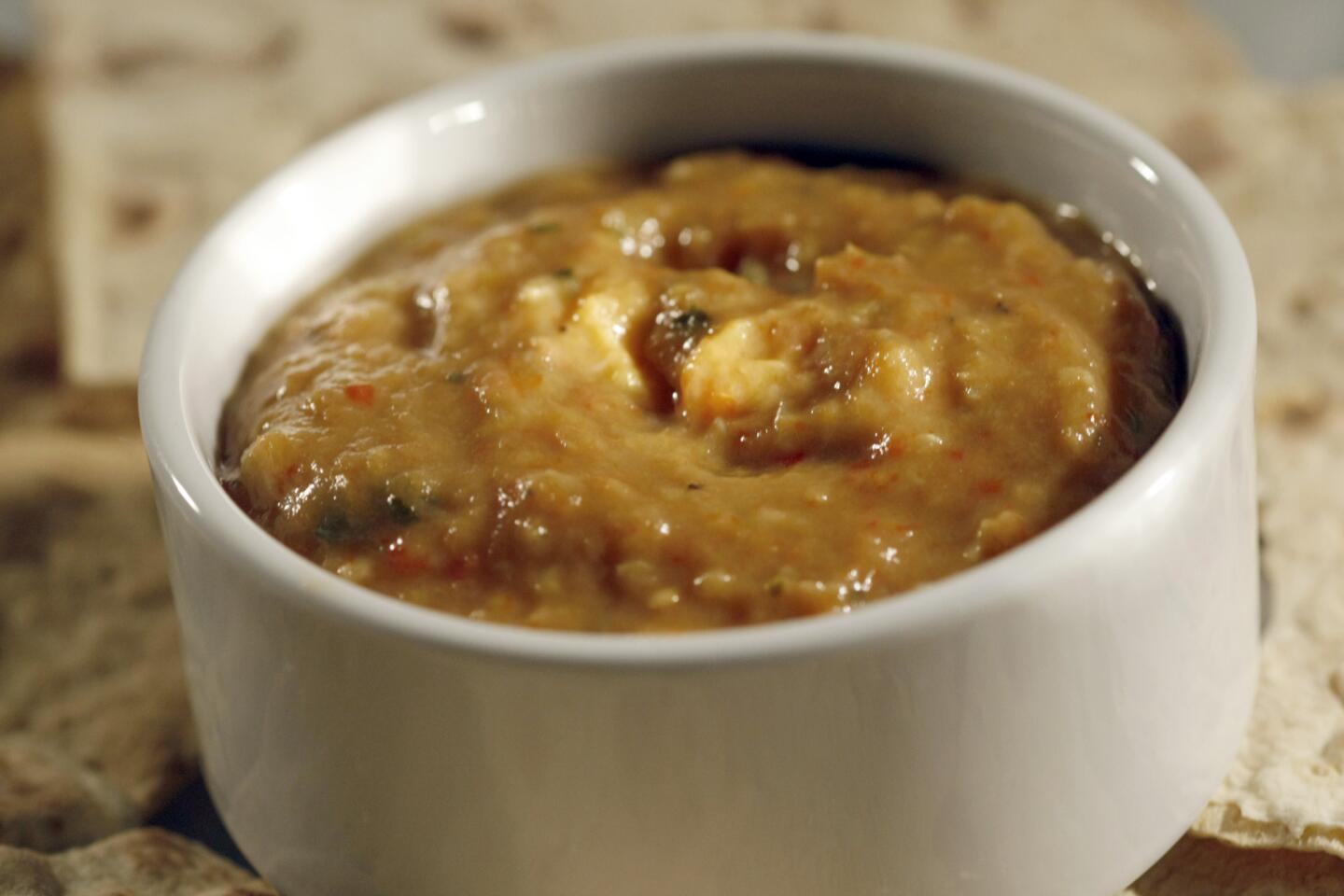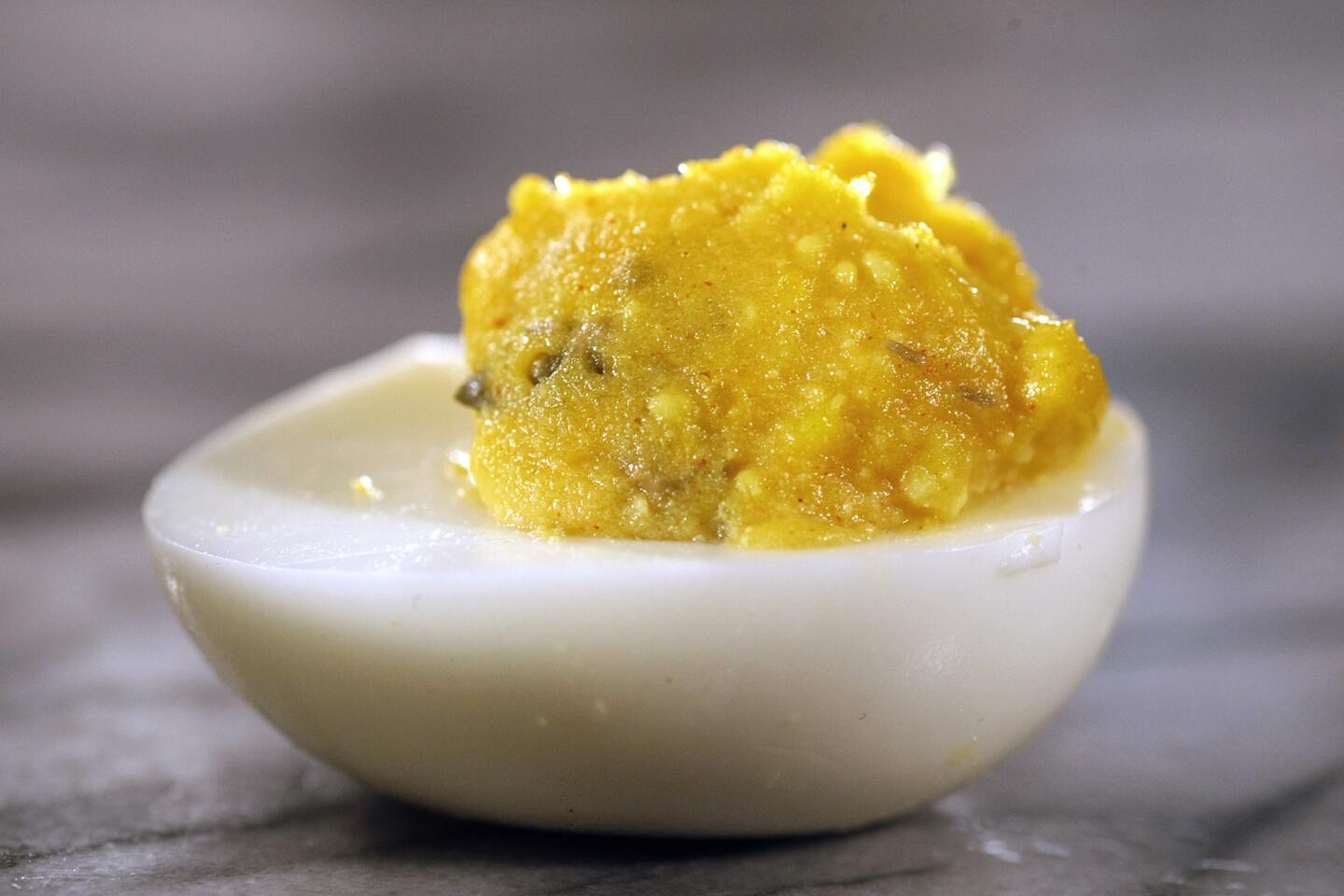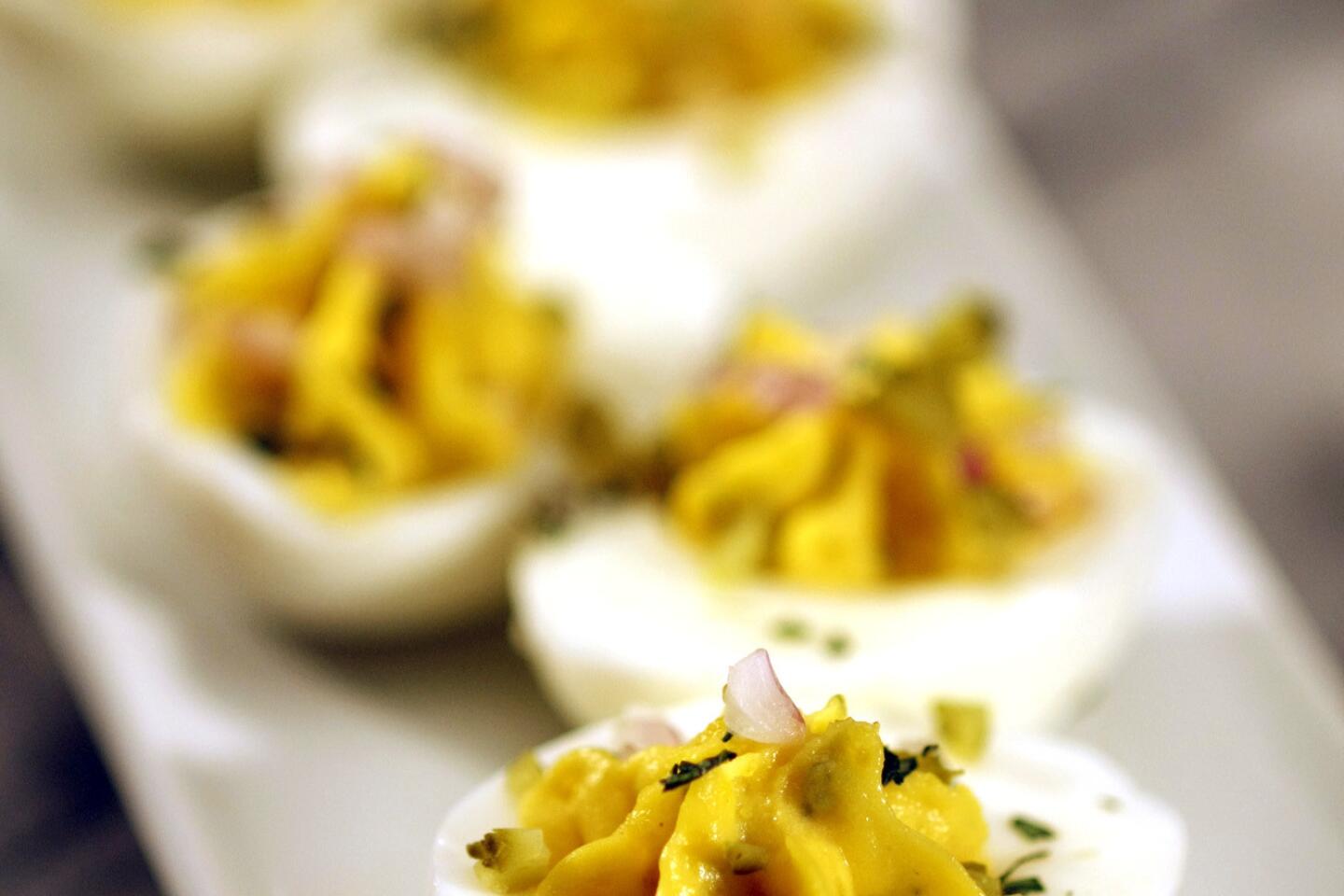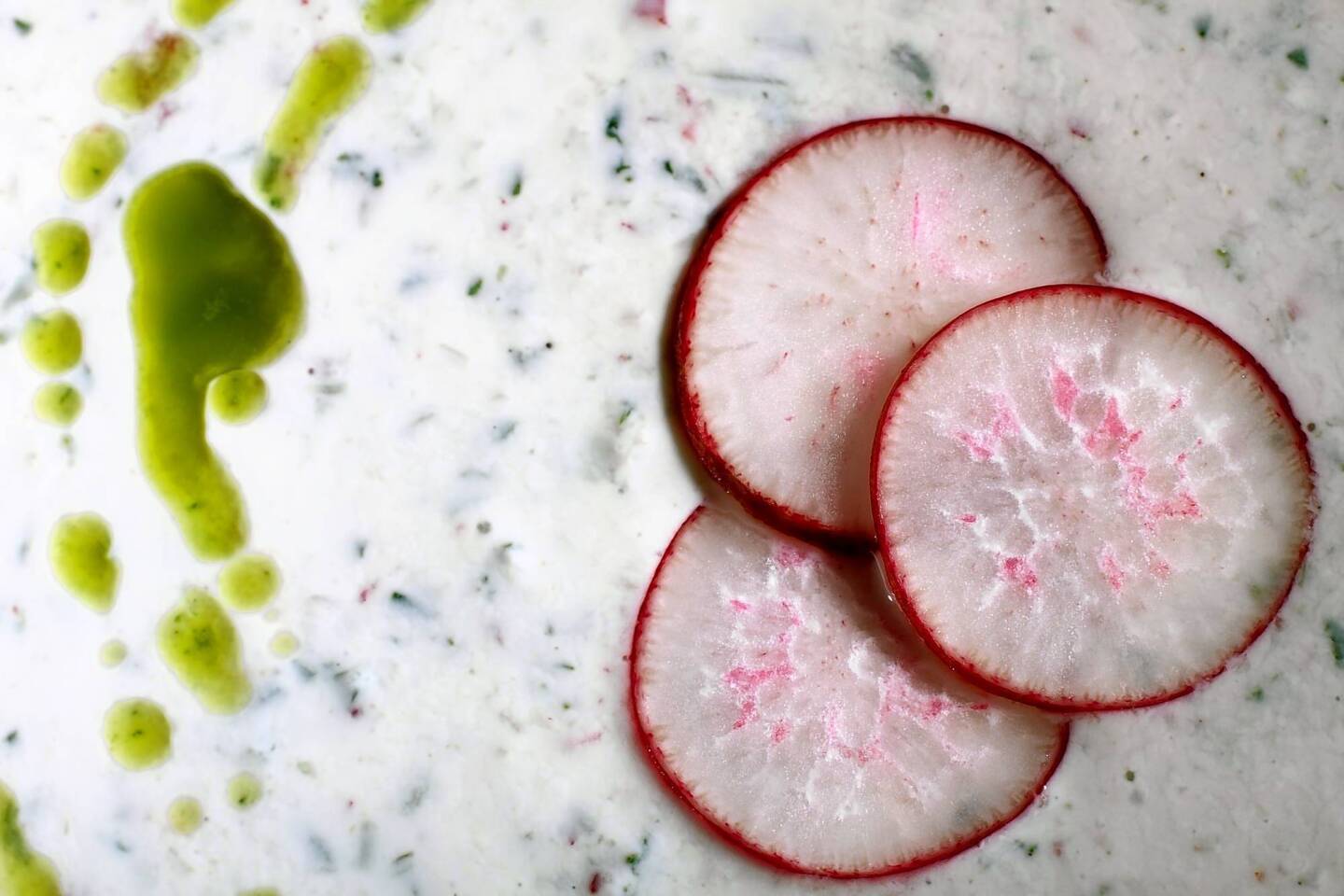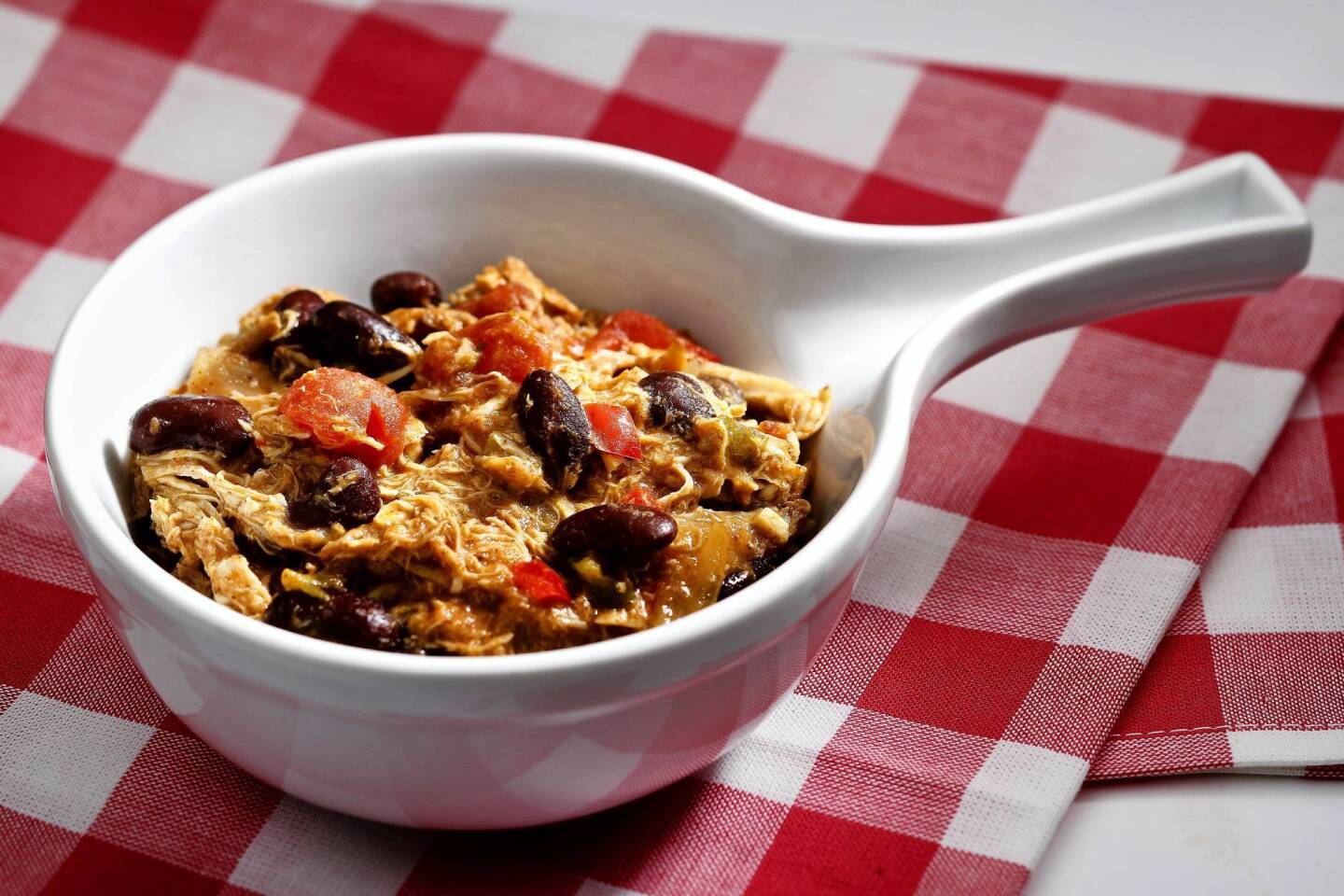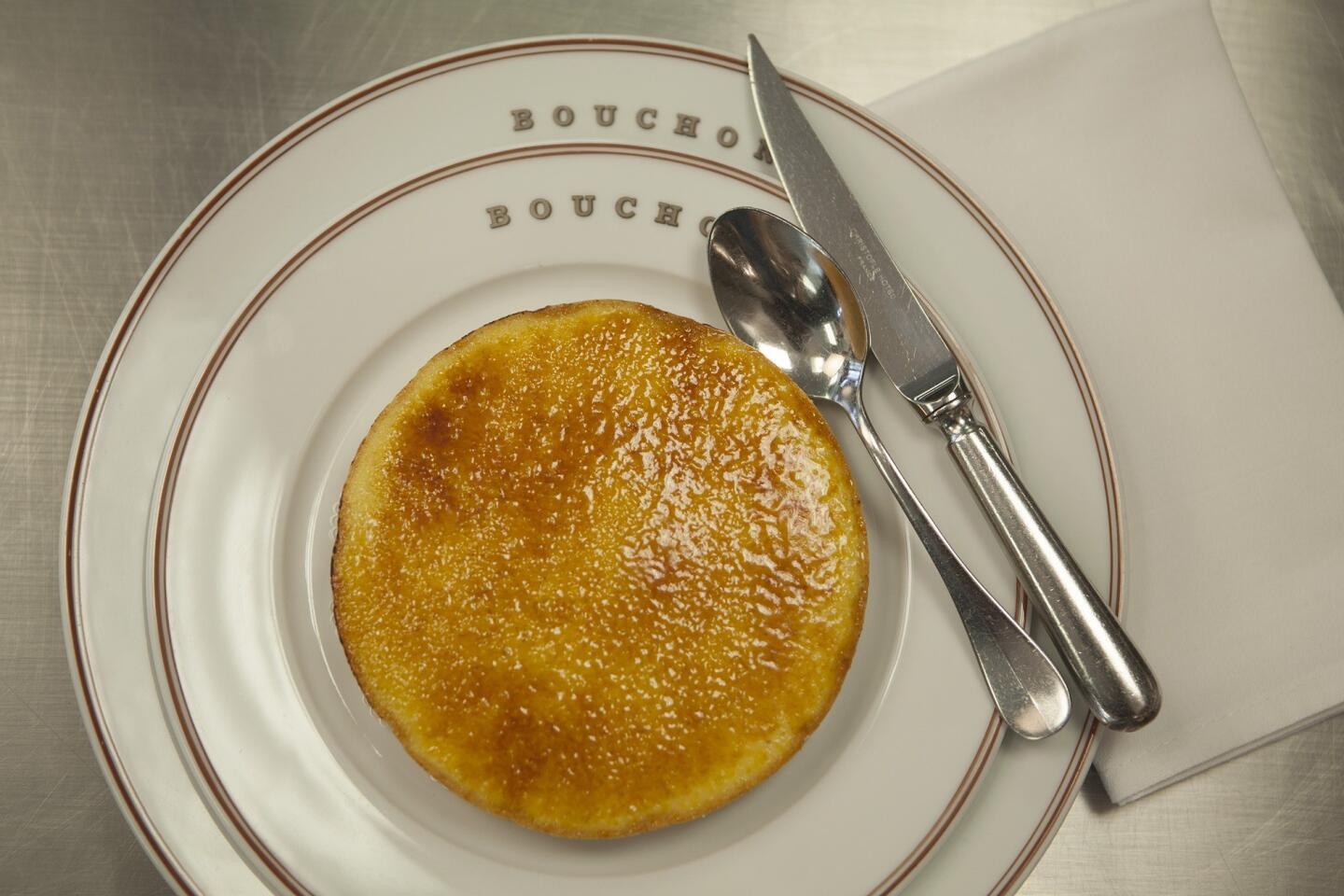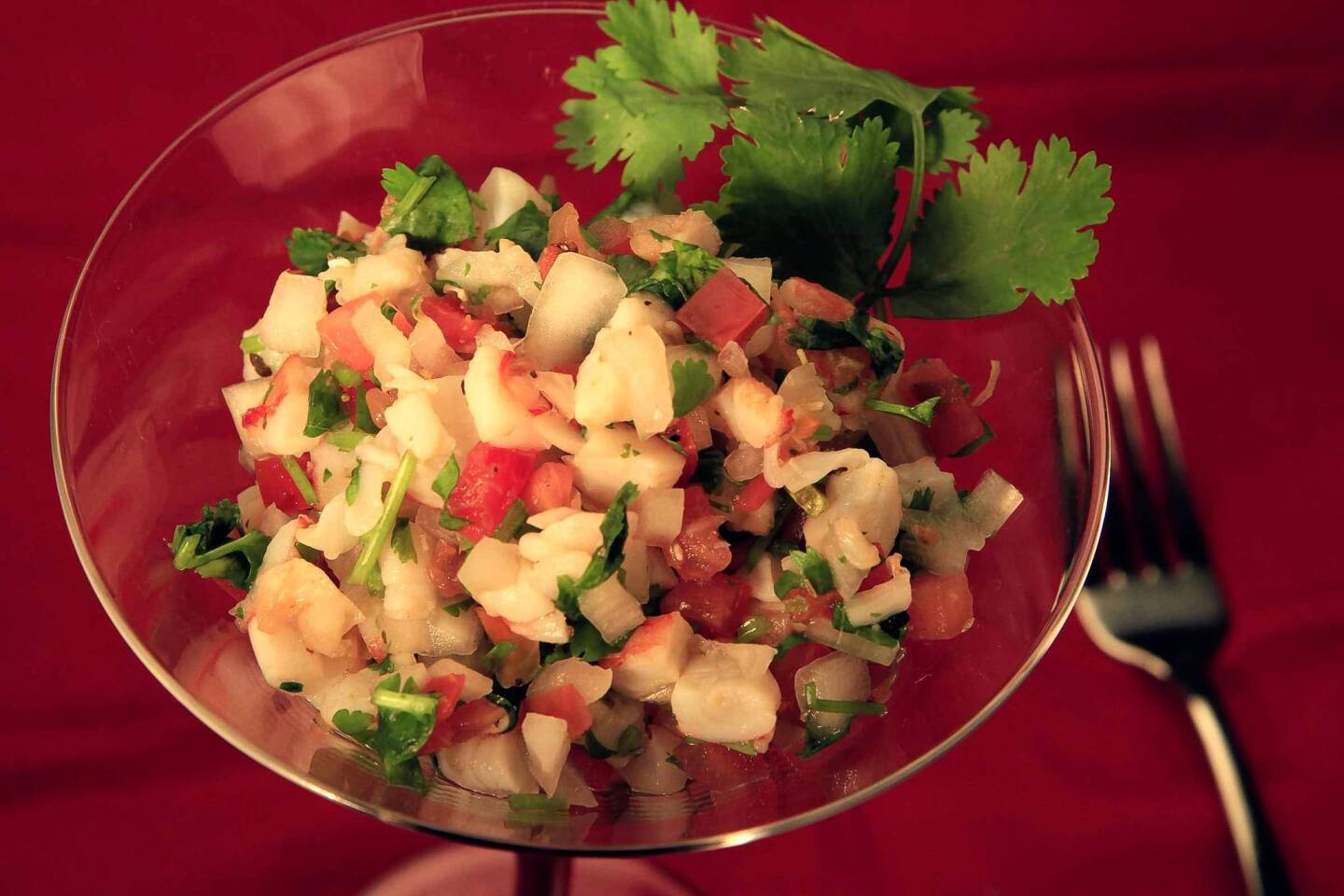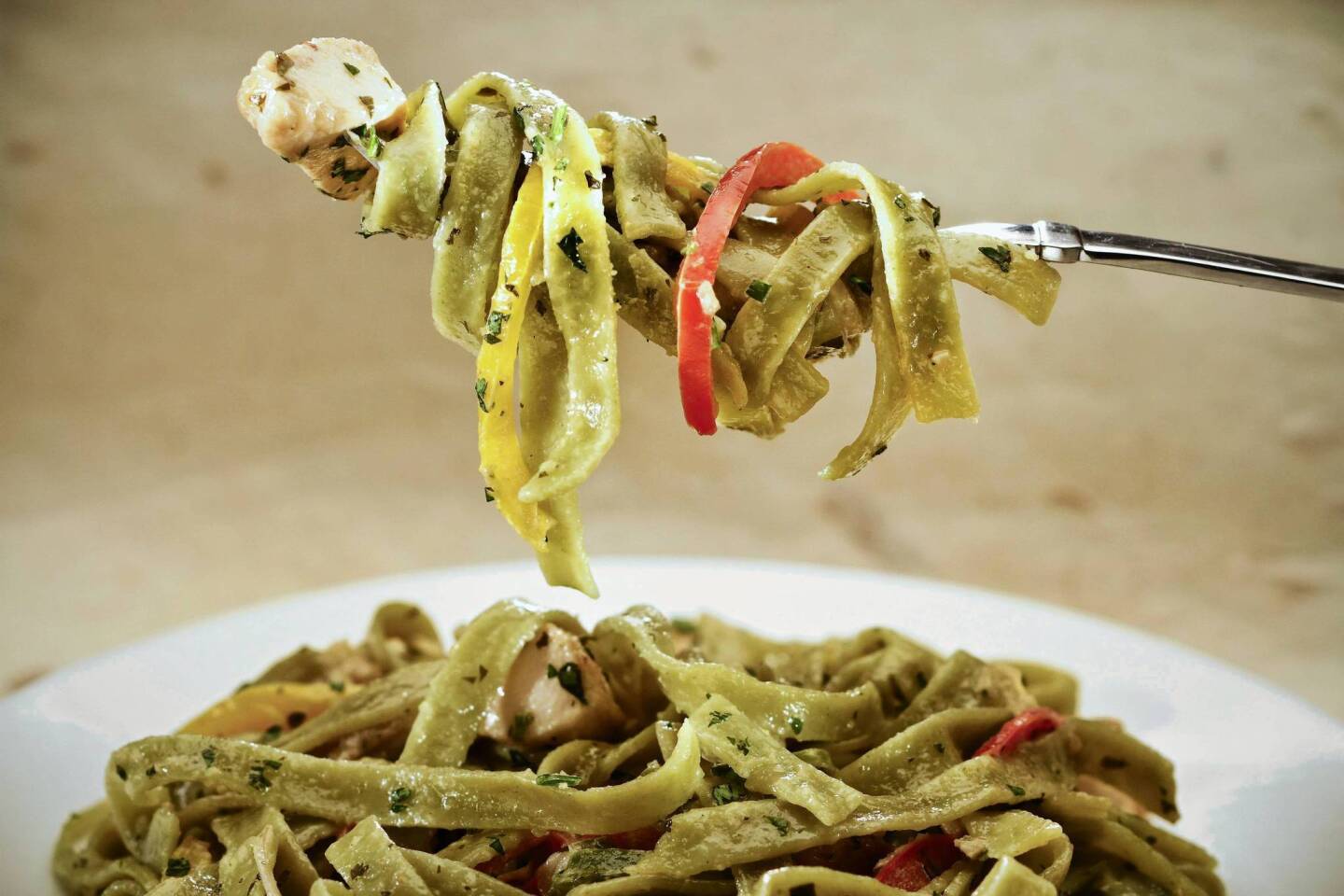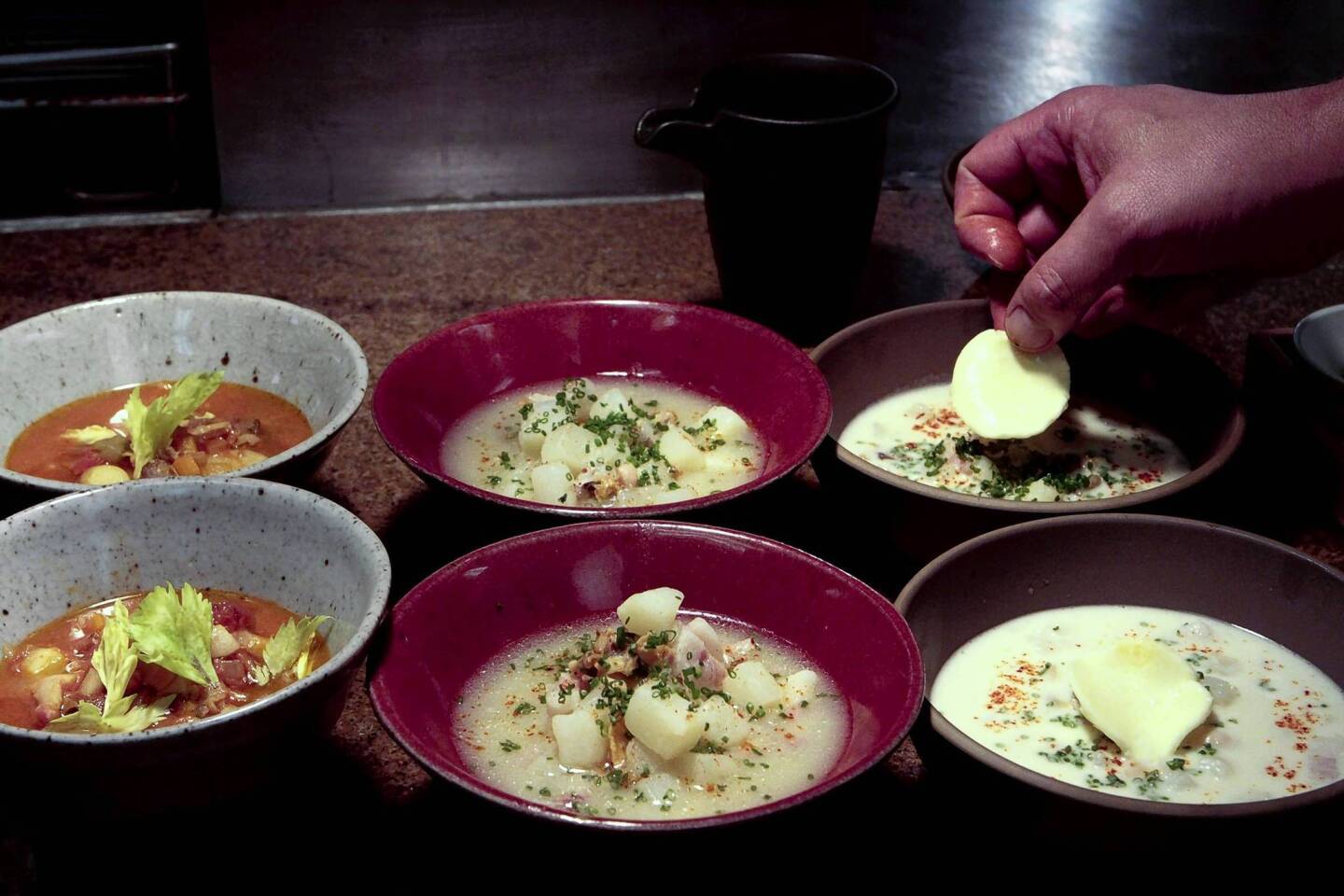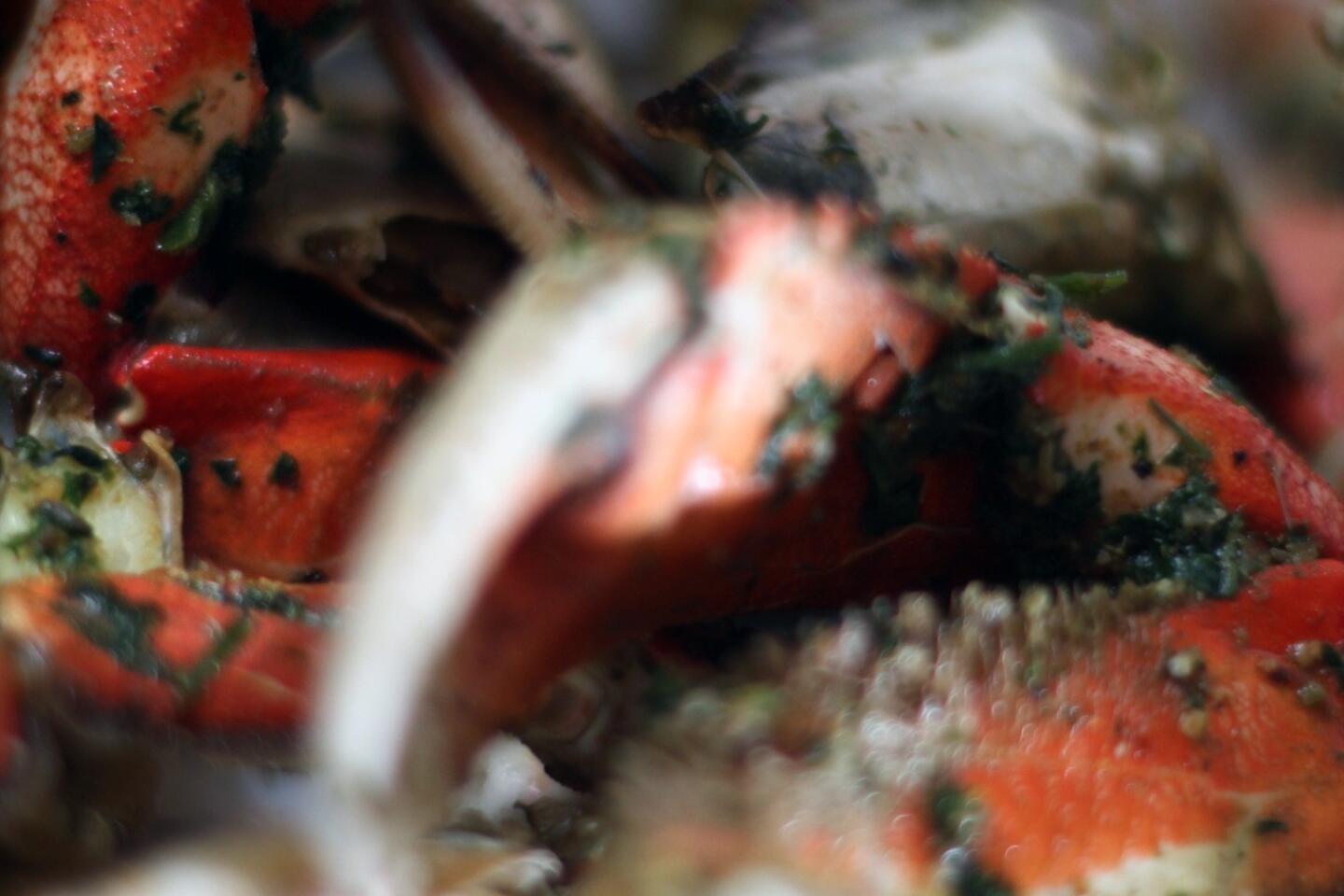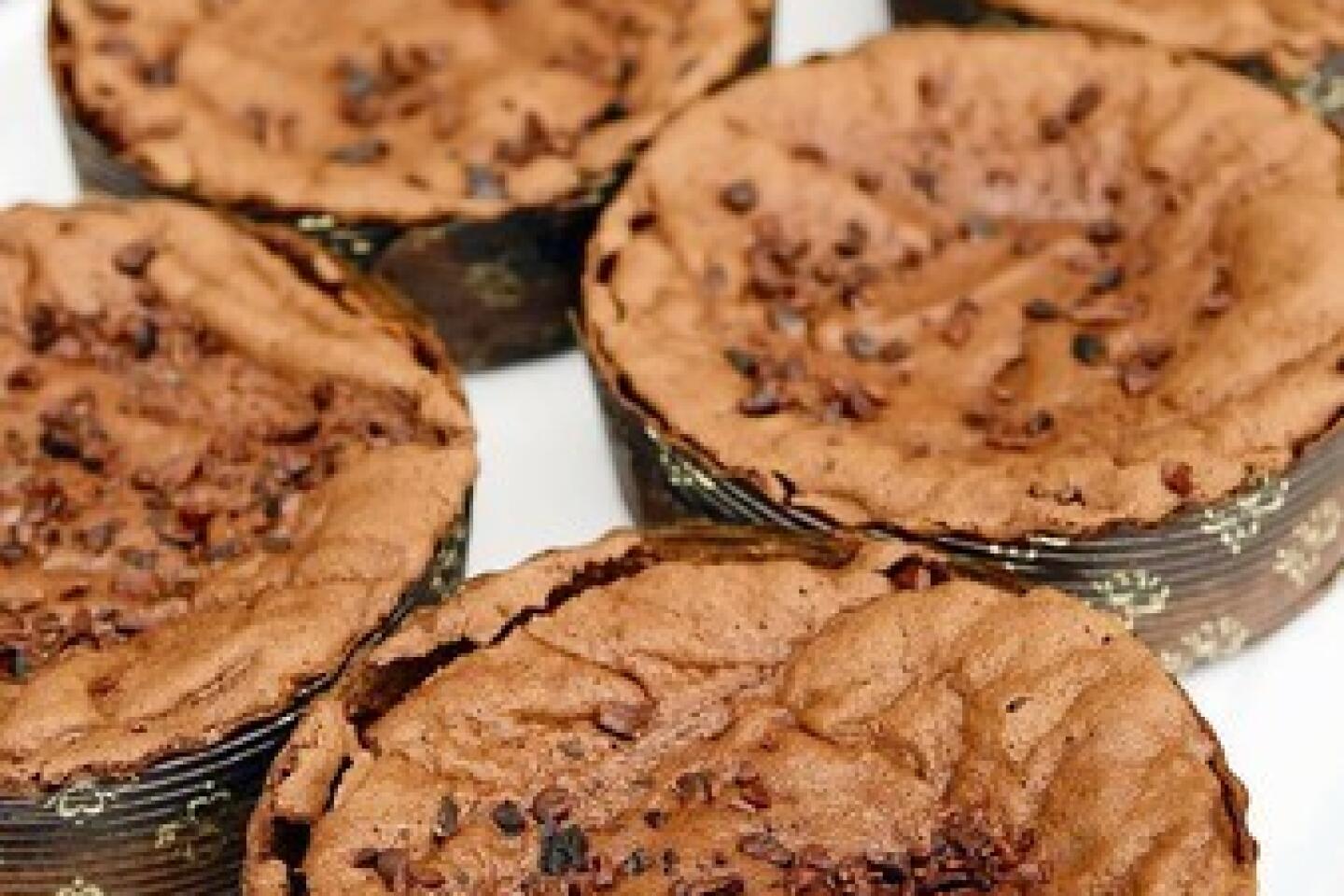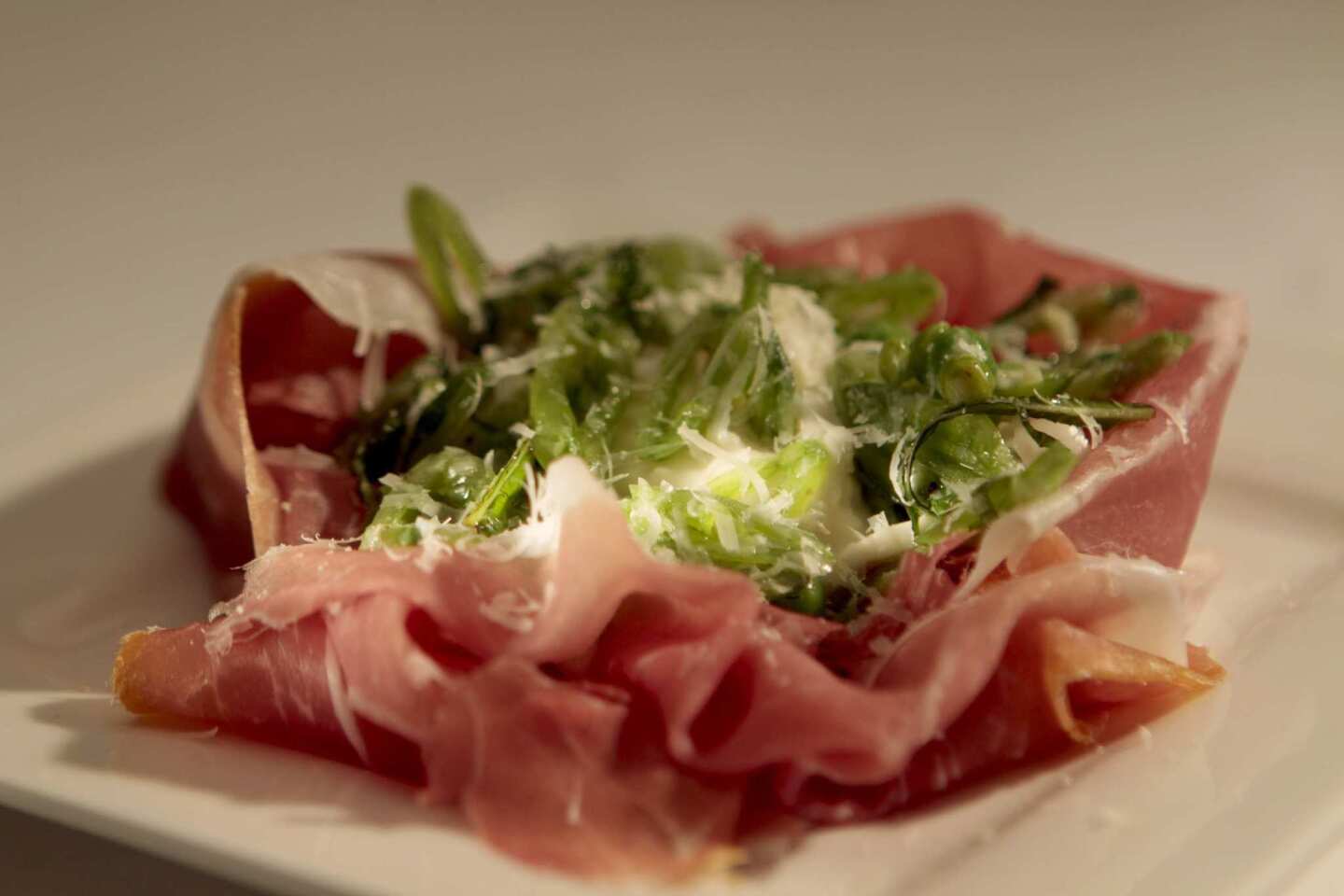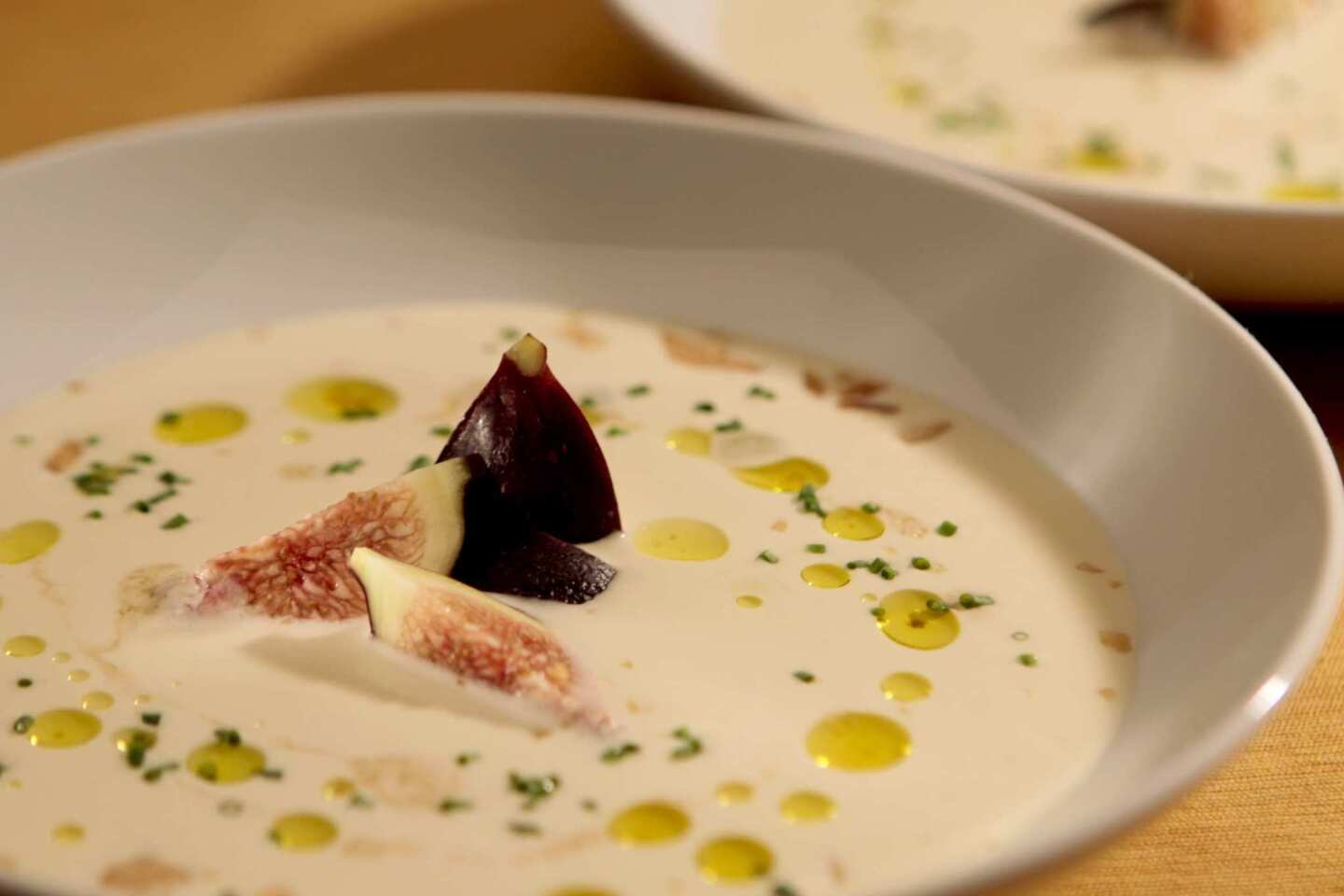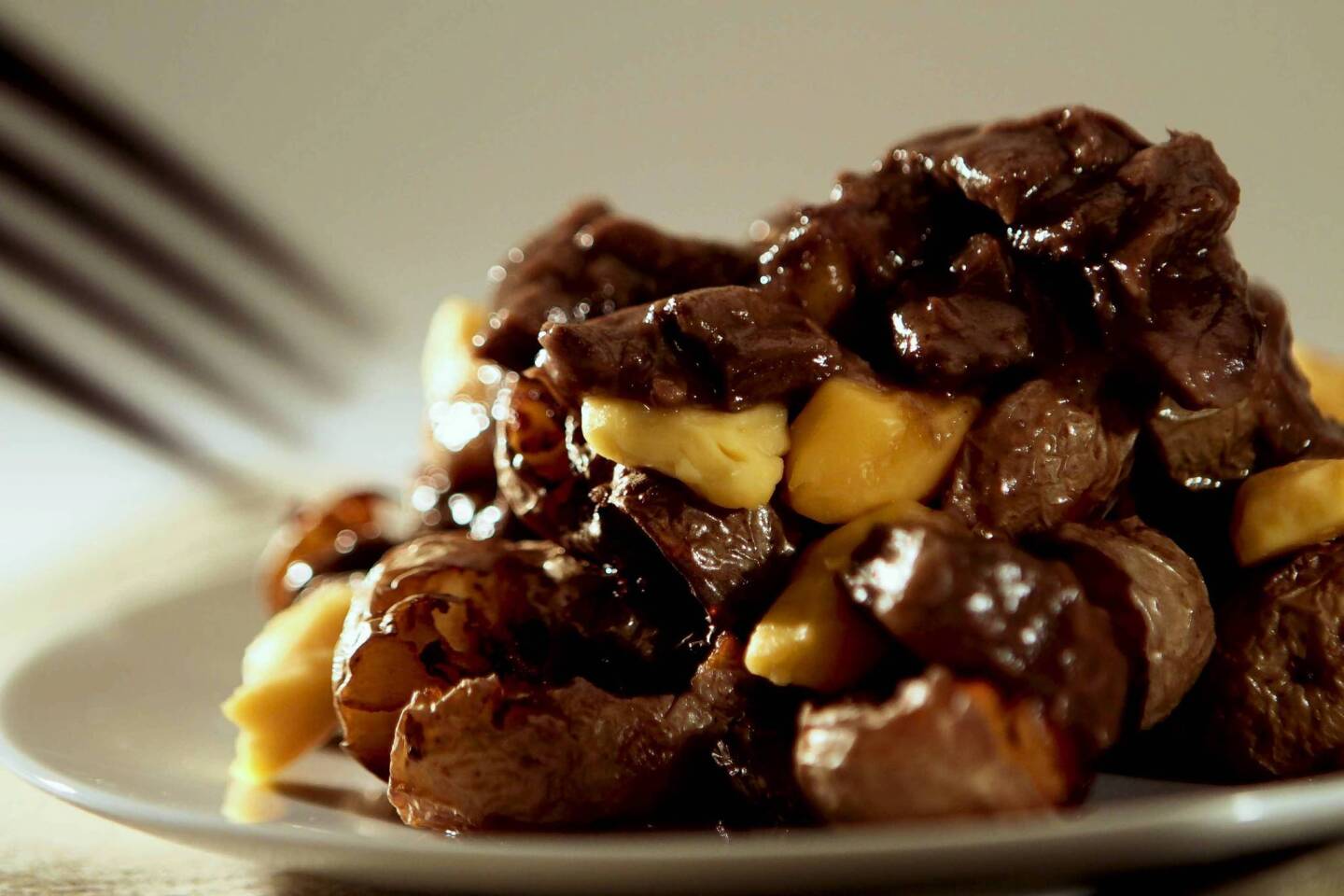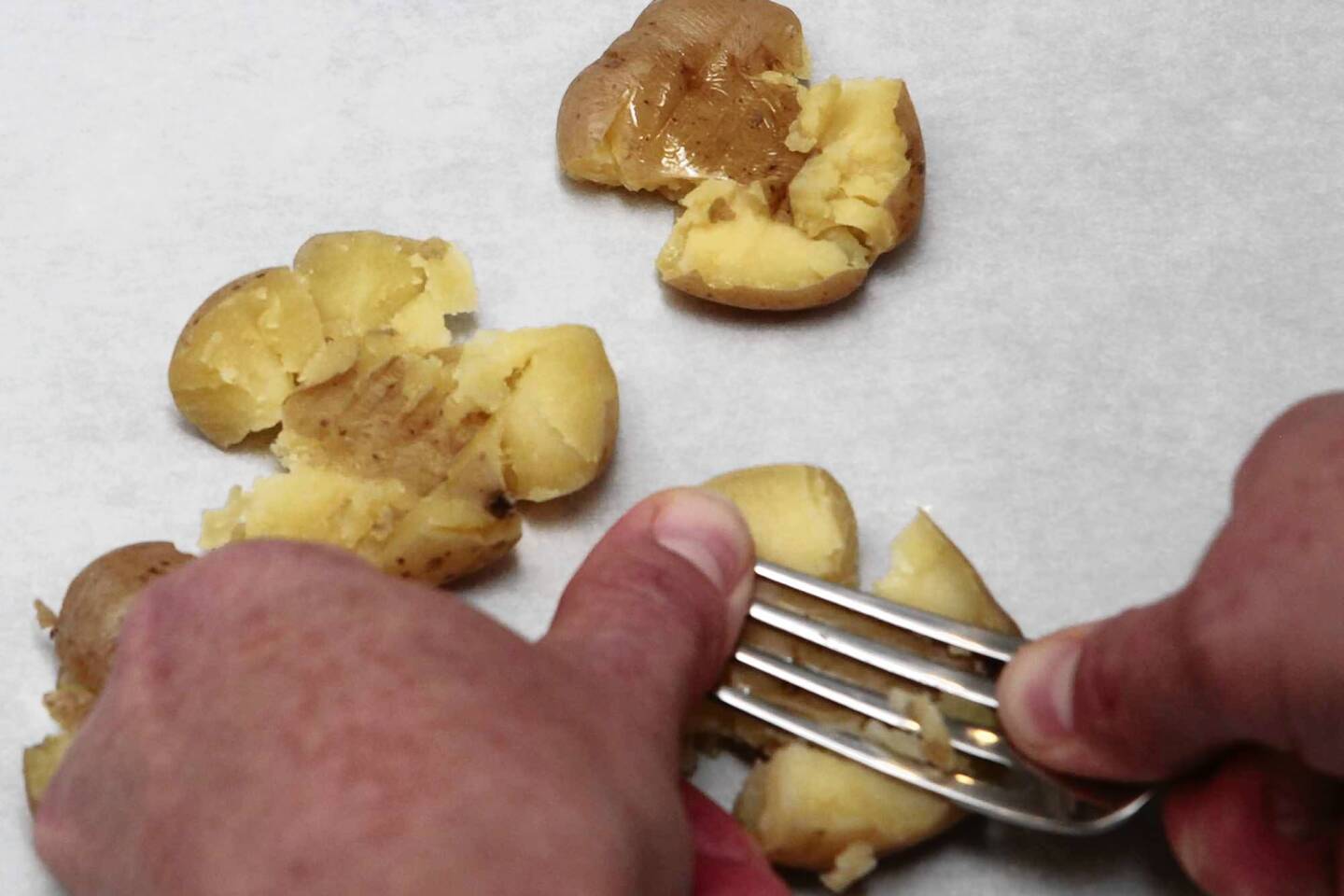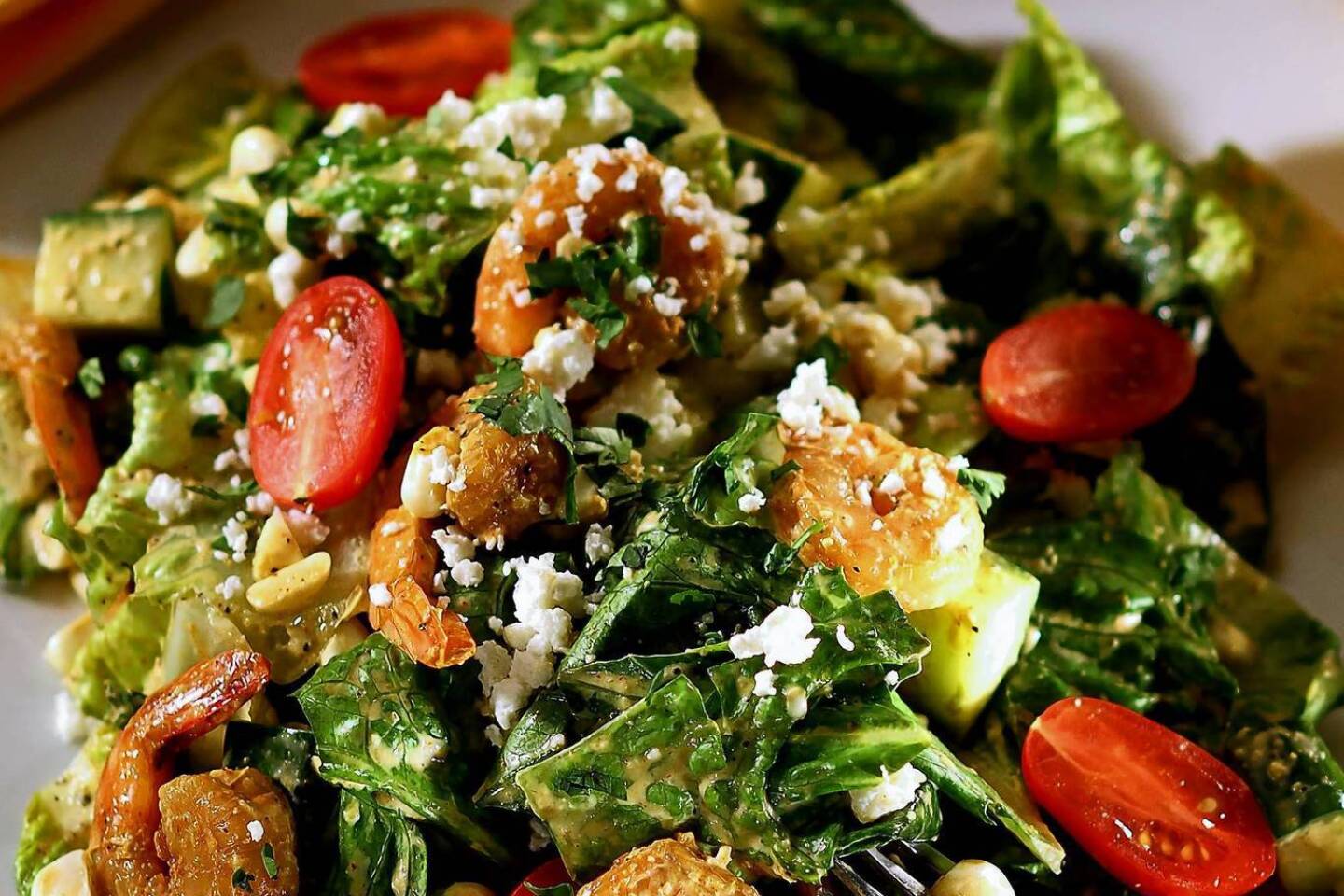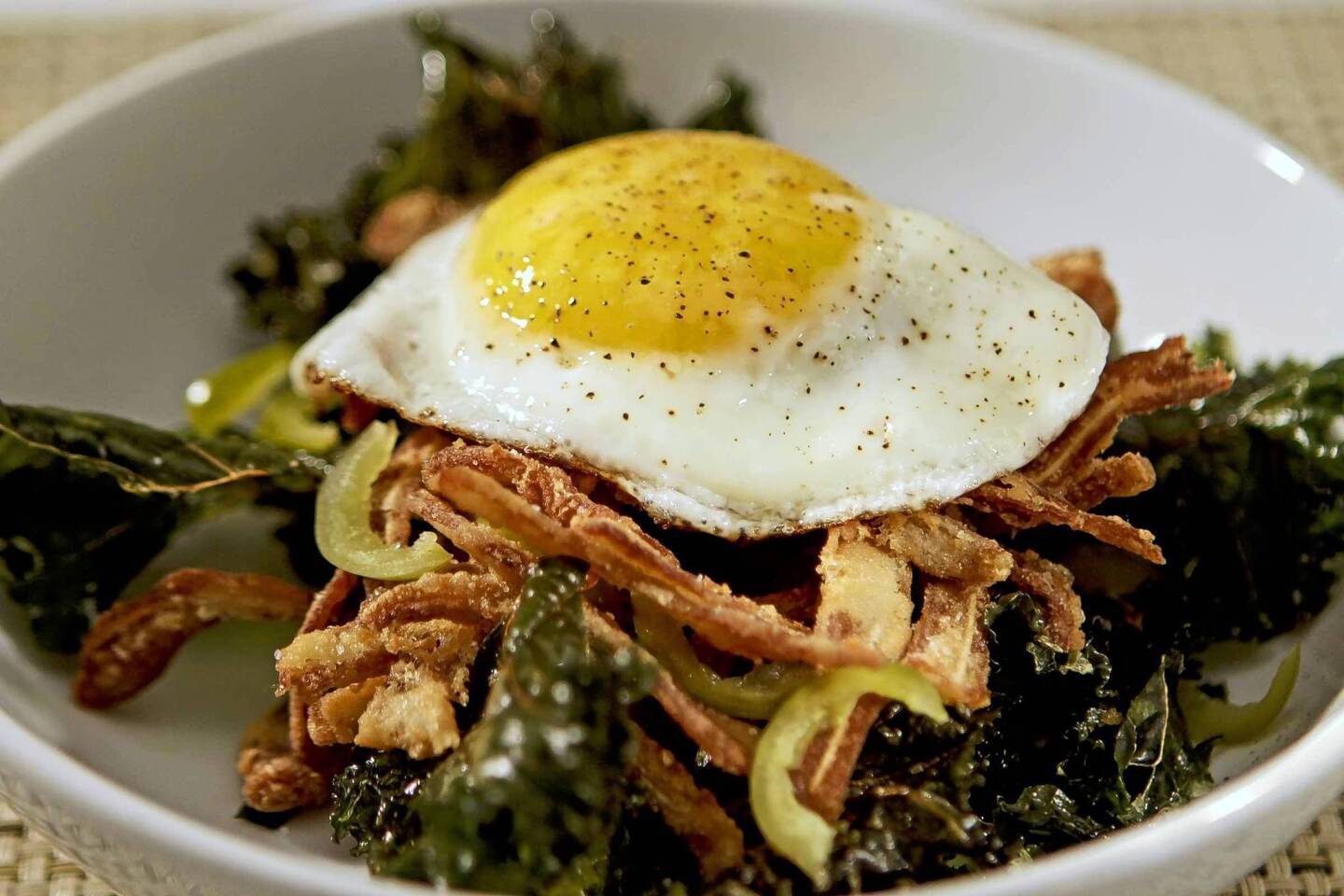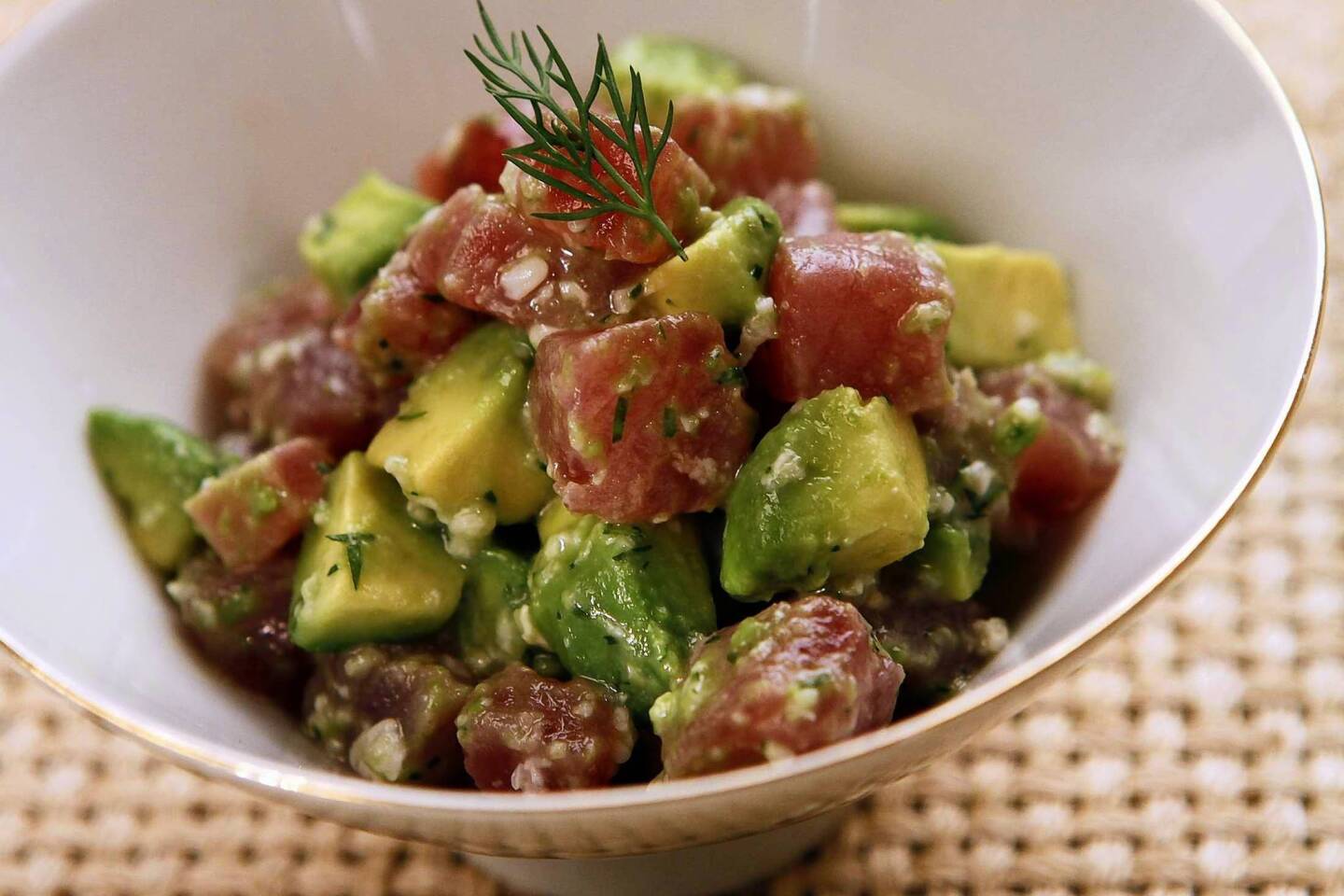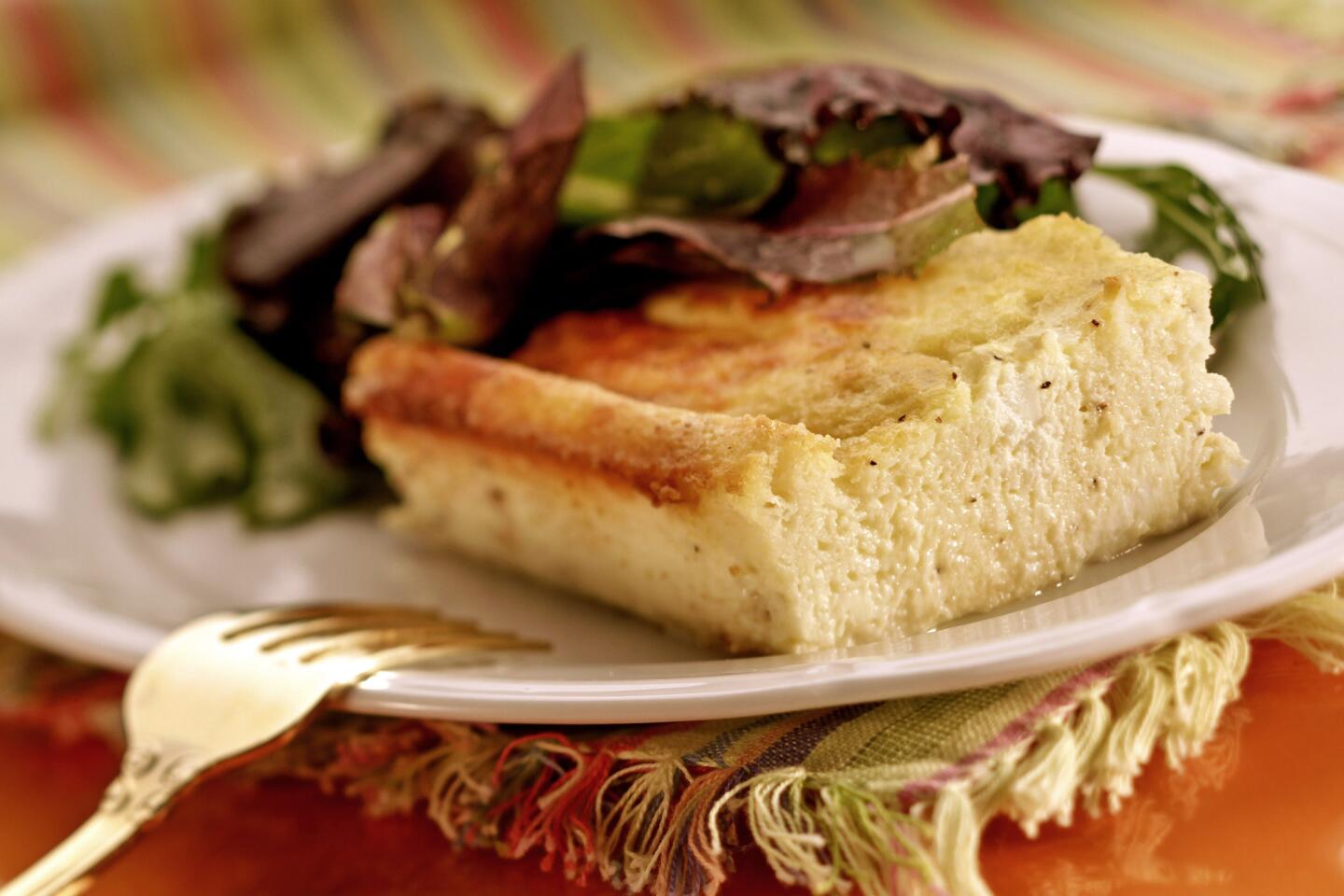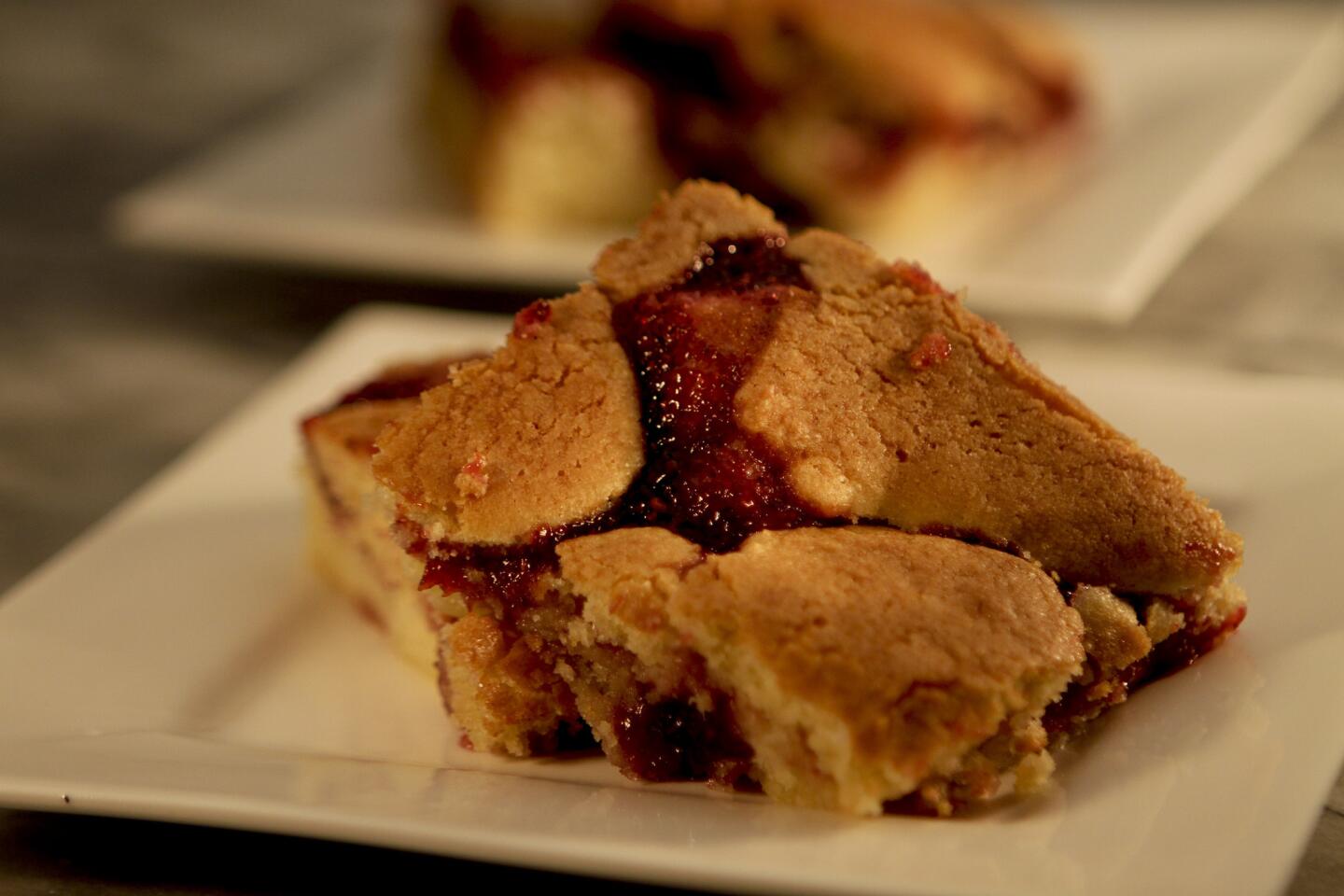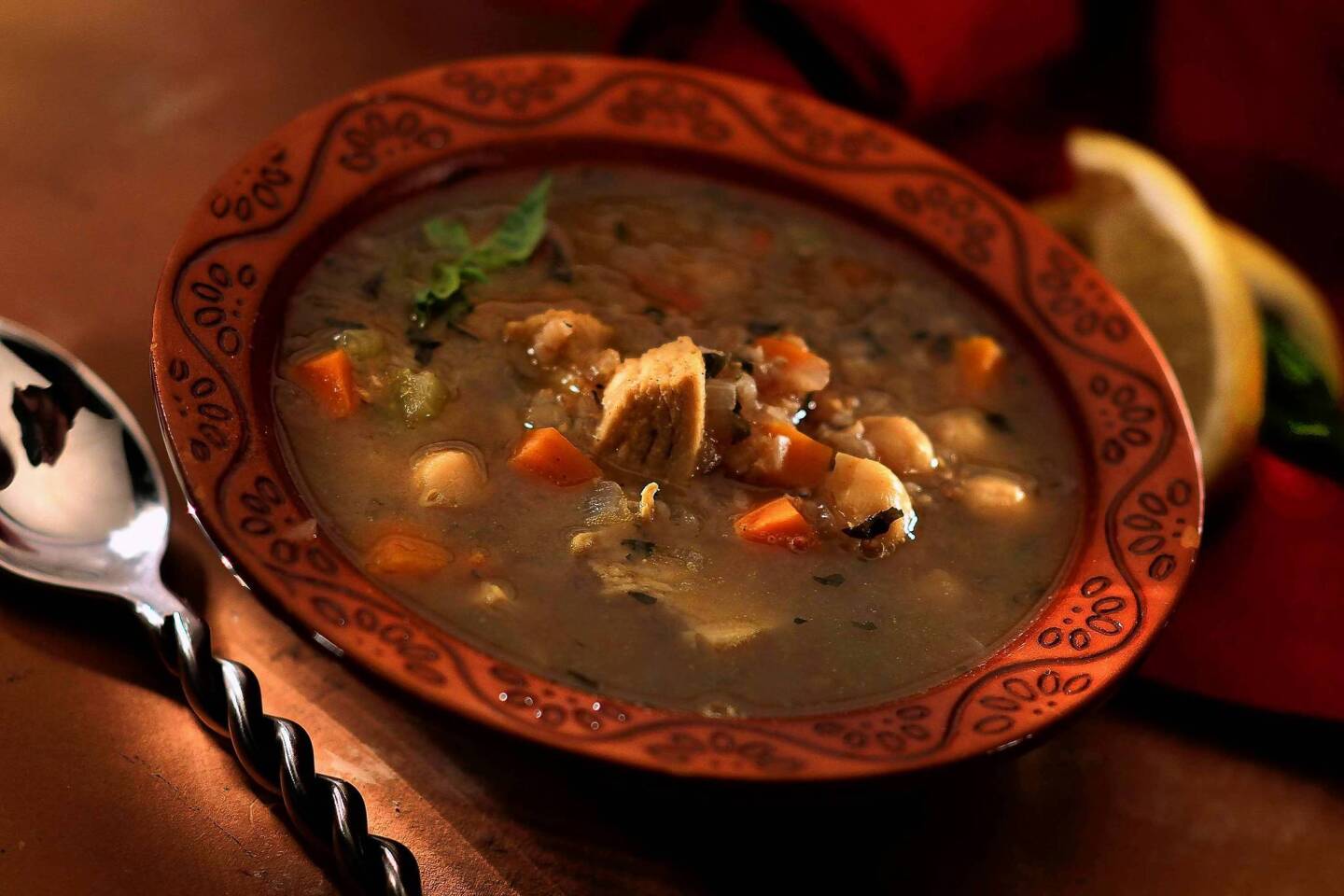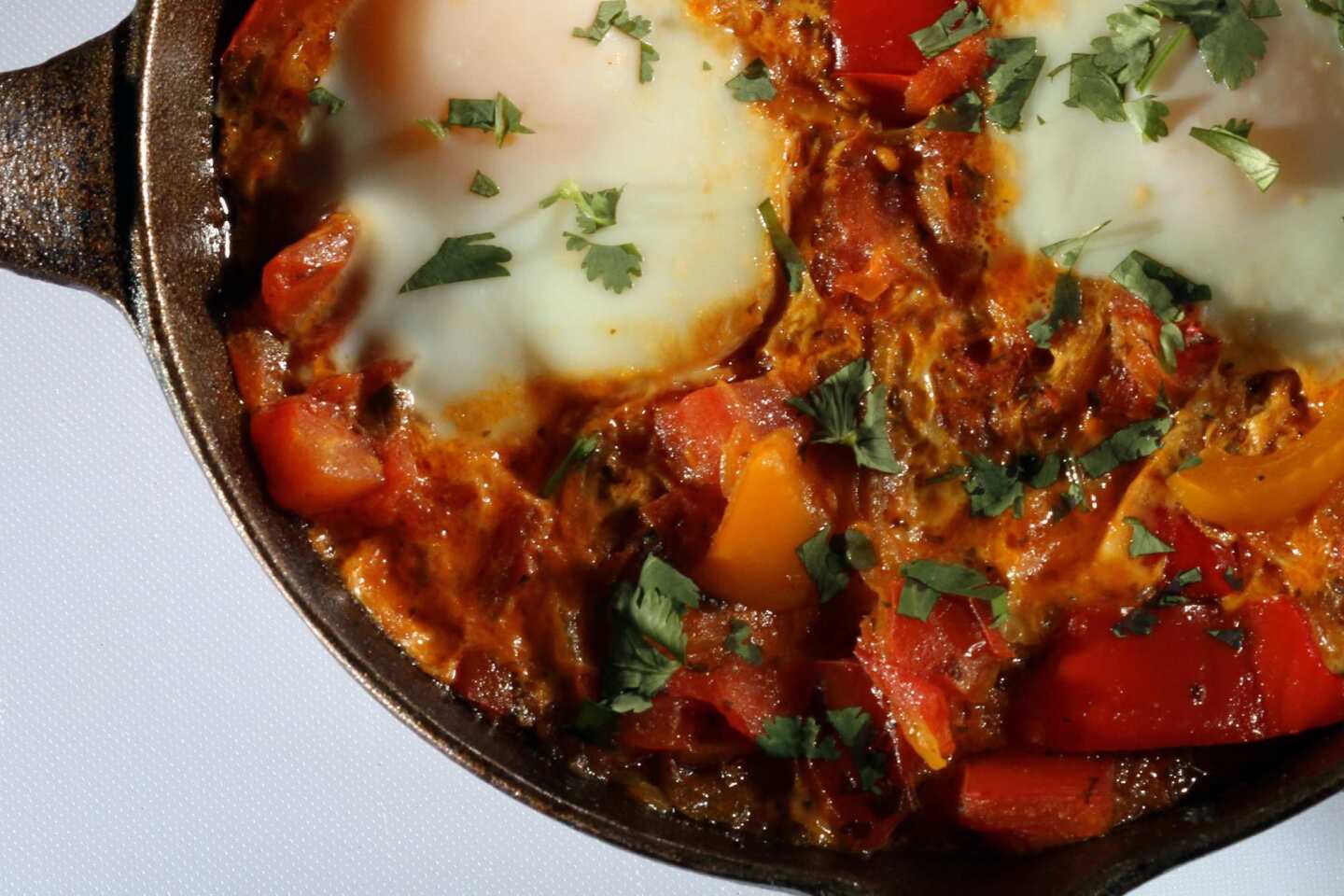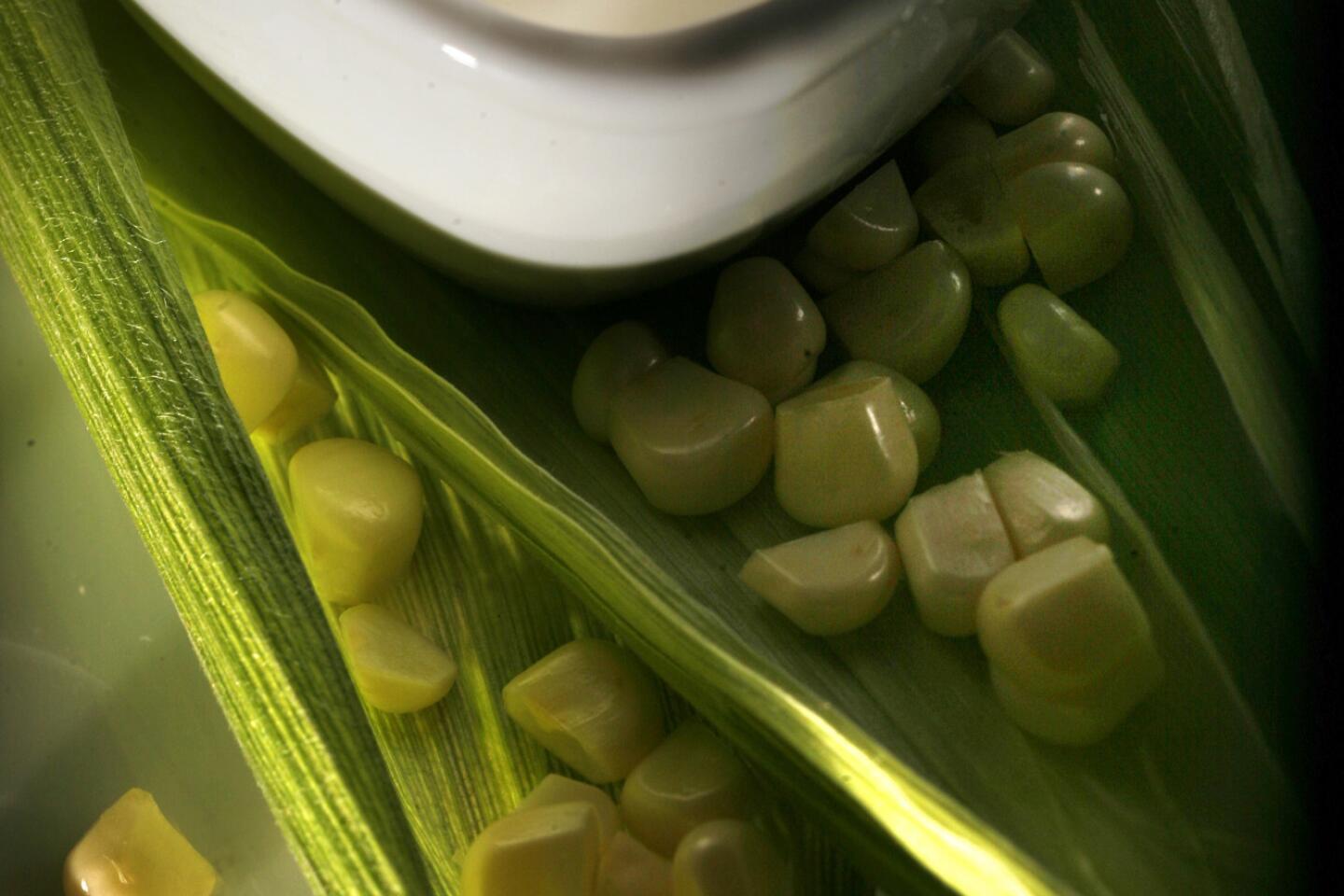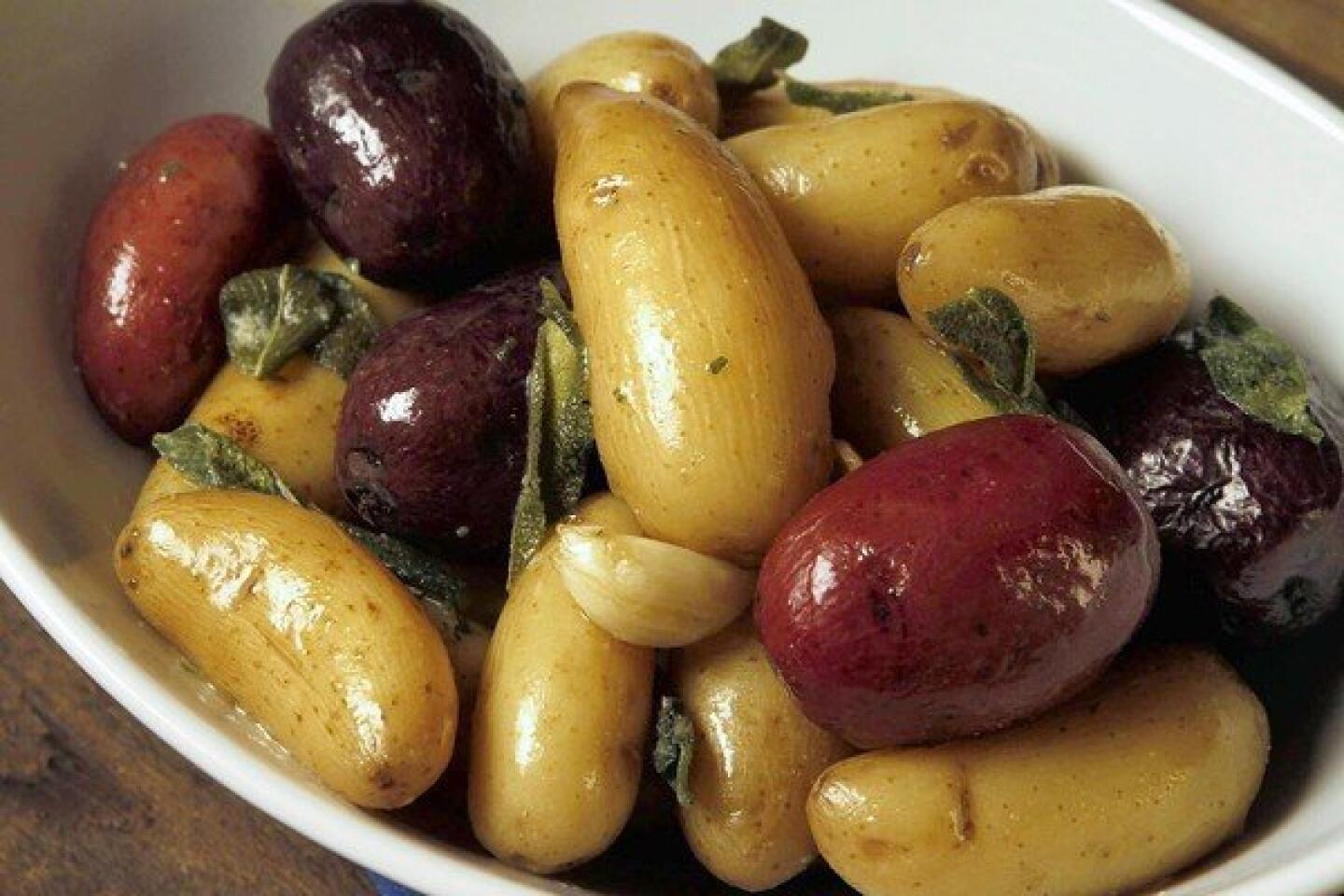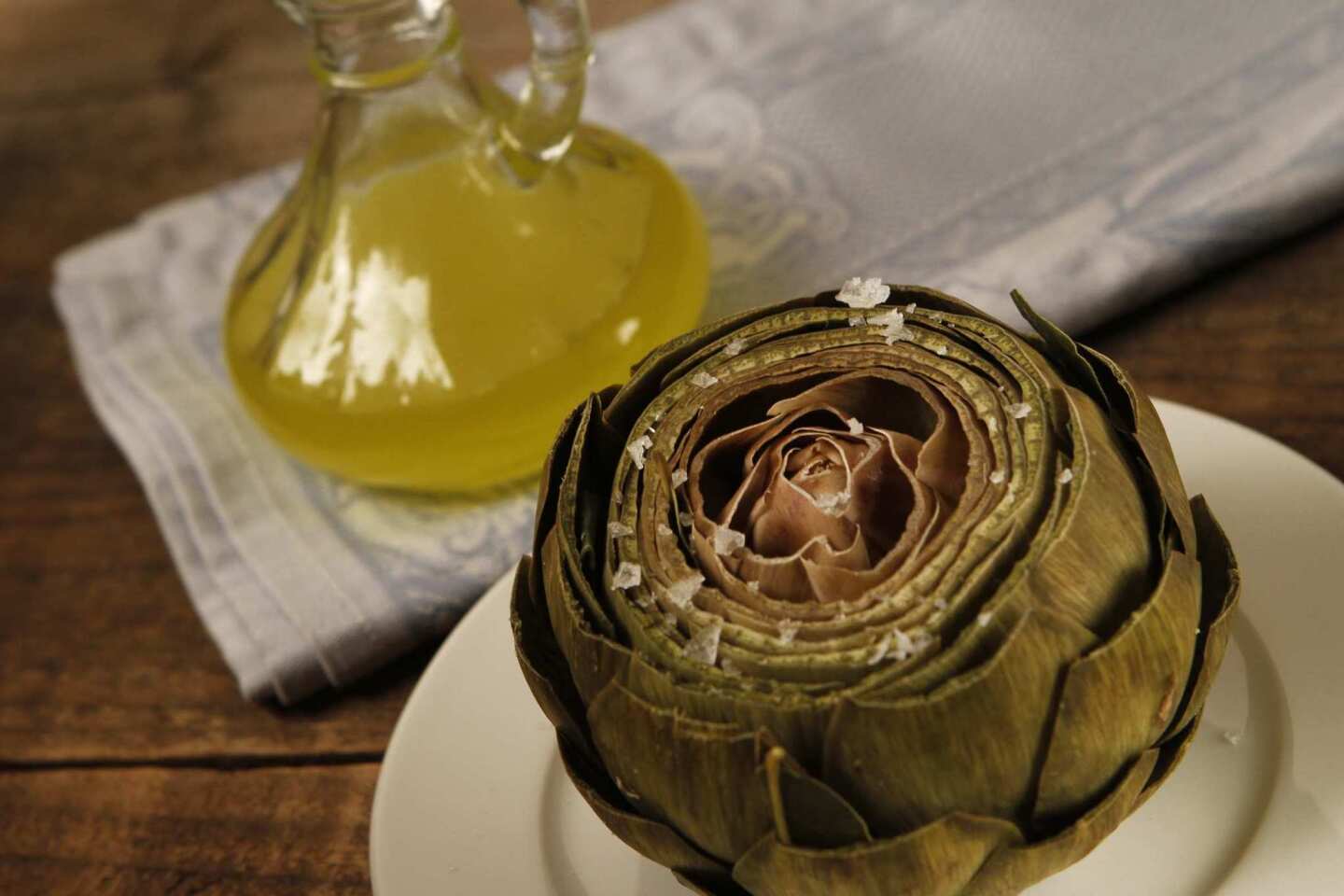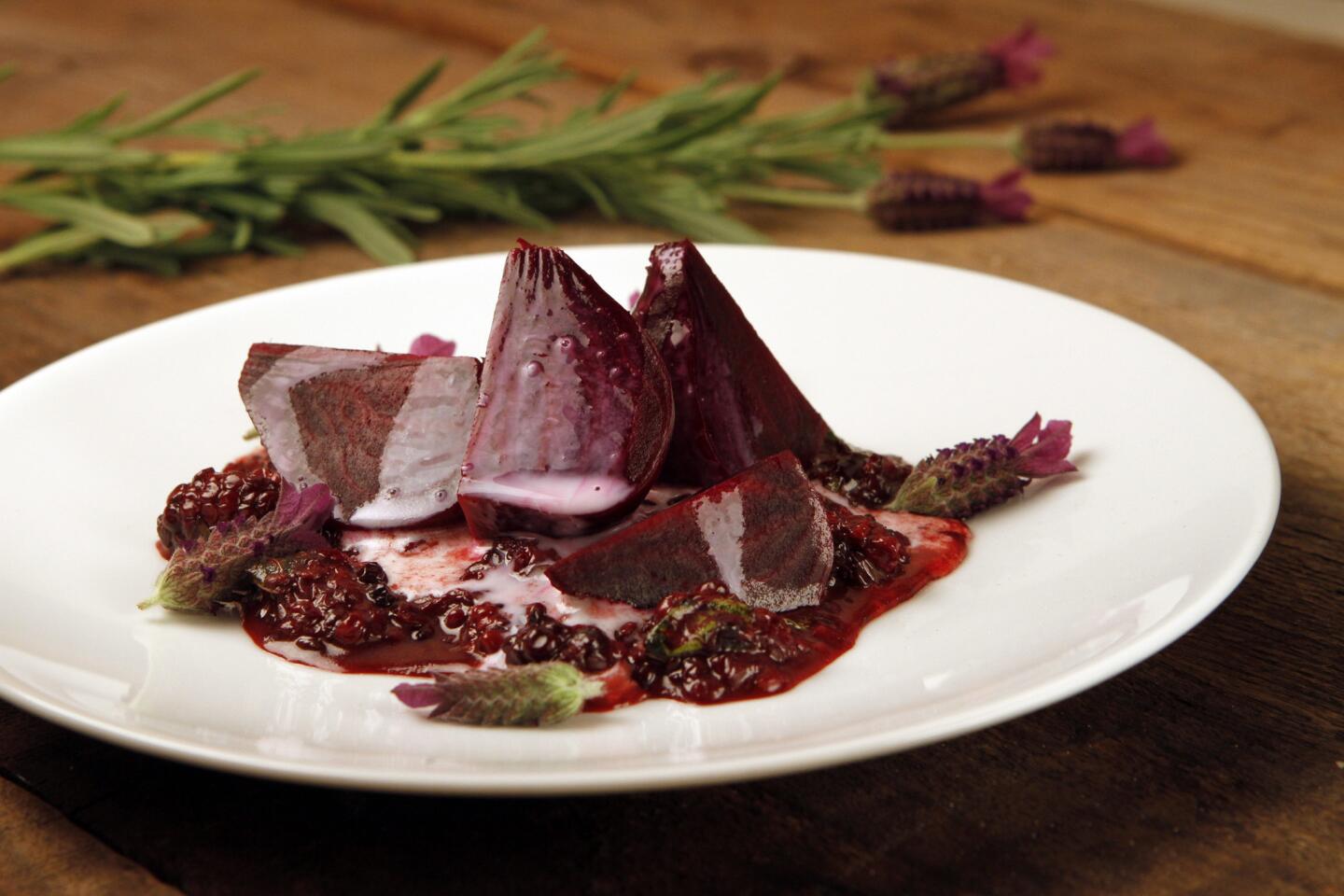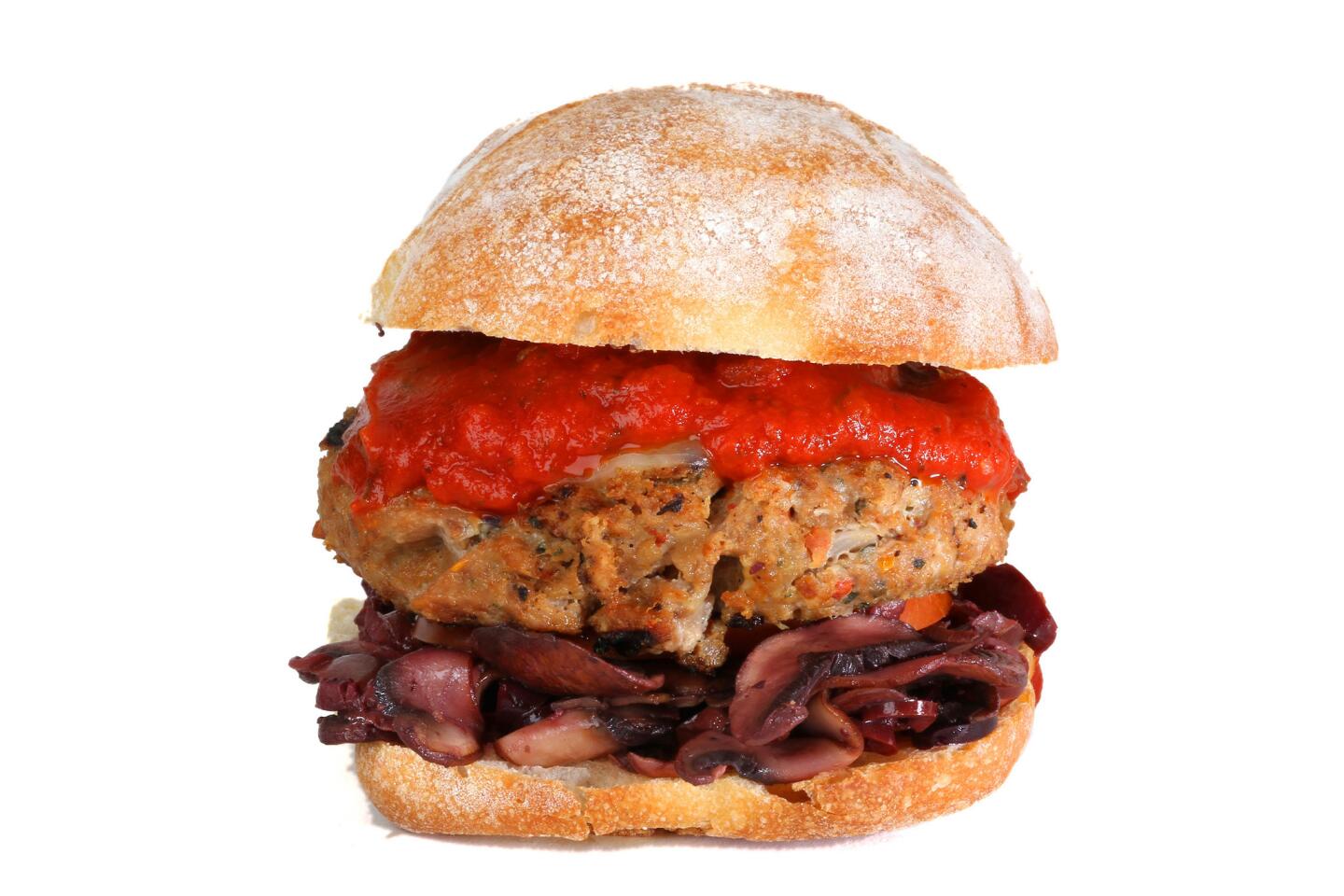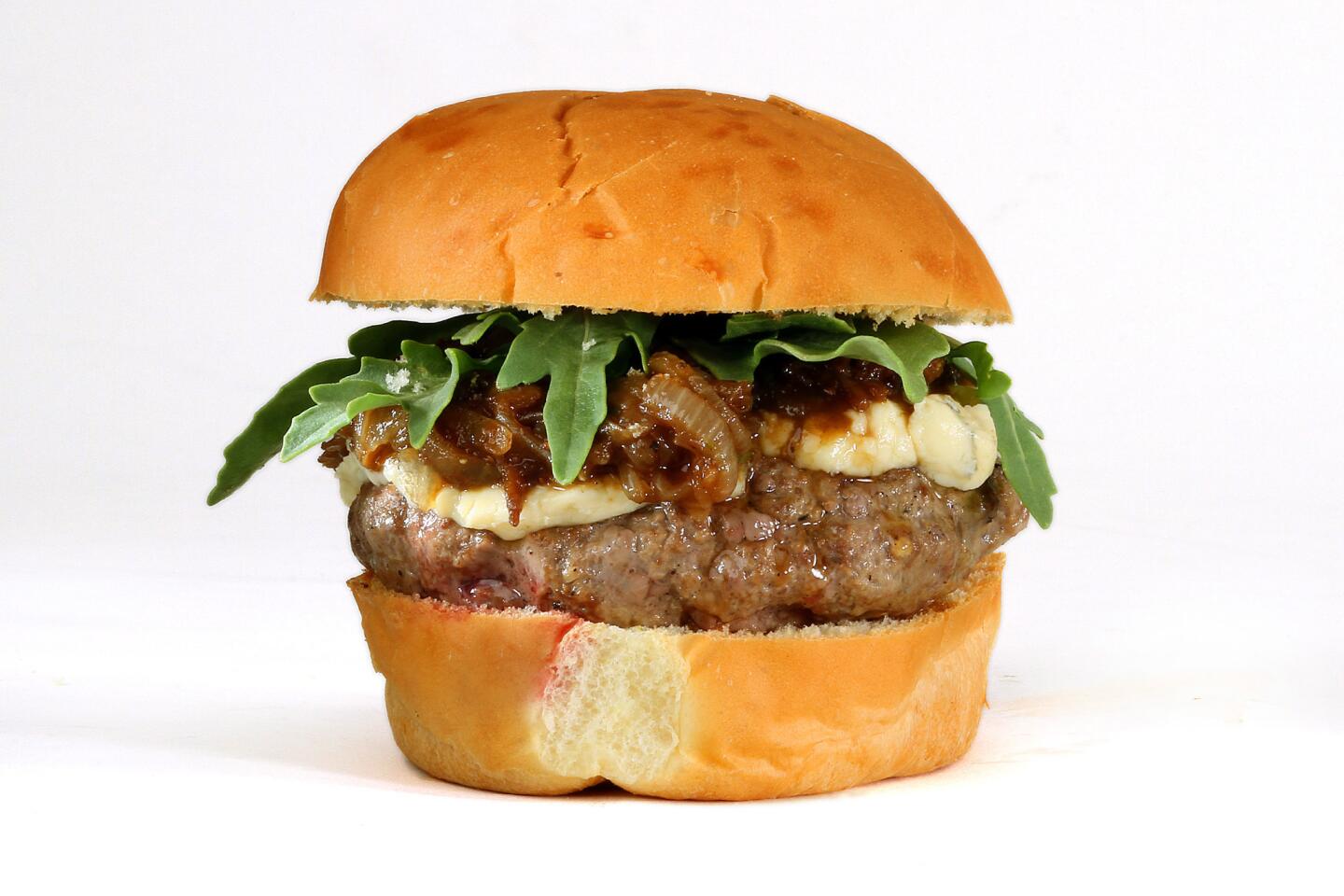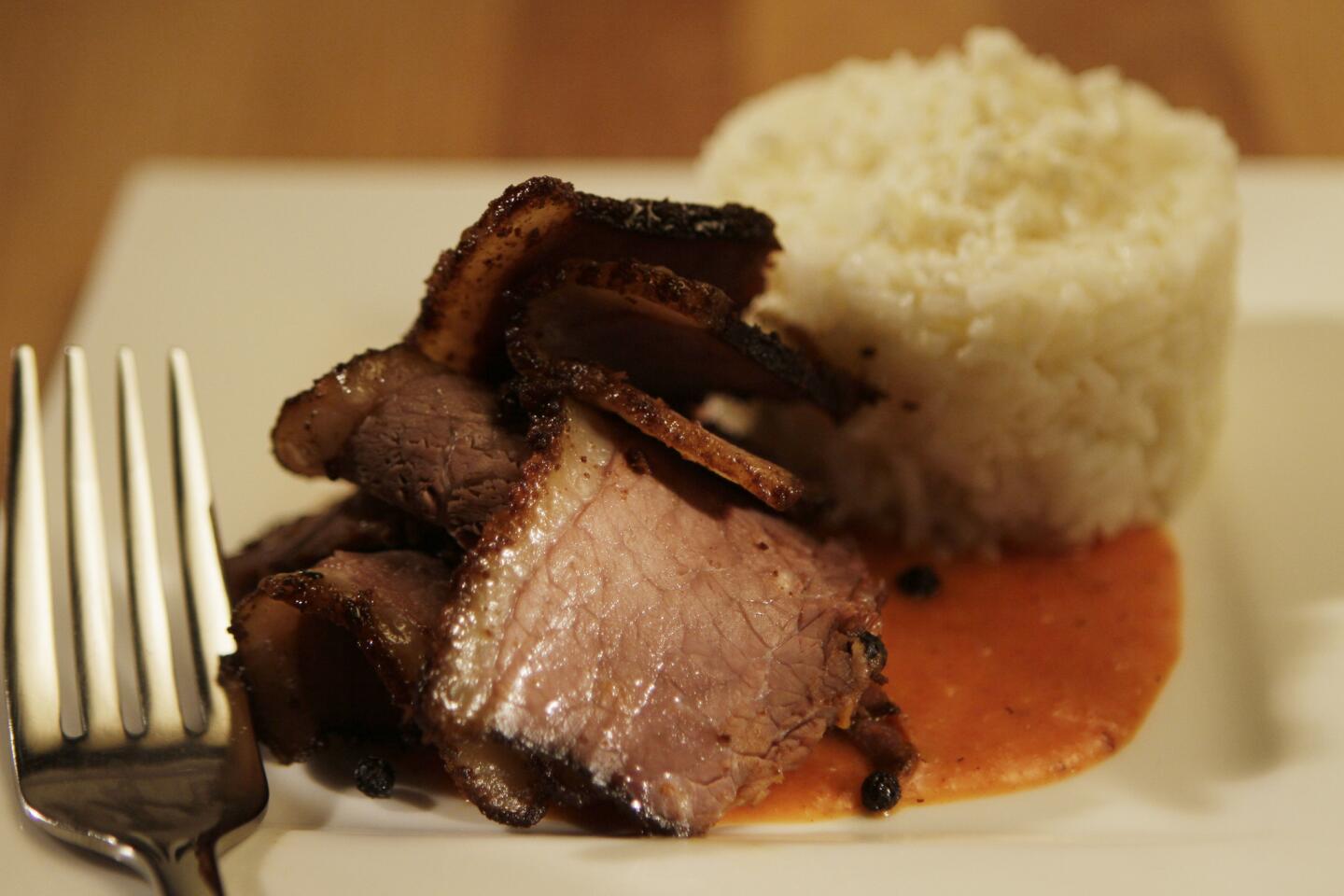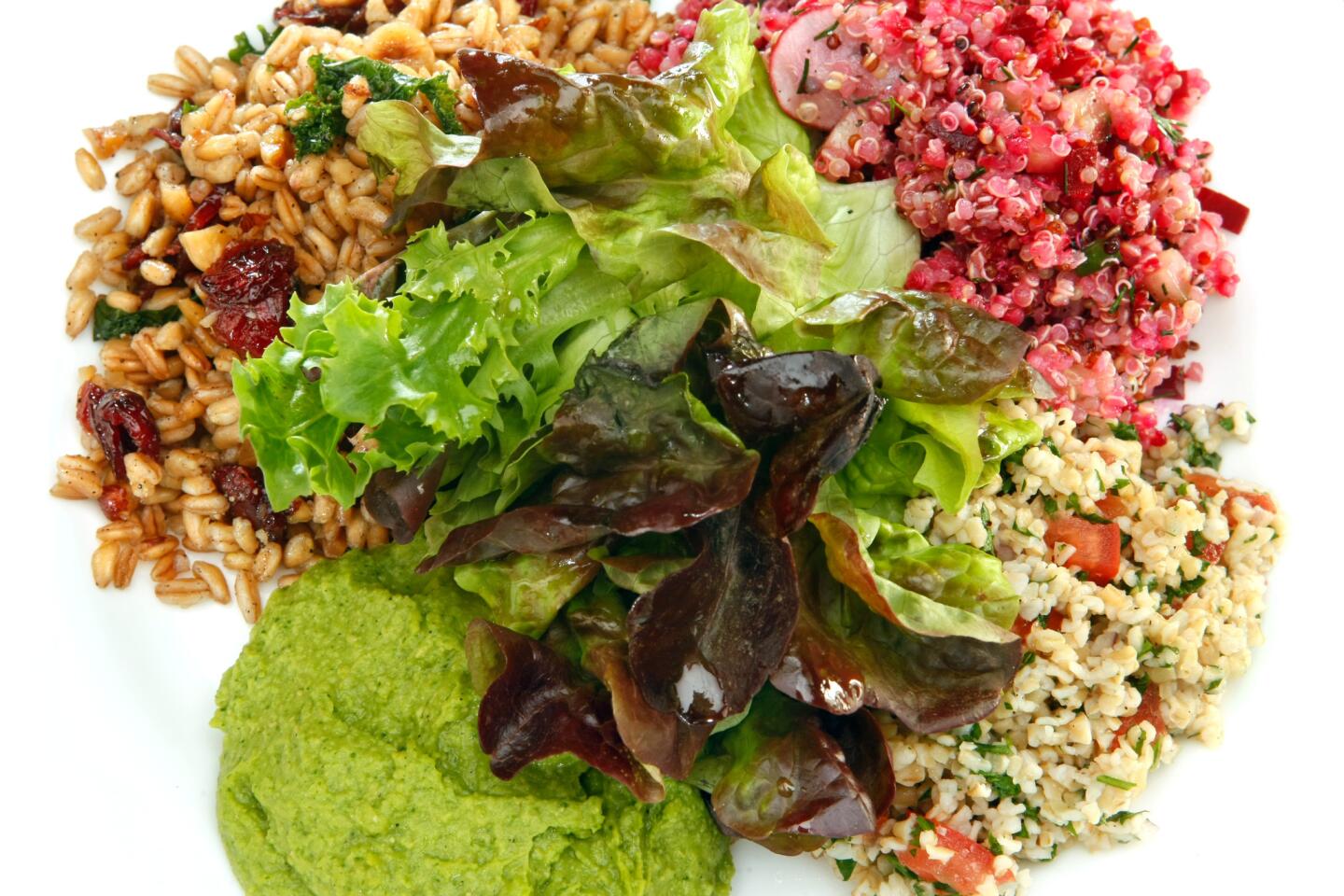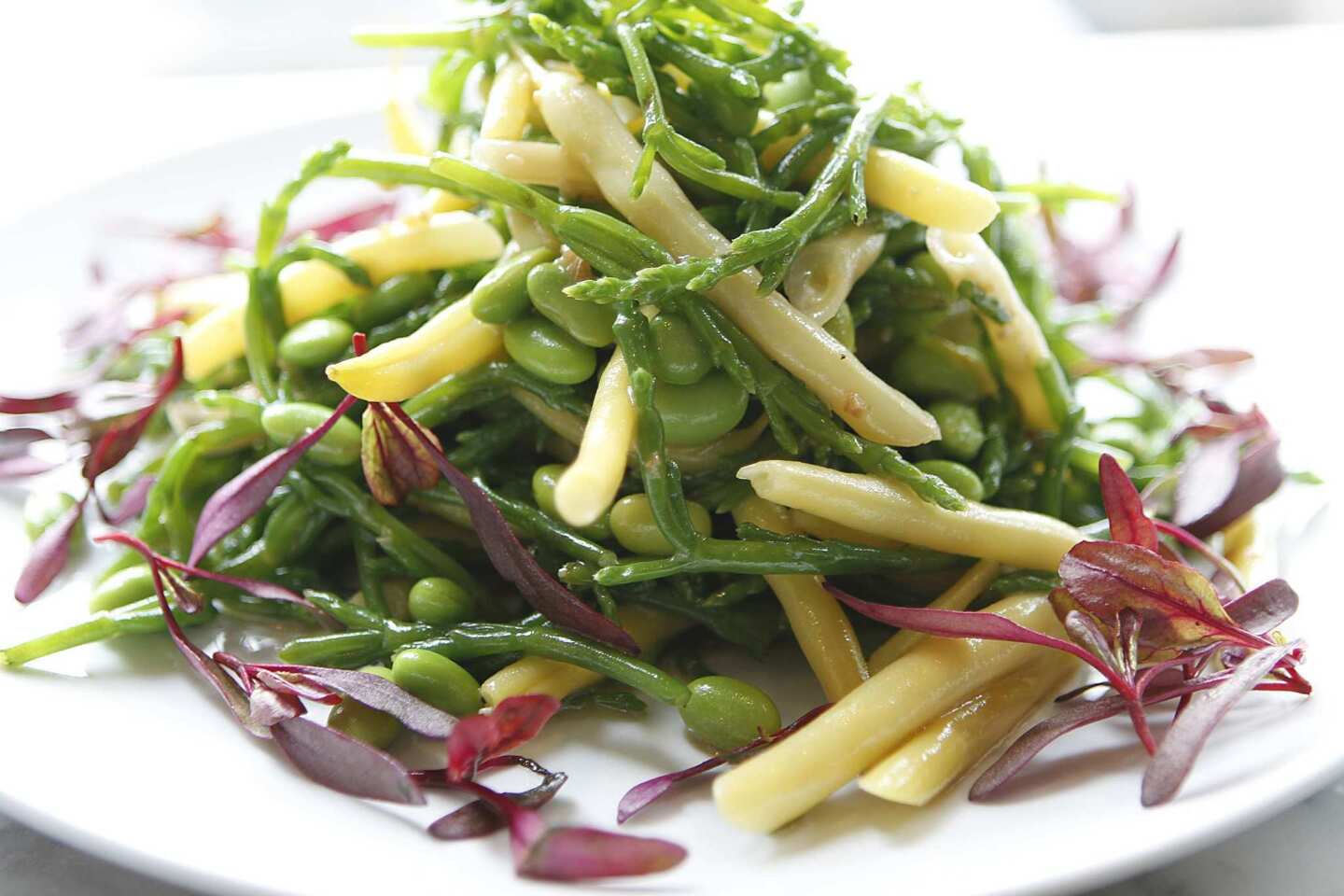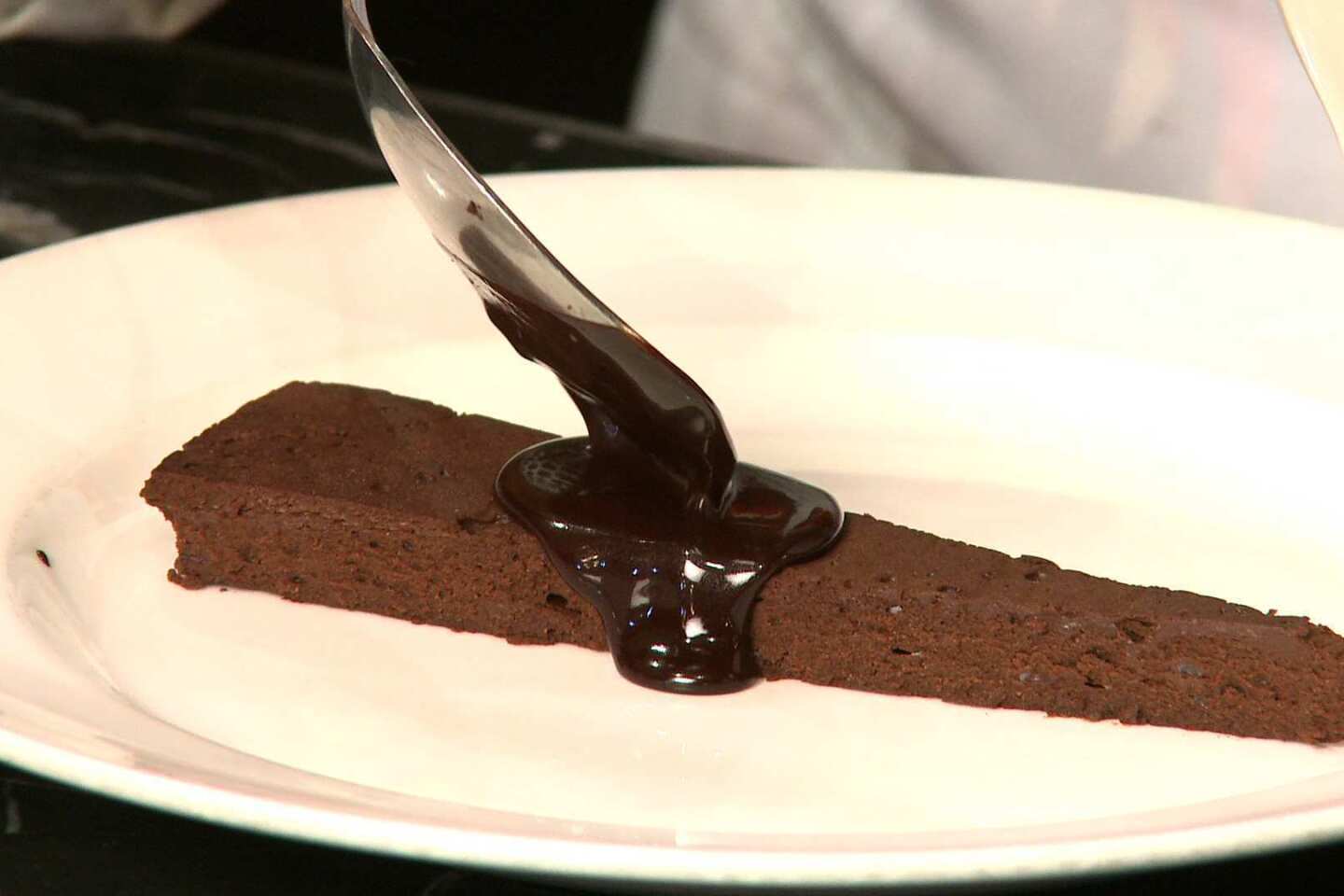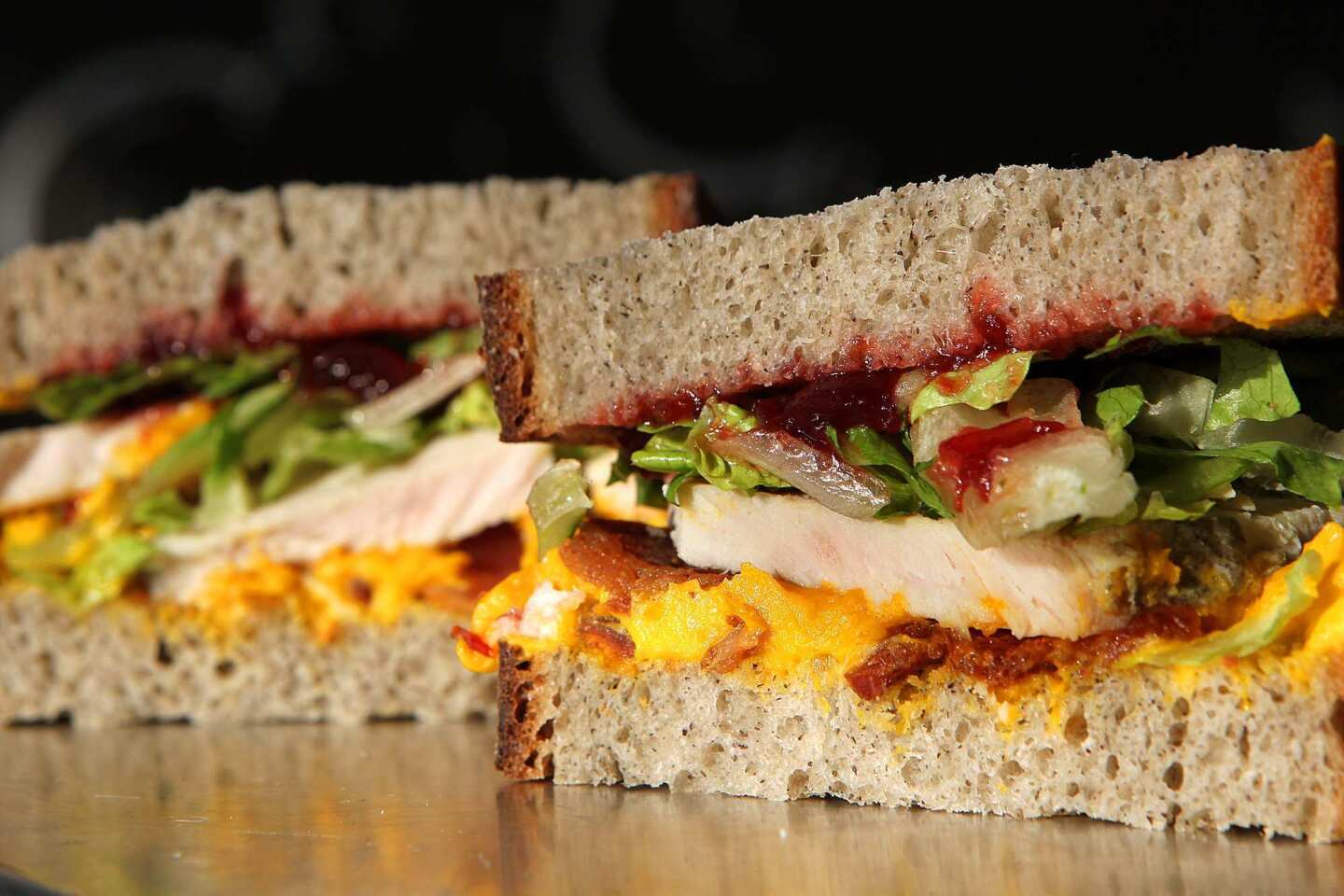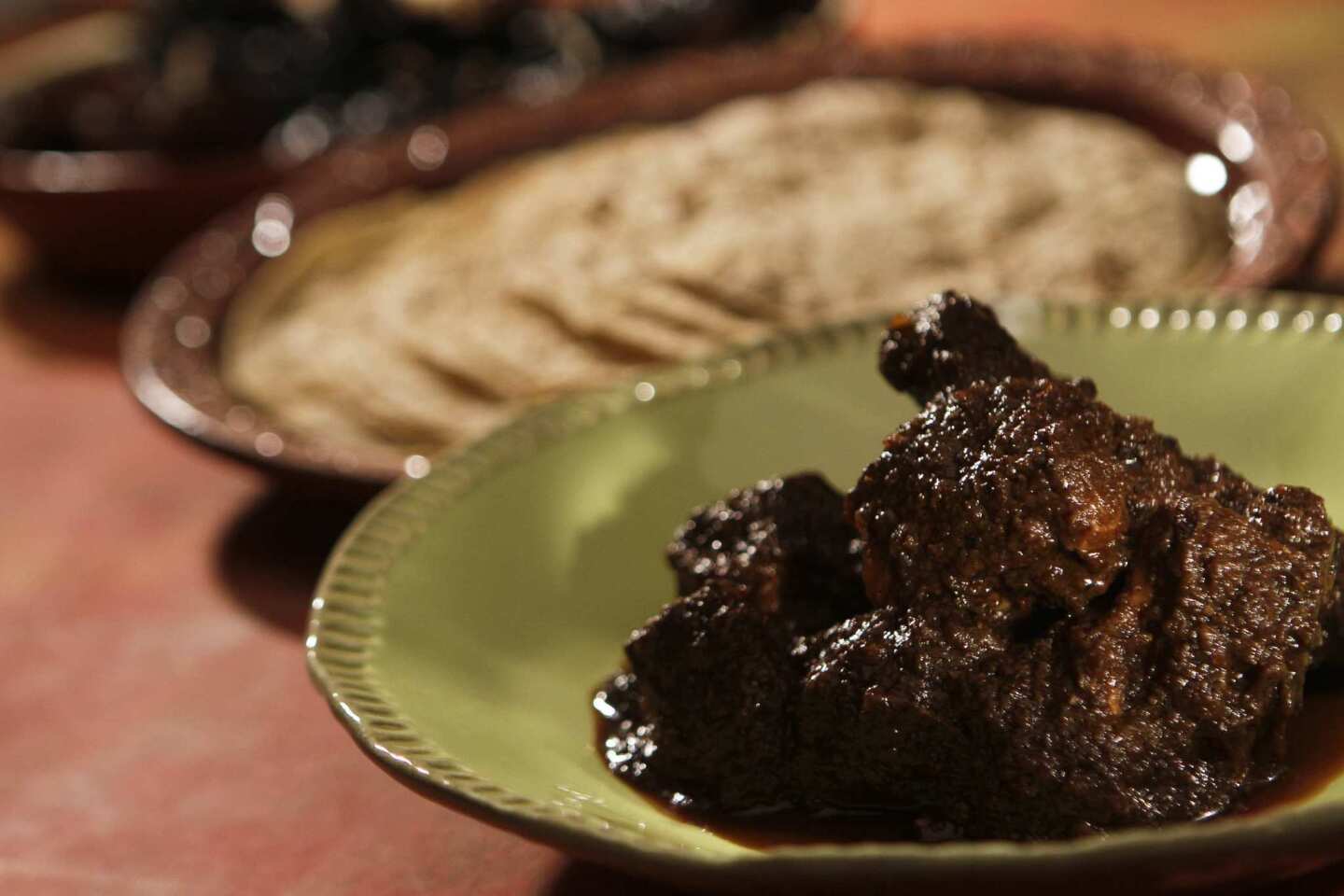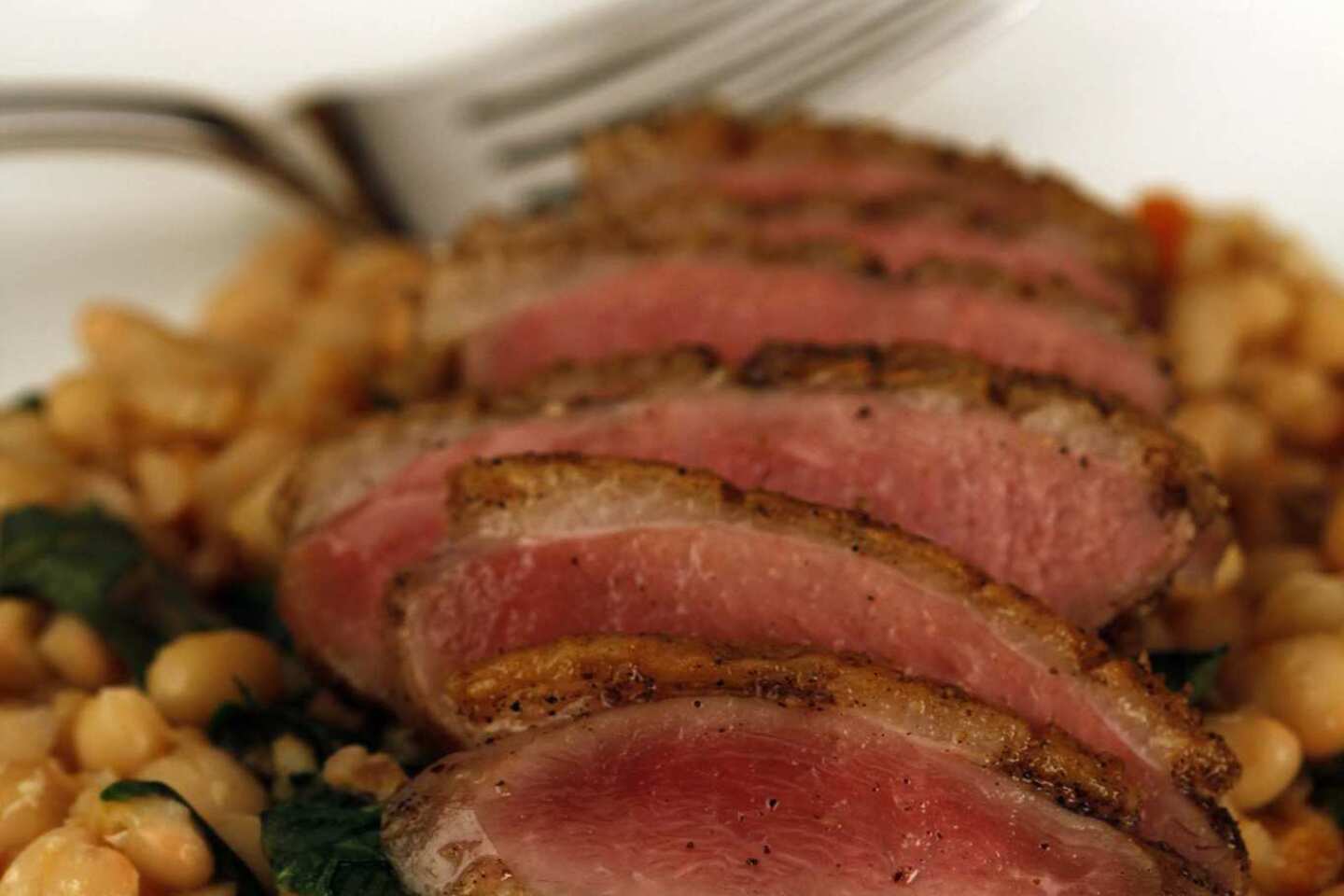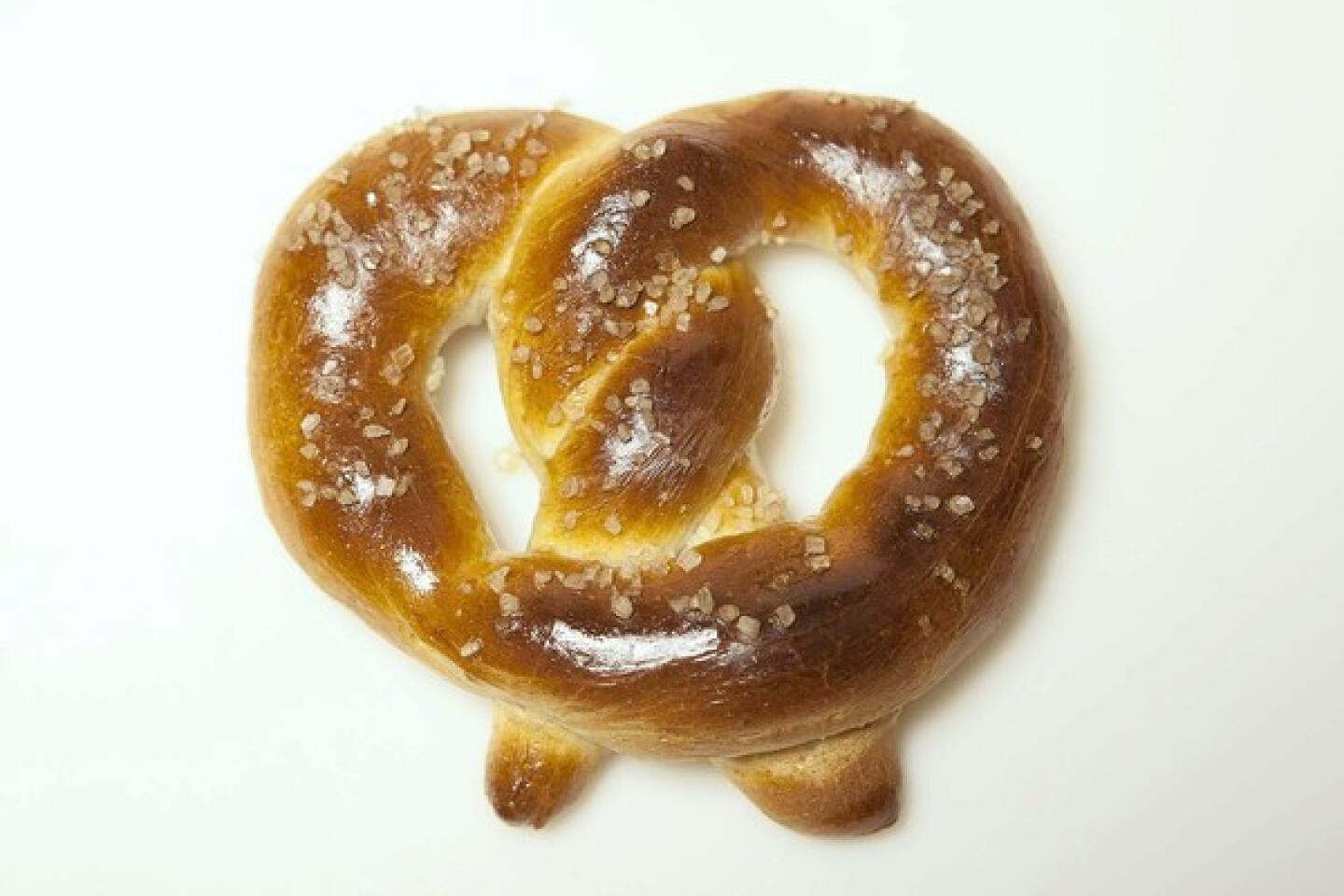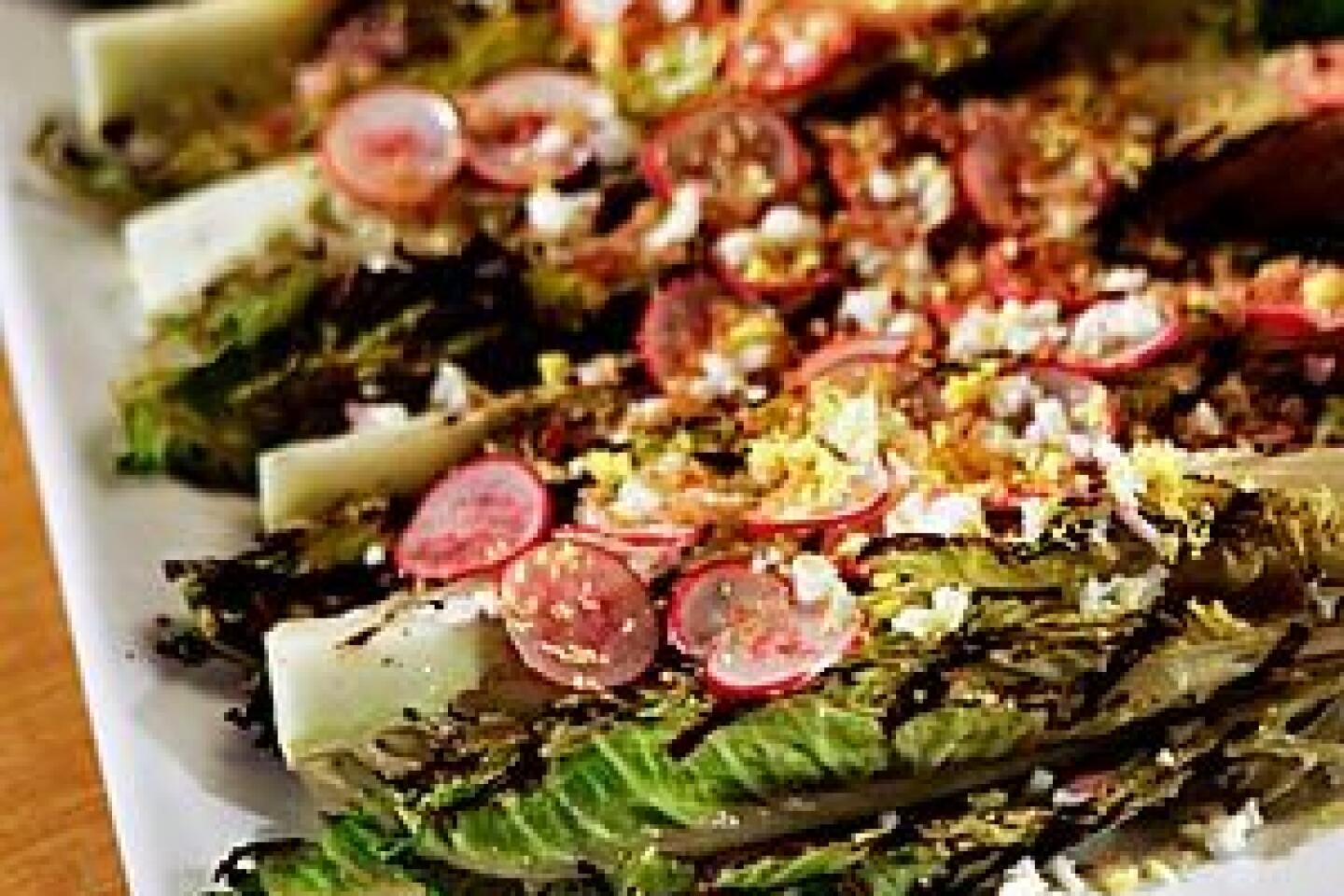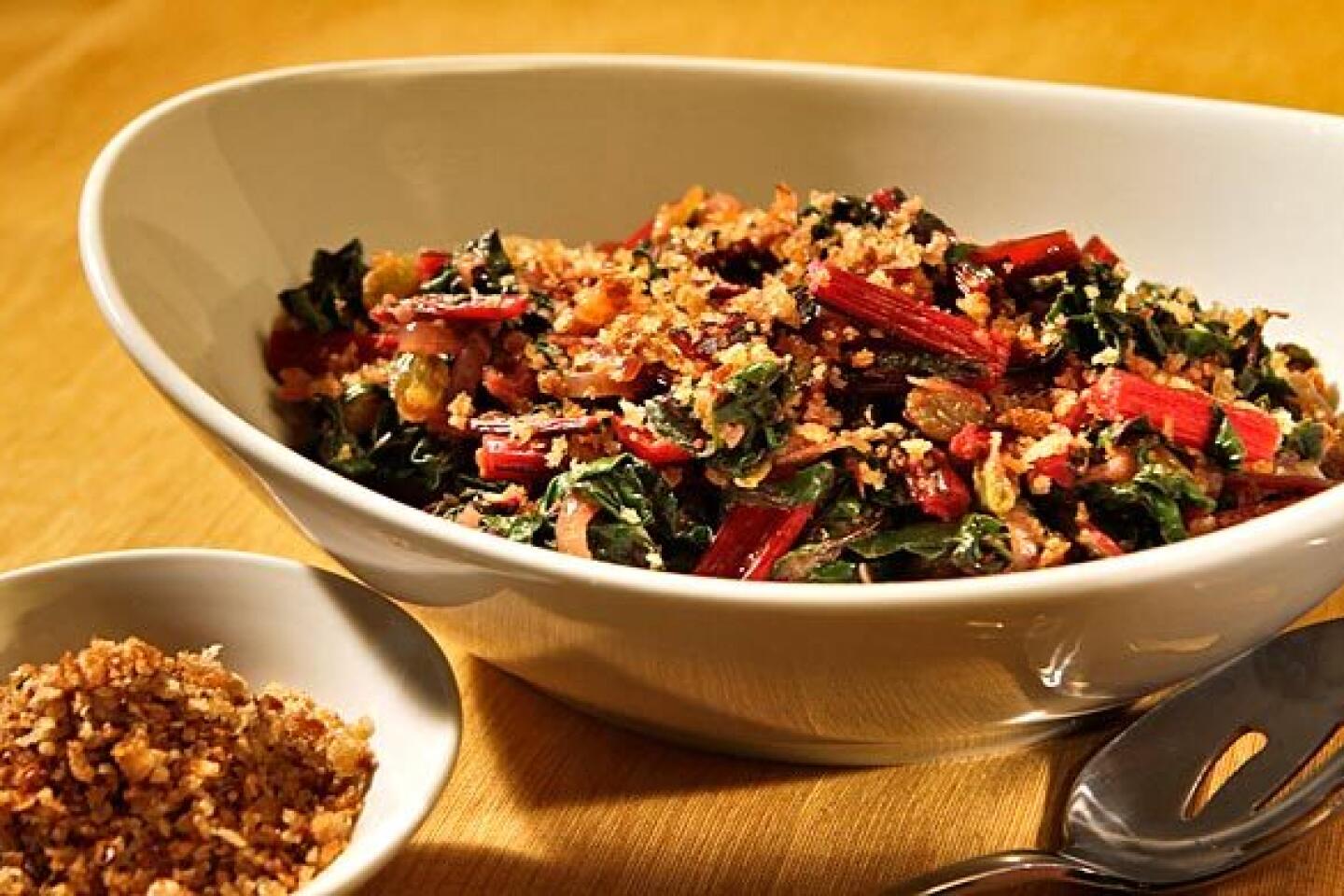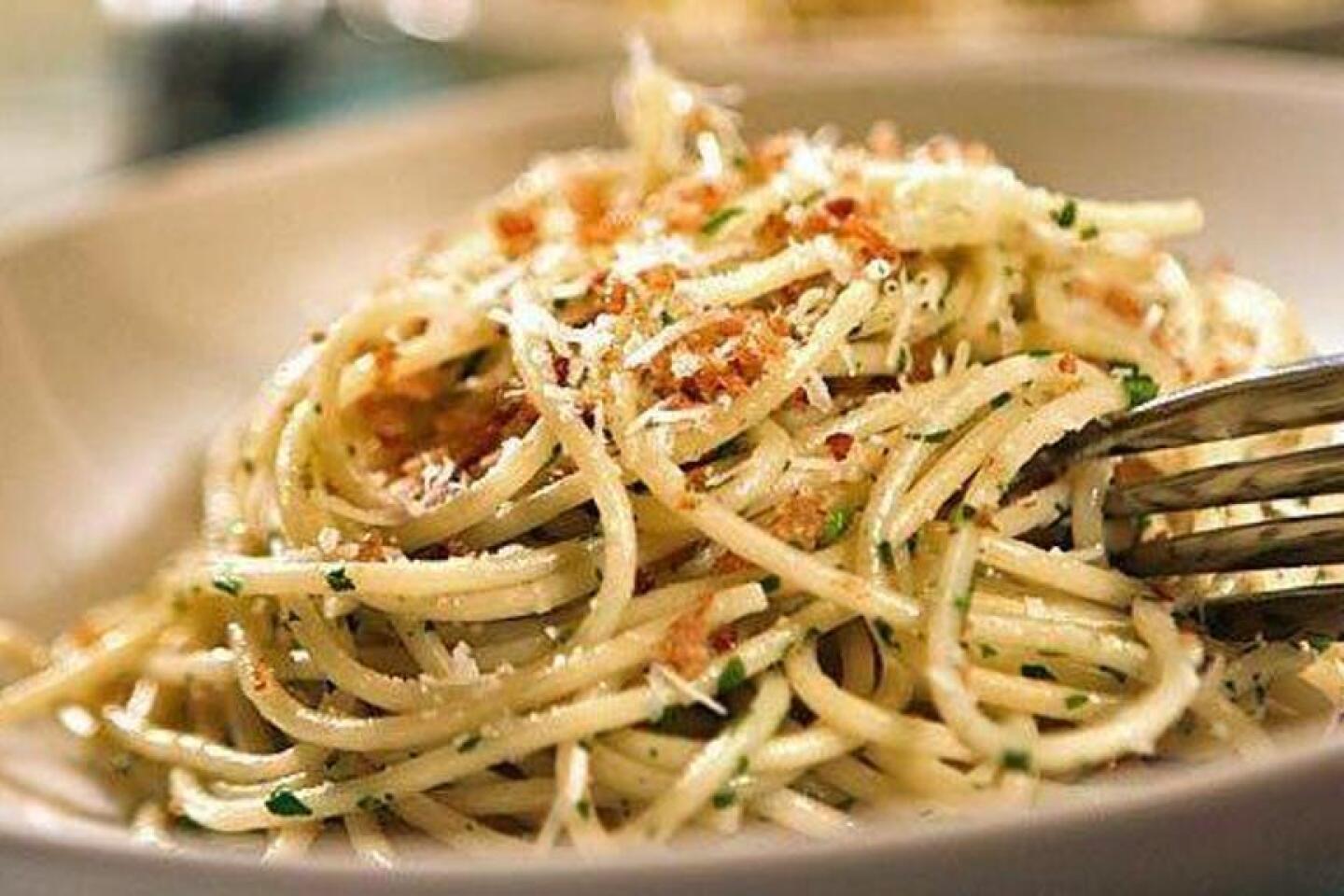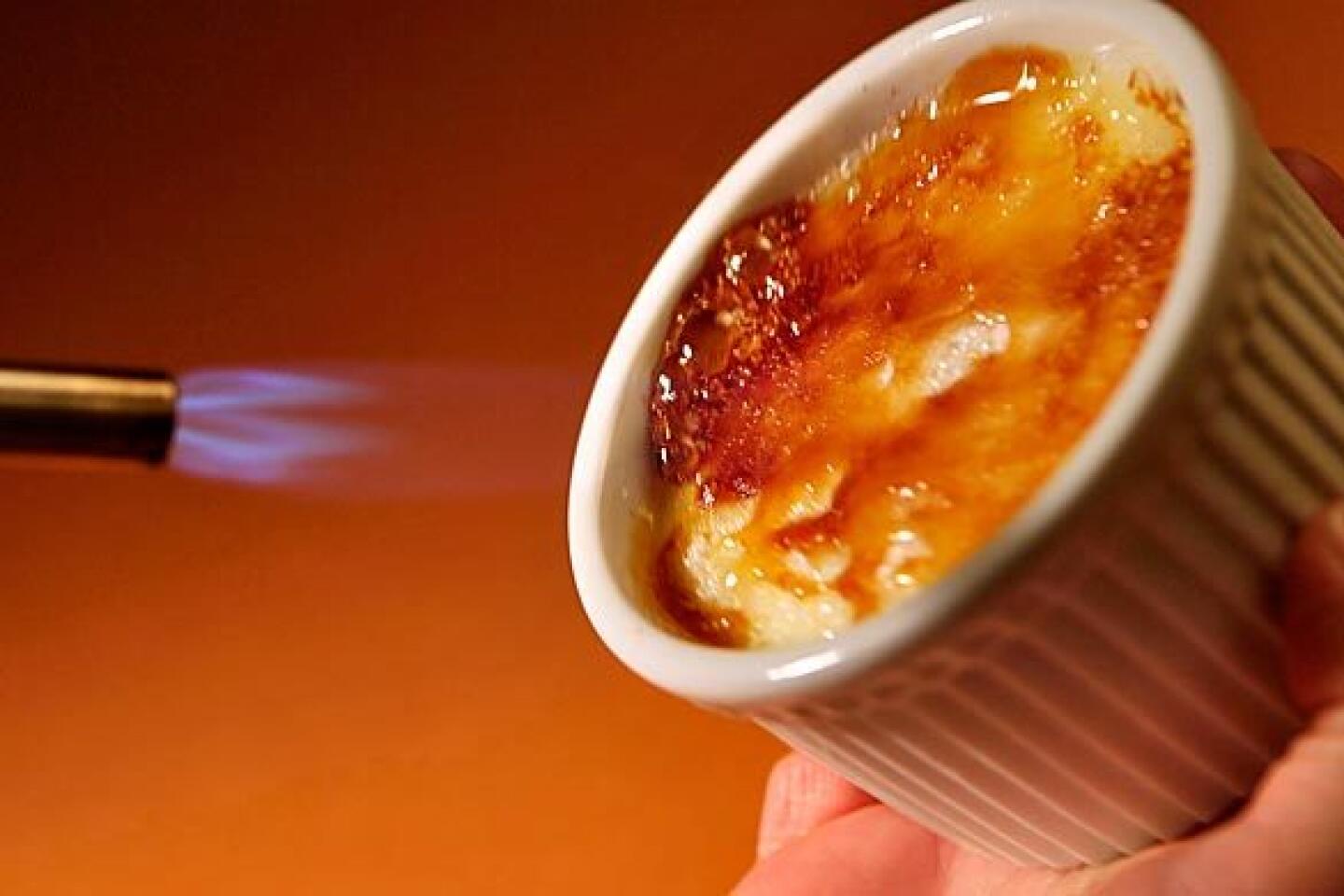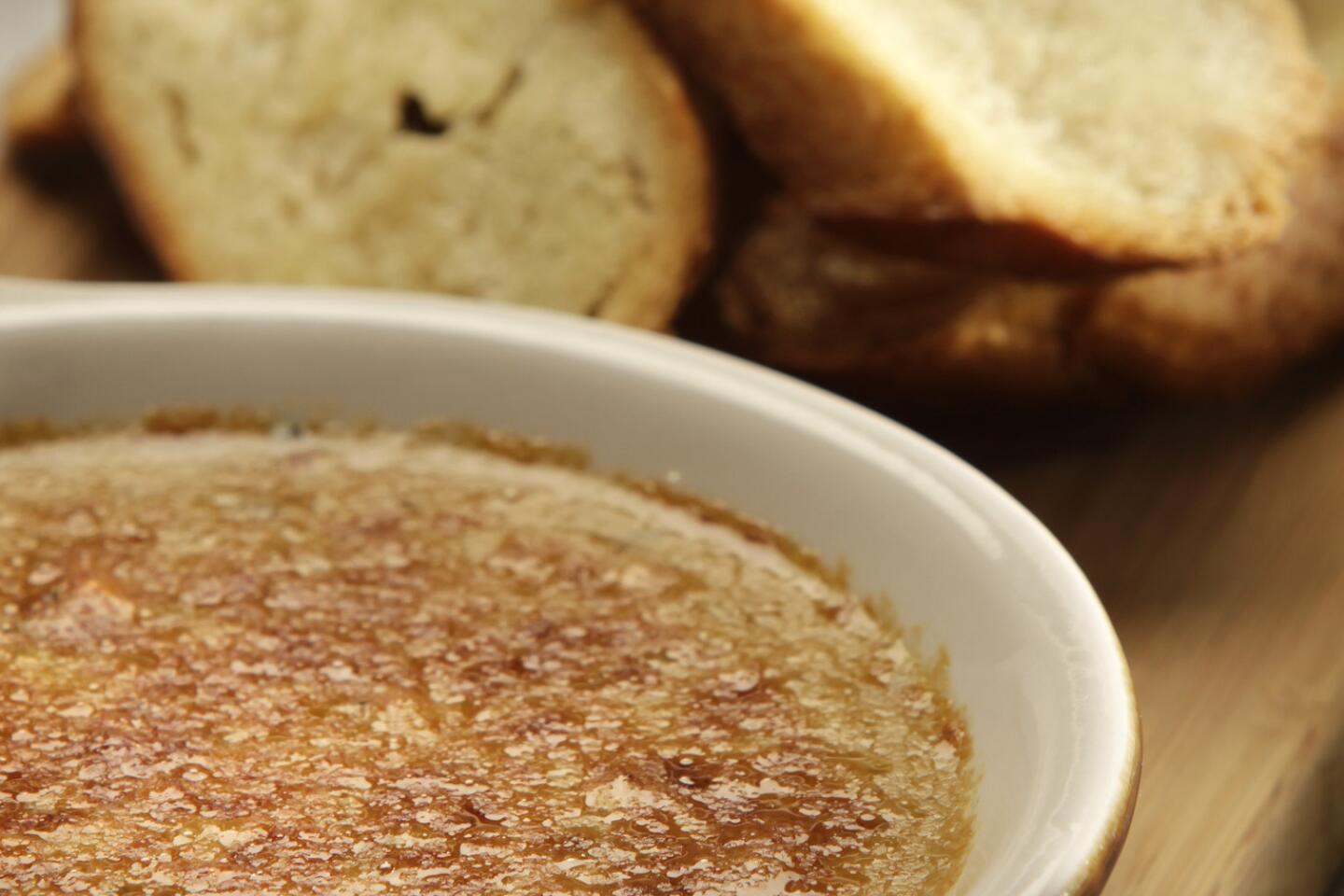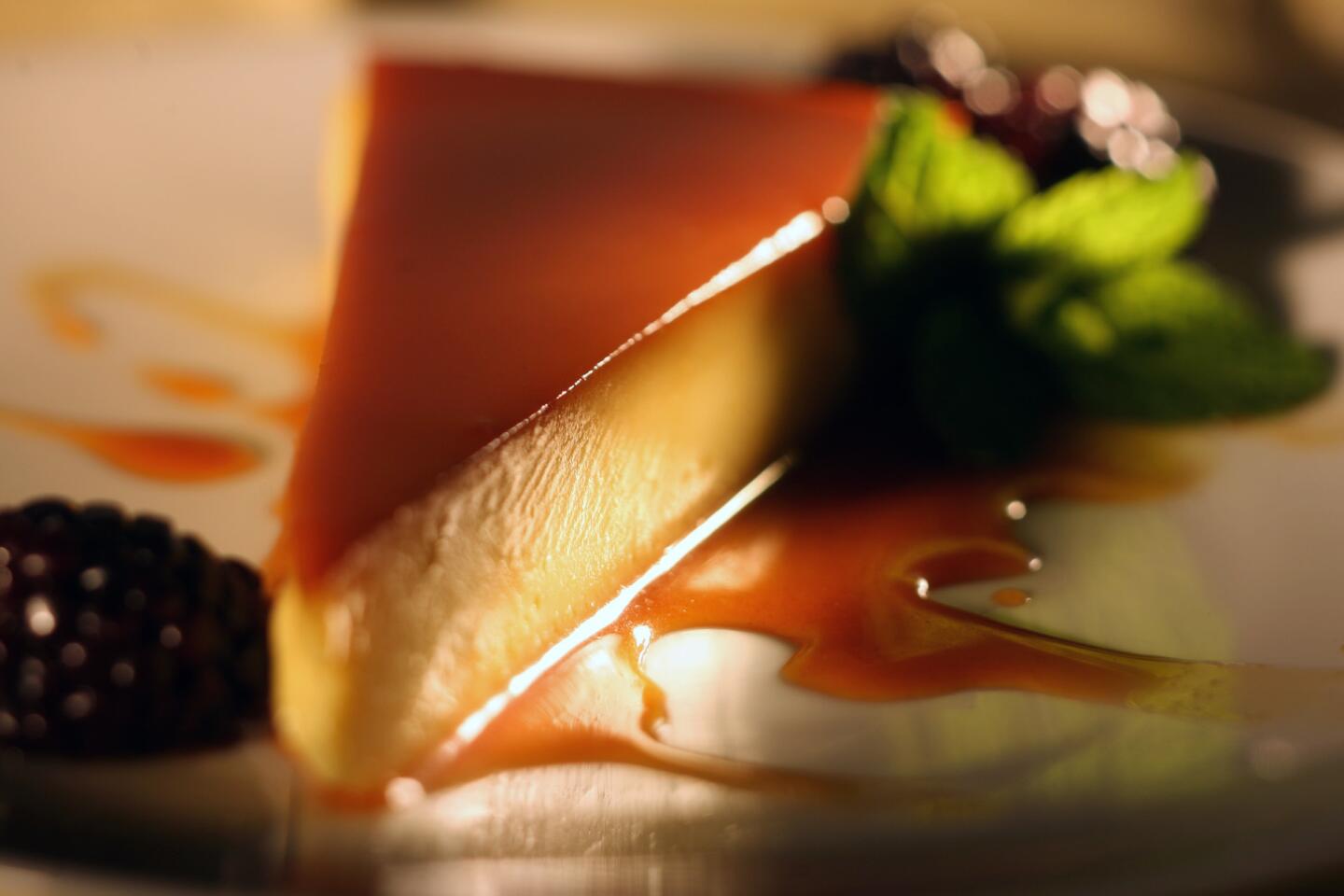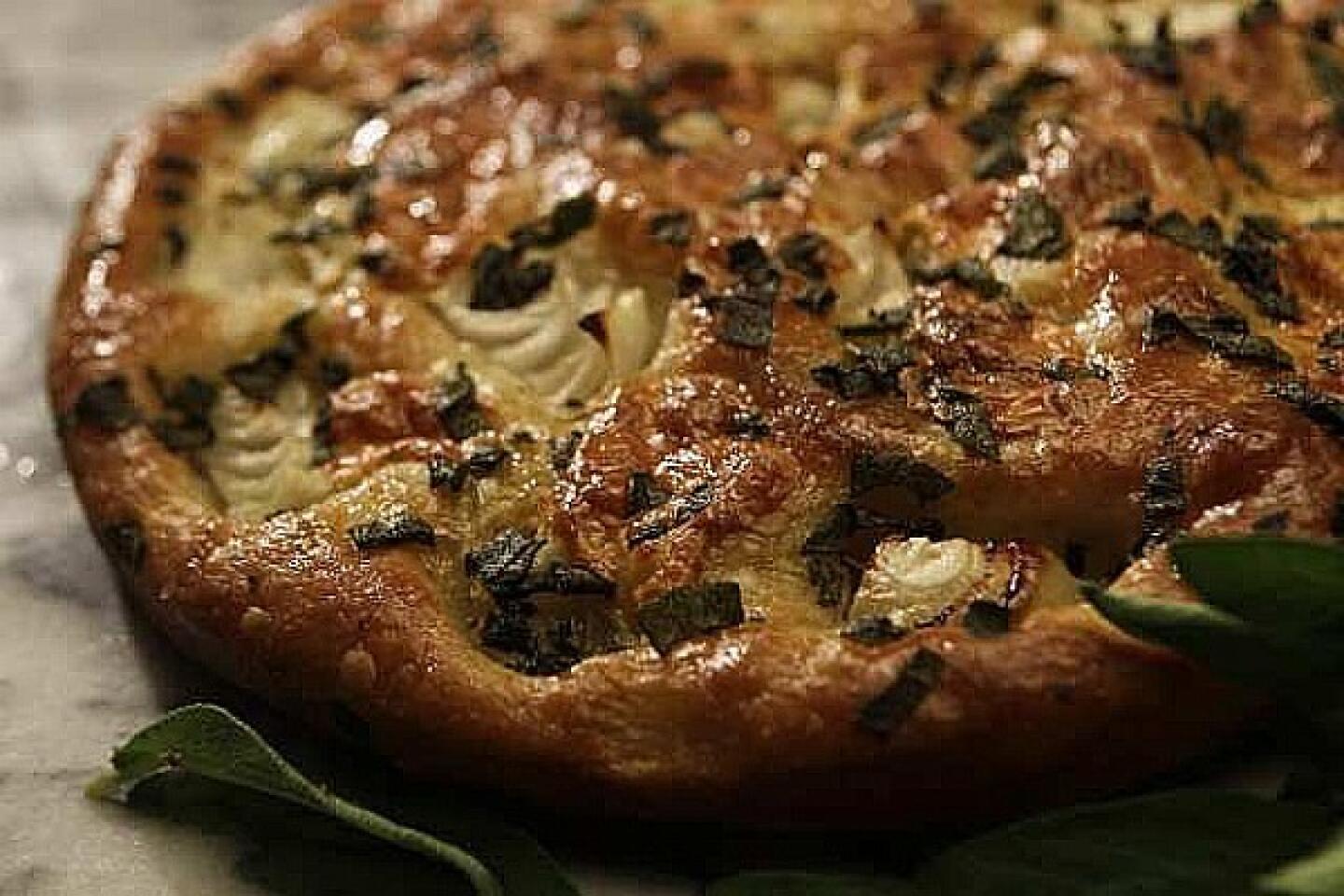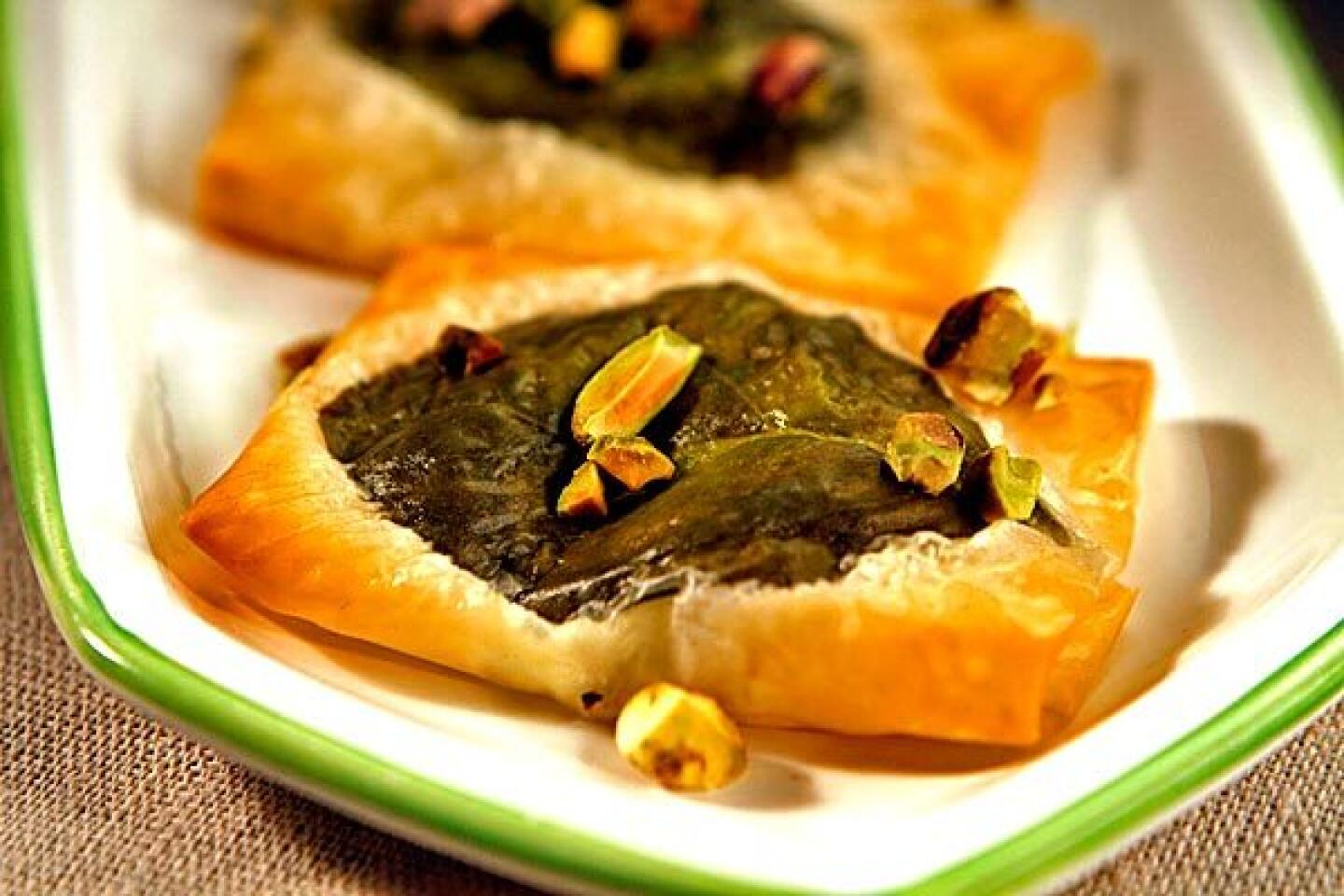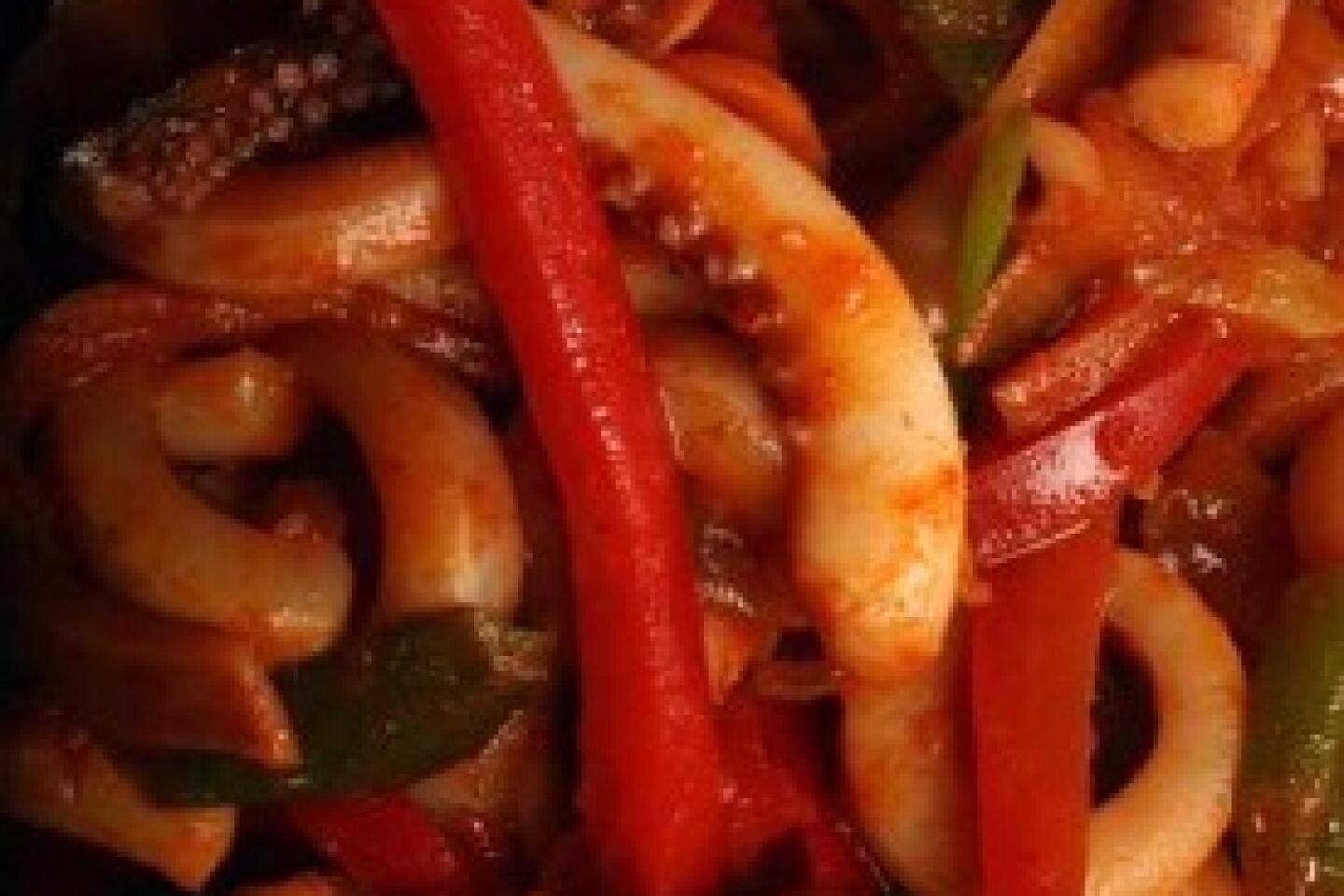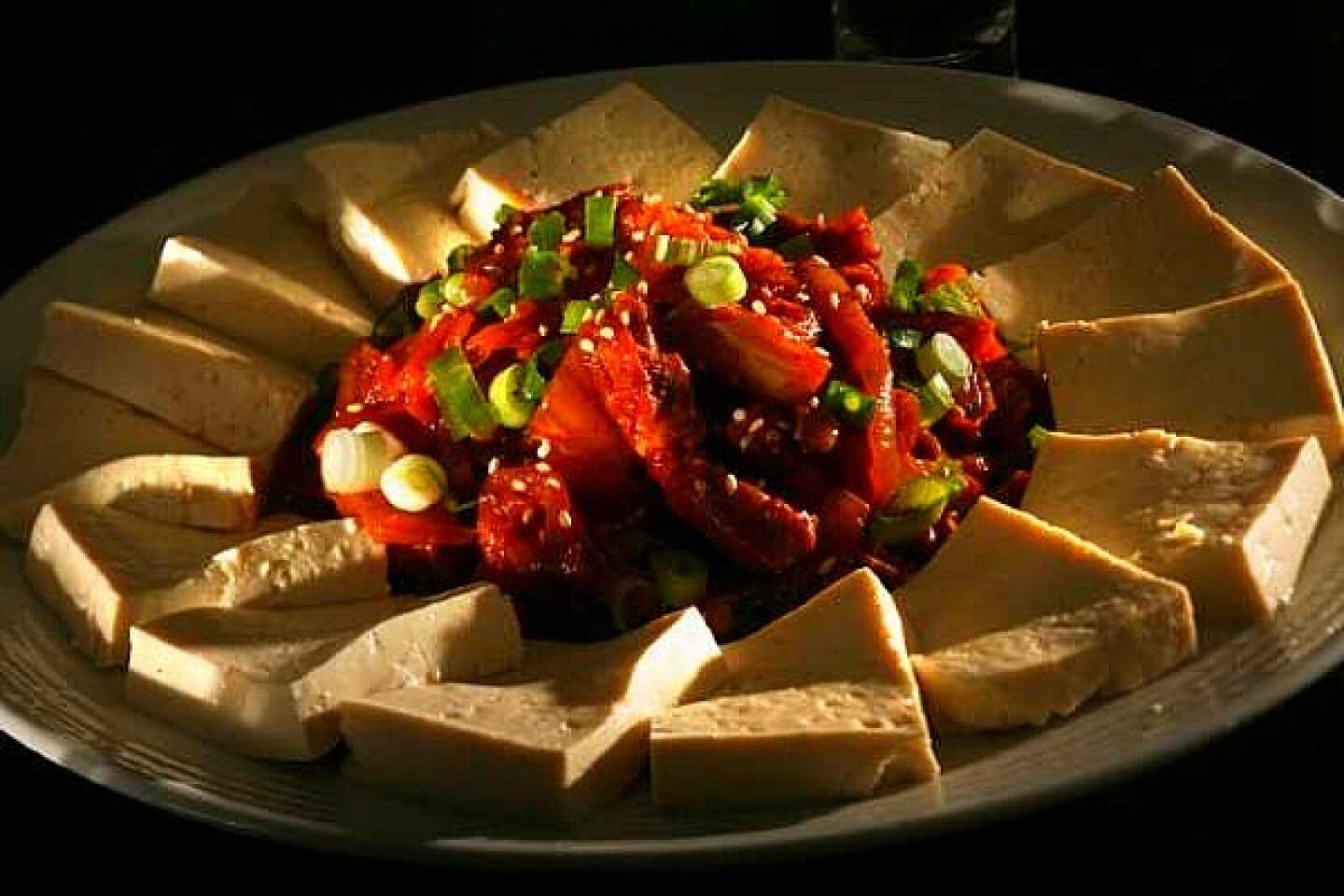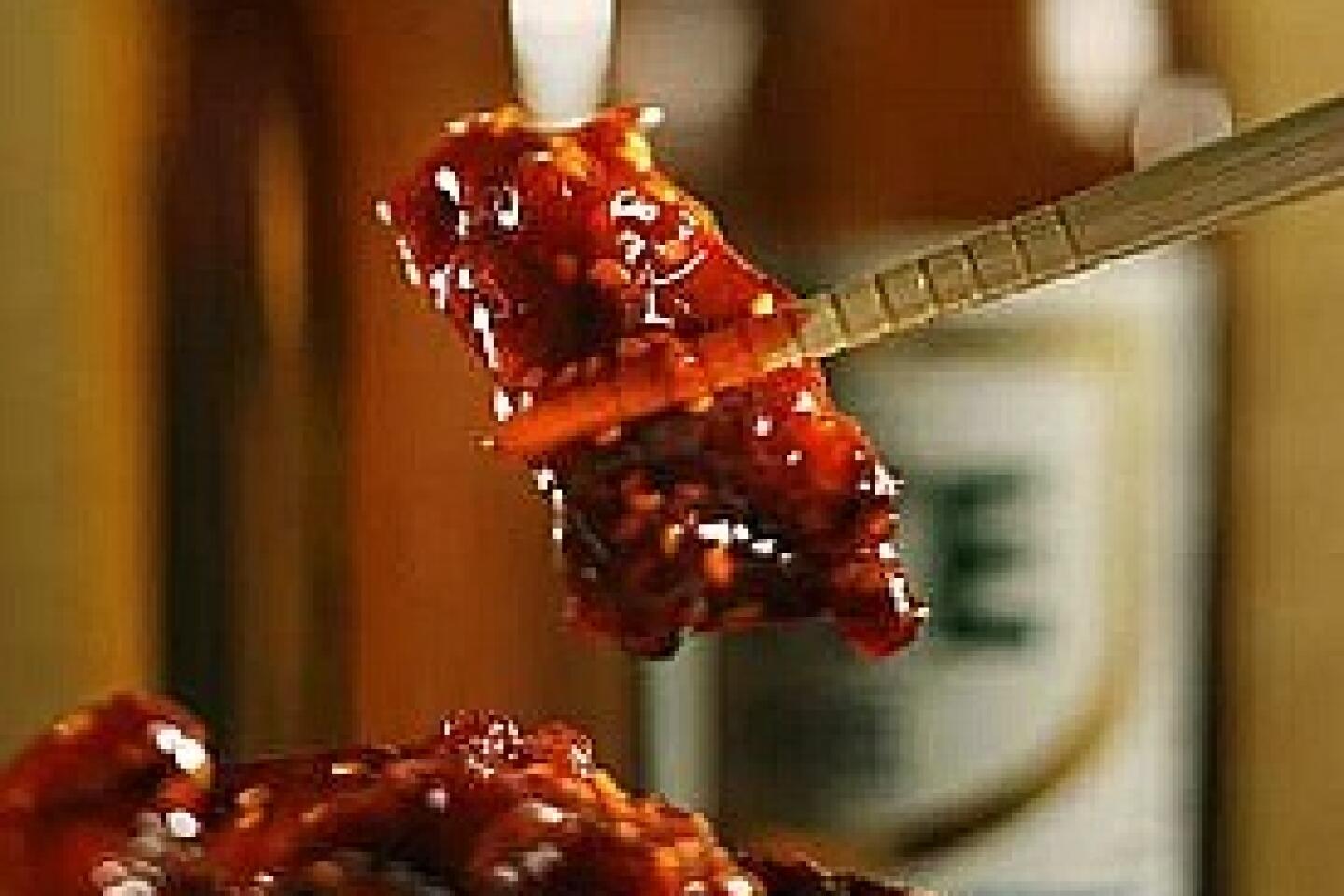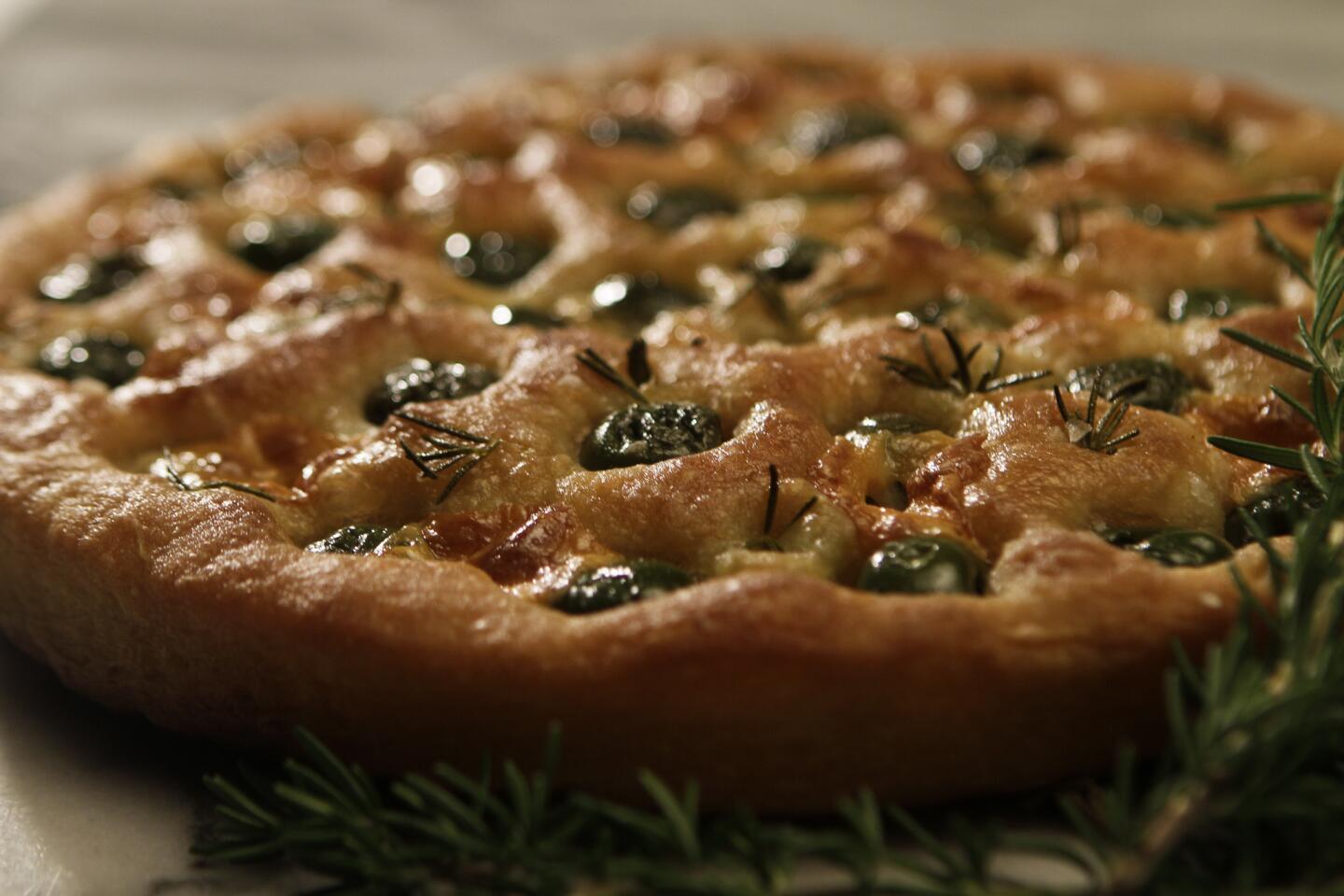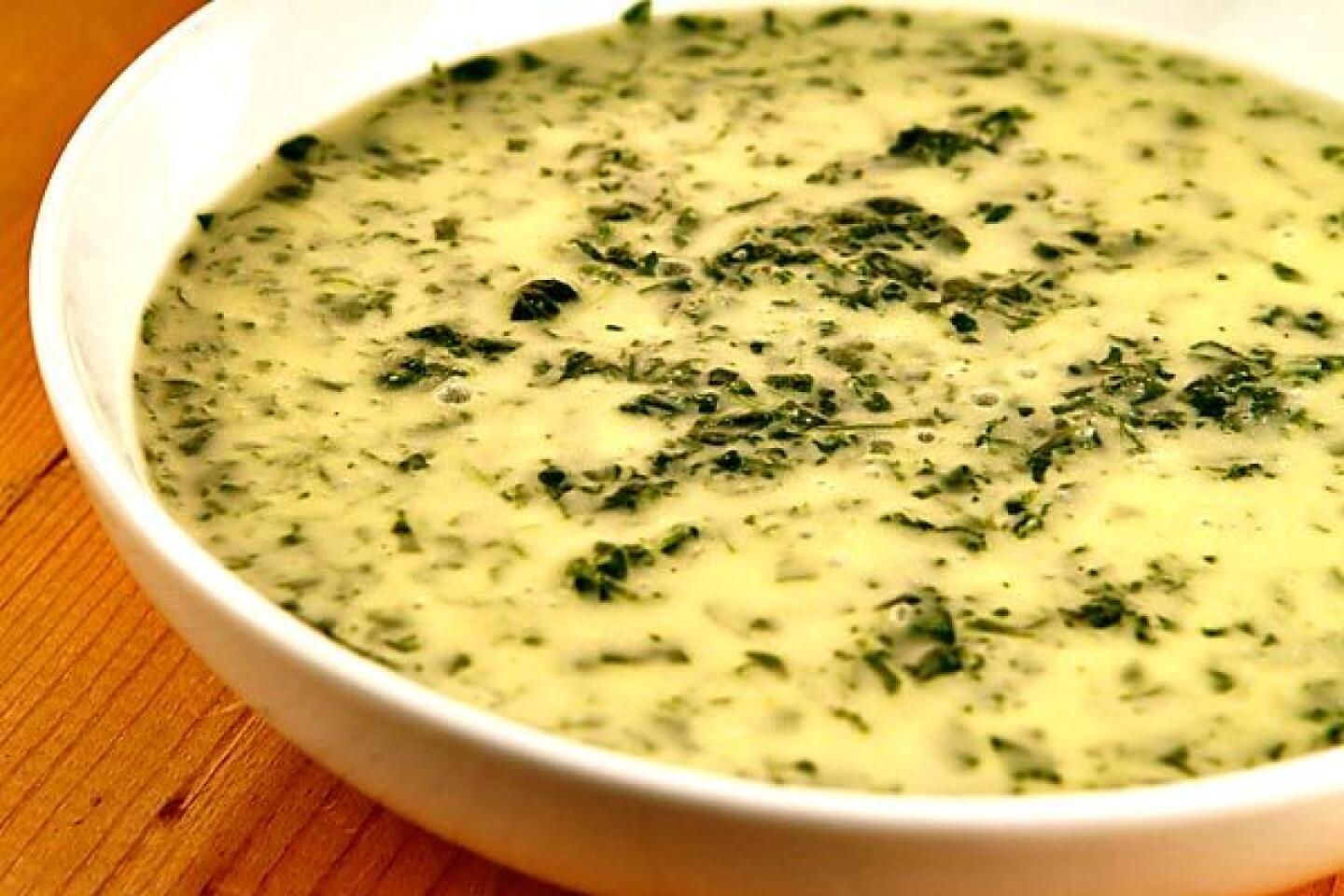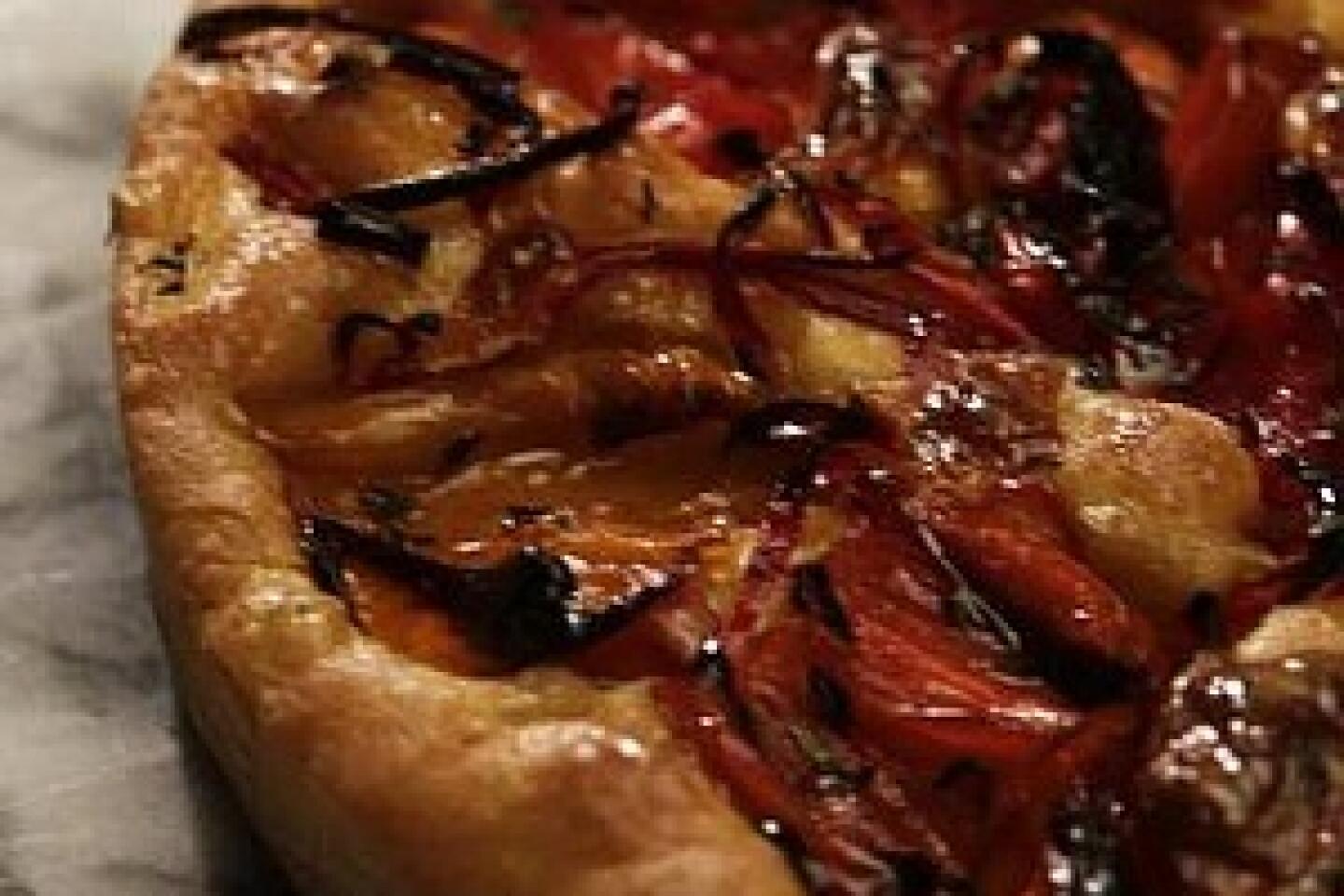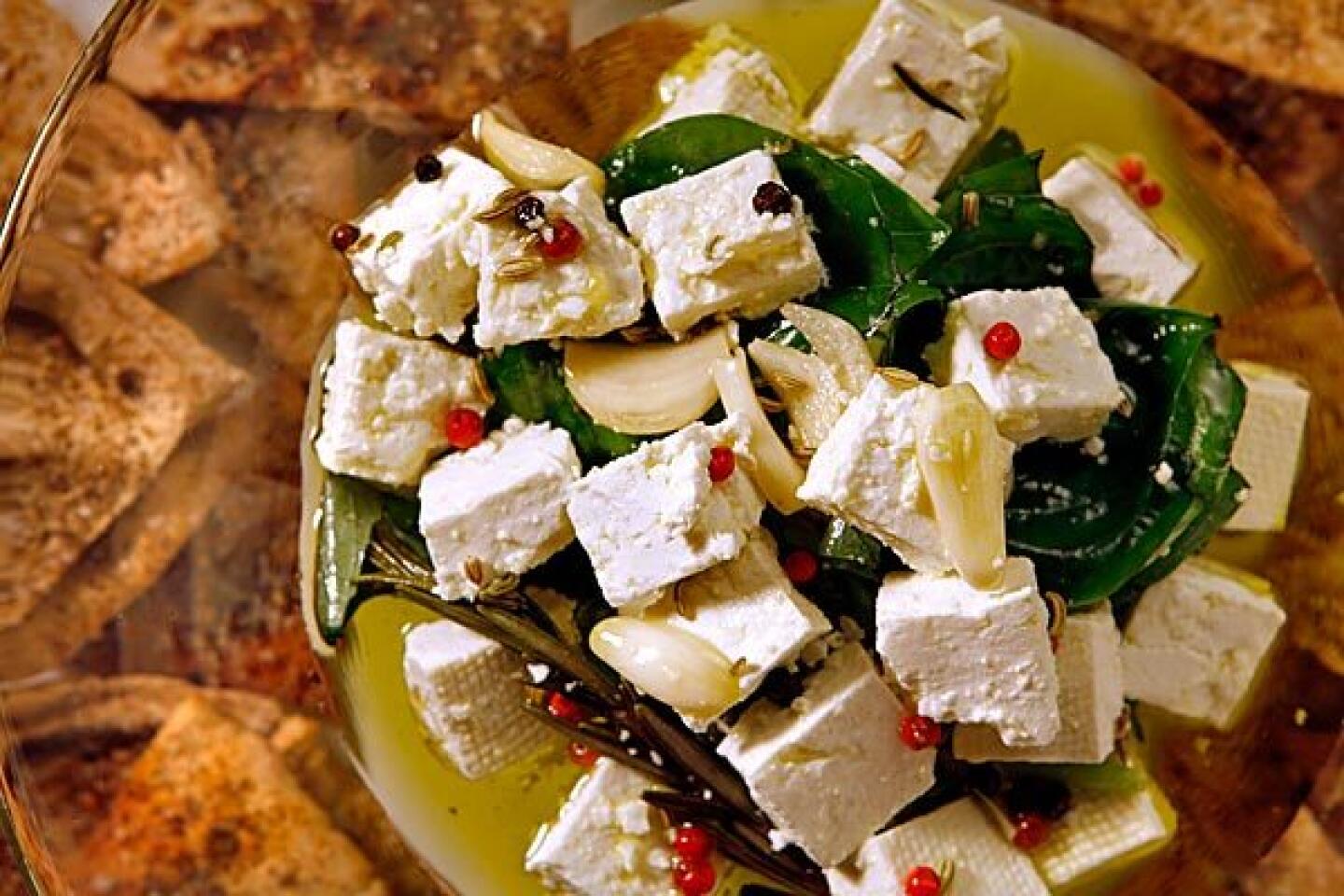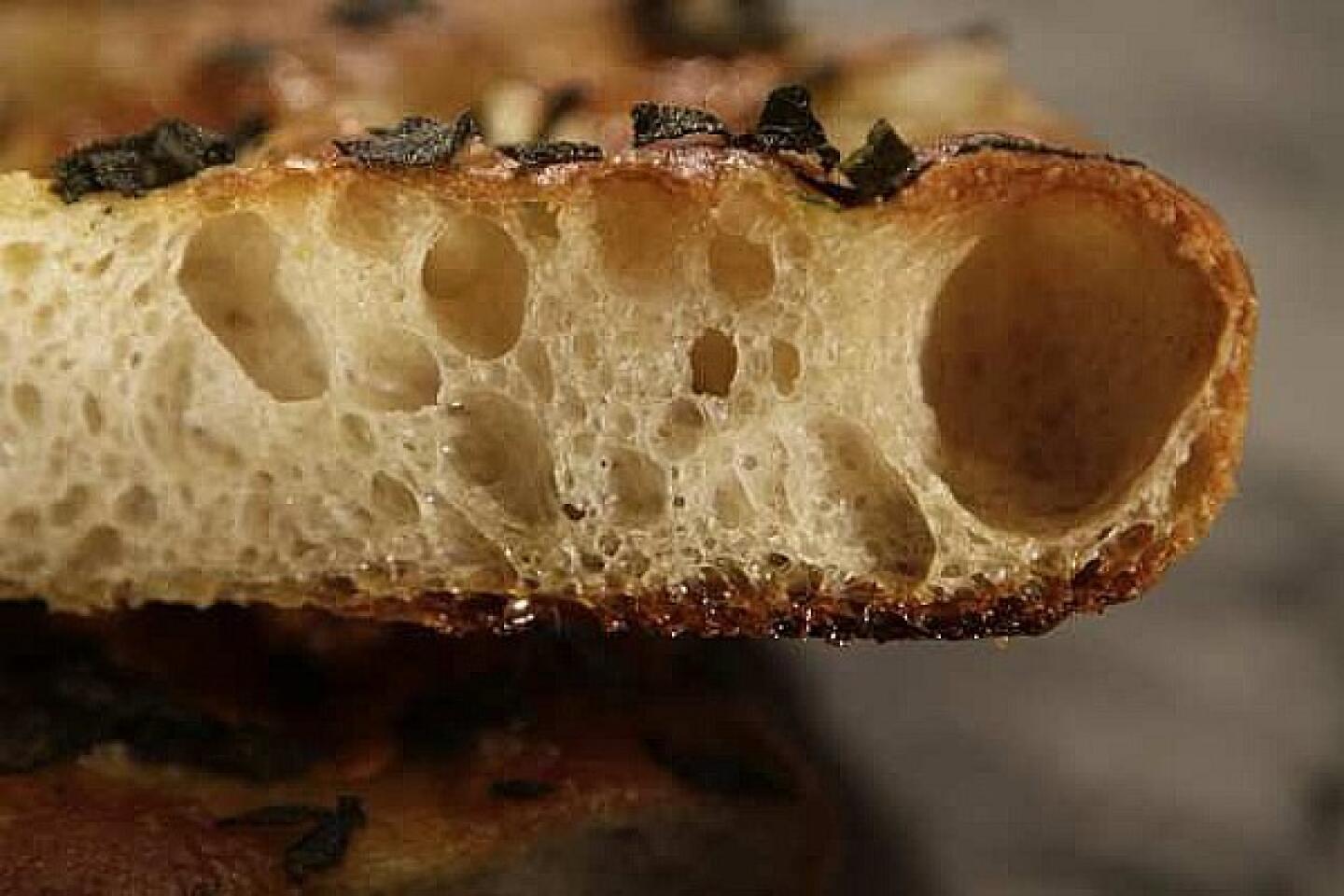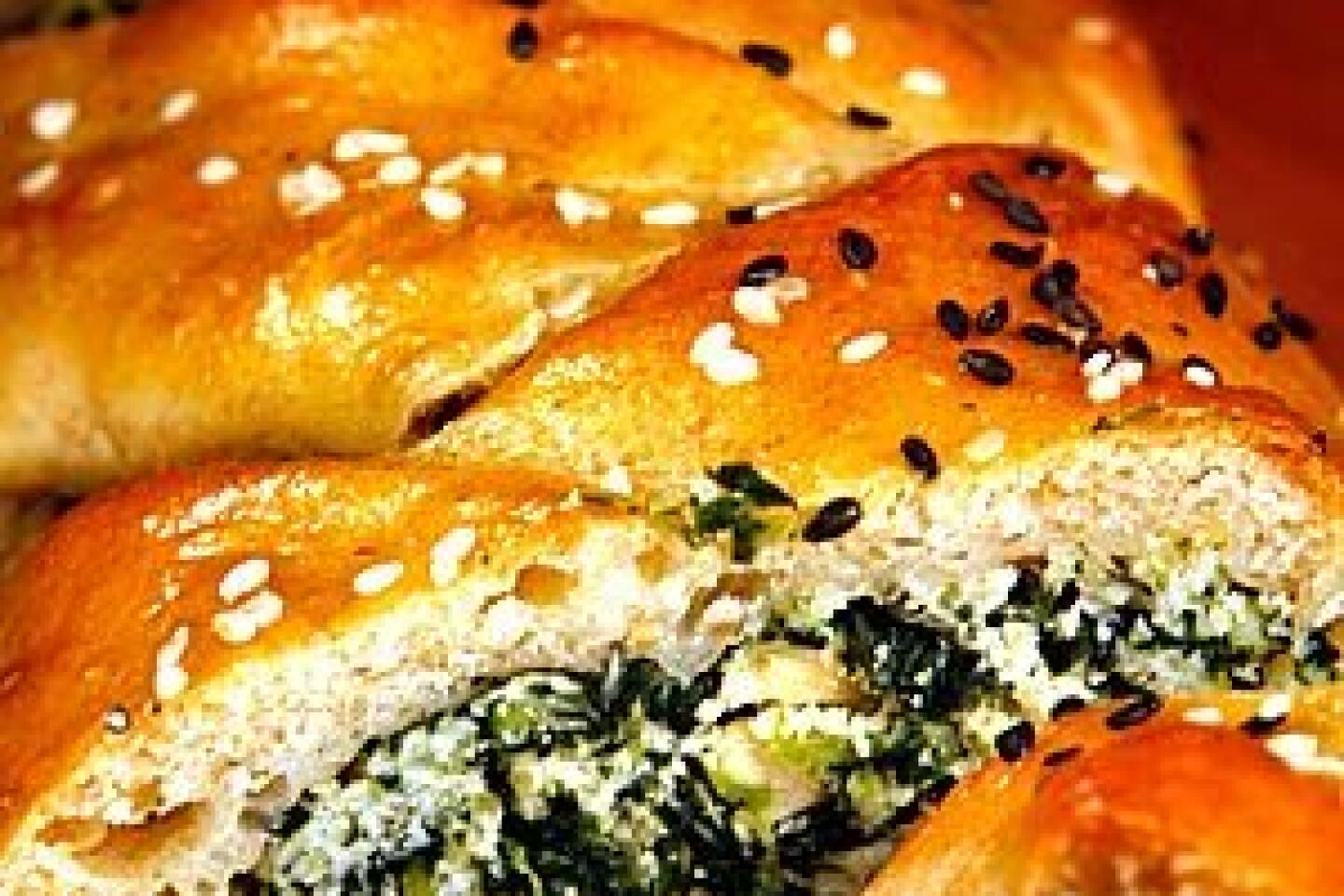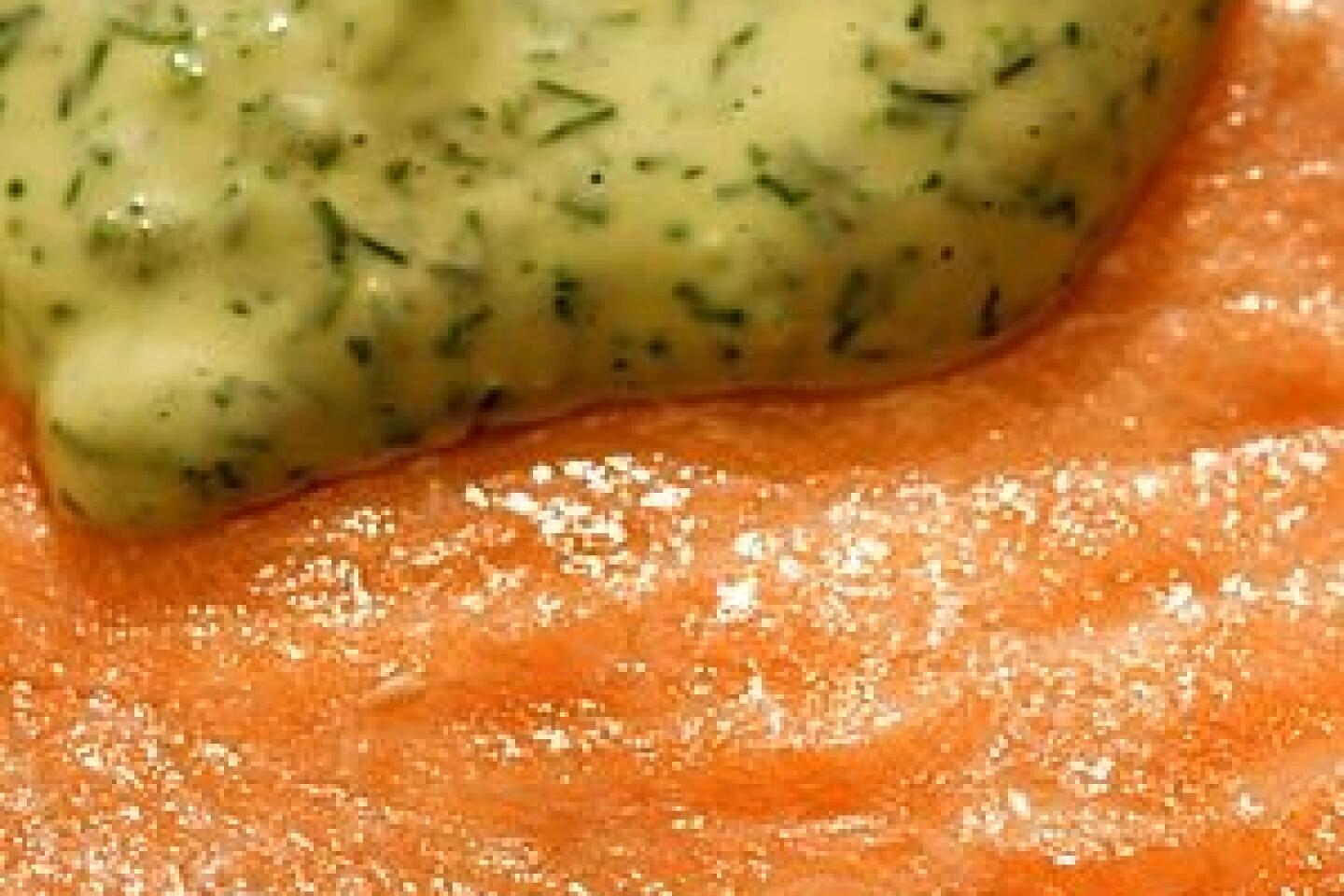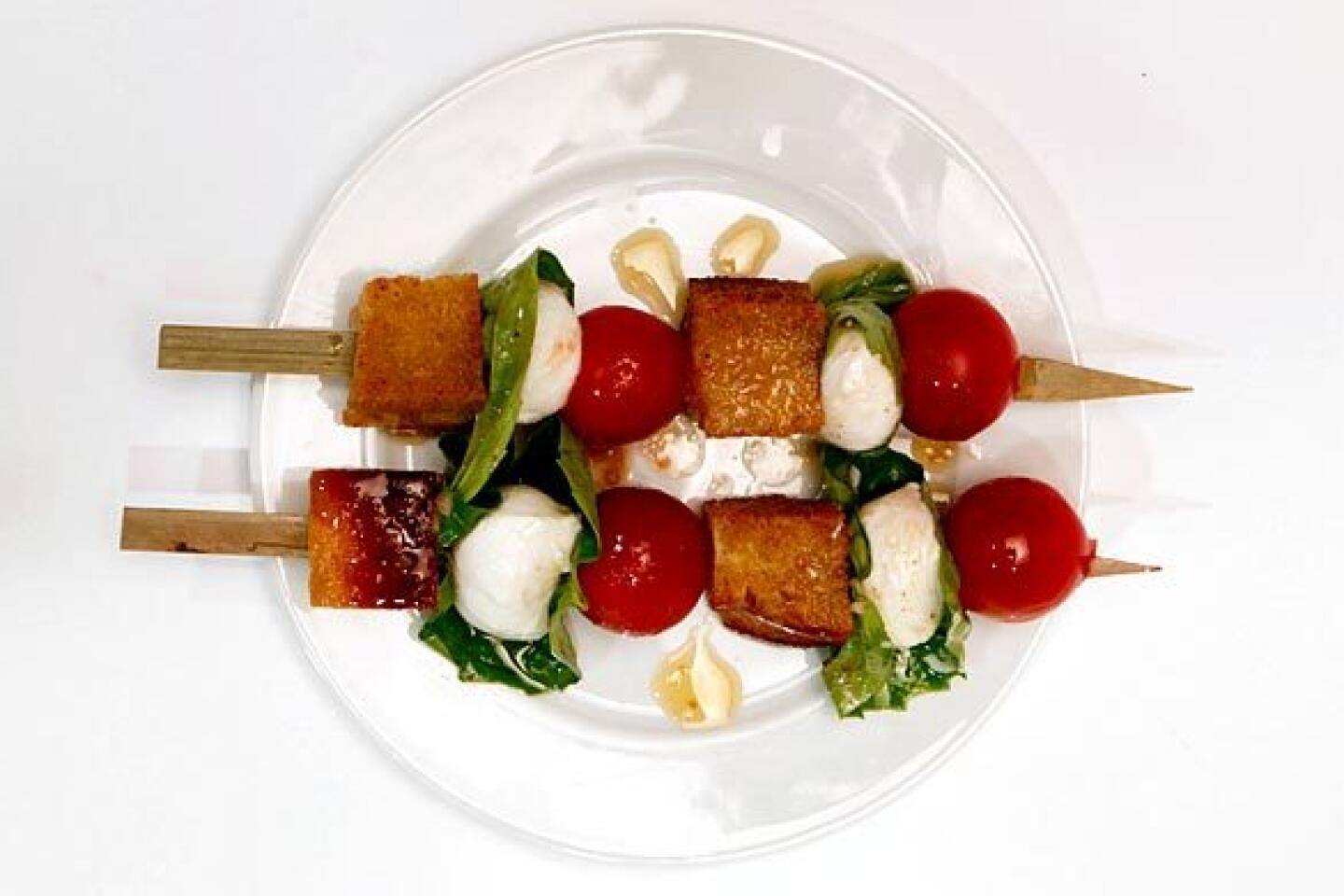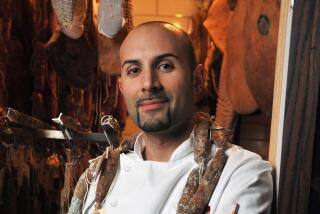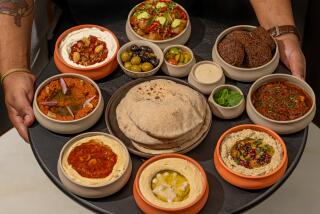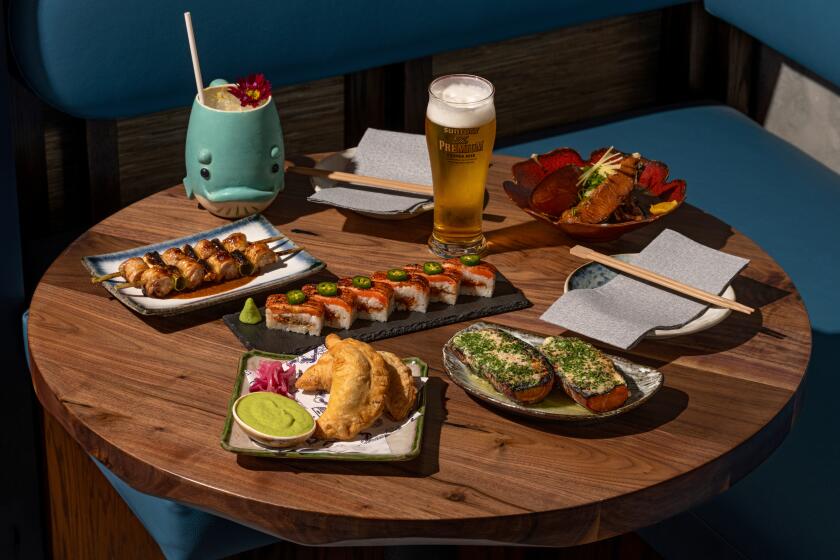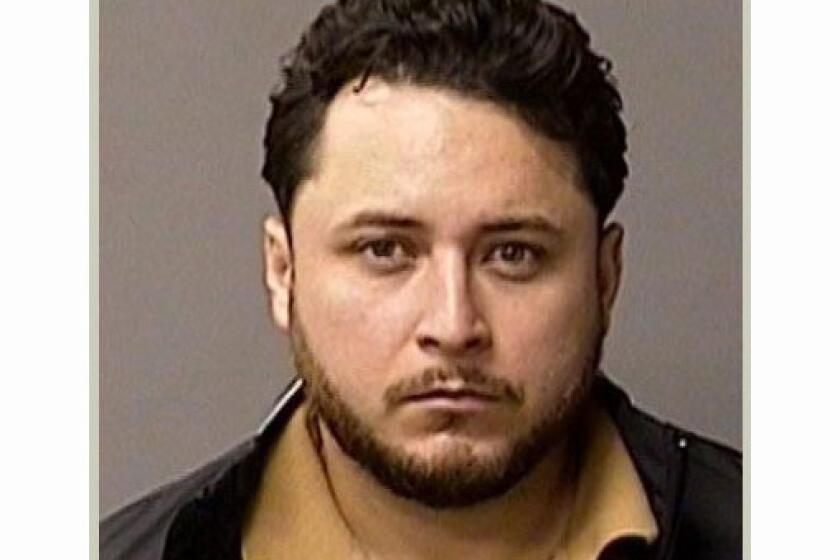Some up-and-coming chefs are skipping culinary school
Cole Dickinson, the chef de cuisine at Michael Voltaggio’s soon-to-open West Hollywood restaurant, Ink, got his culinary education the old-fashioned way: in the kitchen.
That might sound obvious, but it makes him something of an anomaly as the number of culinary schools multiplies, drawing legions of novice cooks with the promise of turning them into top chefs.
Yet the less-touted, less-glamorized path of working one’s way up through the restaurant kitchen ranks is starting to sound more appealing. At a time when for-profit professional cooking schools are coming under more scrutiny, some of L.A.’s rising chefs — like Dickinson — are succeeding without ever having stepped into the classroom.
For-profit schools across the country are facing a flurry of lawsuits claiming fraud; they’re accused of misleading students about tuition costs, job placement rates and how much they’ll earn after graduating.
The cautionary tale of a would-be chef goes like this: A starry-eyed youth dreams of helming a restaurant kitchen and enrolls in a $60,000 culinary program but upon graduation still qualifies only for a job as a $10.50-an-hour line cook and struggles to work off crippling school loans that, with interest, can balloon to nearly $100,000. Dream crushed.
Meanwhile, Dickinson has a coveted gig at one of L.A.’s most hotly anticipated restaurants. He was a 17-year-old bussing tables for Charlie Palmer in Healdsburg, Calif., when he first considered culinary school. “I didn’t have the money. I had a single mom,” Dickinson says, “so I got it in my head that I’d ask Charlie if he’d sponsor me and I’d come back and work for him. He basically said, ‘Don’t be an idiot. Work for me for a couple of years and I’ll get you in wherever you want to go.’
In a year and a half, I’d worked my way around every station of that kitchen.... I don’t regret not going to culinary school at all.”
Besides his time with Palmer, Dickinson, now 27, worked at the Fat Duck in England, for Laurent Gras at L2O in Chicago, then for Voltaggio at the Tavern Room in West Virginia and at José Andrés’ Bazaar in Los Angeles.
In interviews with a dozen chefs and restaurateurs, few recommended culinary school; none said it was necessary. “We get asked all the time,” says Karen Hatfield, who, along with her husband, Quinn, owns Hatfield’s in Los Angeles. “Quinn and I don’t recommend it to anybody ever. It’s such a huge financial burden now.” (She went to cooking school; he didn’t.) And yet all but one of the restaurant’s kitchen staff of about 15 attended culinary school.
Palmer, a graduate of the Culinary Institute of America in Hyde Park, N.Y., who grew an empire out of his Manhattan restaurant Aureole, isn’t so adamant. He advocates cooking school “if the person has the resources. But there’s an enormous range as far as the quality of cooking schools. It’s something especially younger students don’t really understand.”
Even at well-regarded not-for-profit colleges, such as the C.I.A., it might not make economic sense. A two-year associate’s degree program at the Culinary Institute of America costs $50,000. A bachelor’s degree is more than $100,000. According to the latest data available from the Bureau of Labor Statistics, the mean annual wage of a restaurant cook is $21,990. (That’s about one-third the cost of tuition for the culinary arts program at the for-profit Art Institute of California in Santa Monica.)
“Is it true that graduates [have to] pay their dues?” says Bruce Hillenbrand, vice president responsible for admissions at the C.I.A. “Absolutely, just like other graduates initially going into other careers.” He points out that a C.I.A. survey shows that its graduates can expect to double their salaries within the first five years.
According to the C.I.A., the student loan default rate among its graduates since 2008 is less than half the rate at for-profit schools.
There are now several hundred culinary programs in the U.S., many operated by for-profit companies such as Art Institutes and Career Education Corp., the parent of Le Cordon Bleu College of Culinary Arts, which has 16 locations in the U.S. More culinary schools keep popping up. Last year, Triumph Education Group launched the Auguste Escoffier School of Culinary Arts in Chicago and Austin, Texas, with plans to expand.
Enrollment in culinary programs at Career Education was 13,100 at the end of 2010, up 20% from 2009 — though new student enrollment was down 3% in the fourth quarter. The Pasadena Cordon Bleu is one of the company’s schools slapped with a class-action lawsuit alleging fraud. A $40-million settlement of a class-action suit against San Francisco’s California Culinary Academy, also a Career Education school, is pending.
“Learning the same foundational cooking techniques taught at the original Le Cordon Bleu in Paris affords opportunity,” says Career Education spokesman Mark Spencer. “But as with all education, it’s no guarantee of success.”
Regarding the lawsuit against the Pasadena Cordon Bleu, Spencer says that “the plaintiffs’ attorney trying to assemble a viable class-action case has met with several setbacks…. We’re confident the school will prevail on the merits of the case.”
Charlie Lucas, 22, has worked at Rustic Canyon in Santa Monica, staged at the highly acclaimed Benu in San Francisco and now has a starting position at Daniel Boulud’s Café Boulud in New York. He also skipped cooking school.
Two years ago he wanted to try cooking professionally but had no experience and no money for school, so he went knocking on doors for a job. “I made a list of the best restaurants in L.A. from a 2004 Zagat and started handing out my résumé,” he says. He landed at Rustic Canyon because, executive chef Evan Funke says, “he had great heart.”
“I went home and practiced dices on potatoes,” Lucas says. “Funke gave me a lot of books to read. I was cooking out of Alain Ducasse’s encyclopedia for six months trying to understand the recipes, the flavor profiles.... In my two years [at Rustic Canyon] I mastered every station.
“By the time I knew I wanted to be a chef, I had learned what people learned in school. And I don’t have student loans, and it’s a really fortunate thing.”
Funke, who is a former instructor at Pasadena’s Le Cordon Bleu, says, “In 10 years he’s going to be the guy to beat.”
Disillusioned by his teaching experience, Funke is no proponent of culinary school. “I don’t know what’s behind this meat-grinder mentality of cooking schools,” he says.
“I rarely hire culinary students right out of school,” he says. “It’s like buying a computer and doing DOS to tell it how to do commands. They’re missing information — knife sharpening or even how to hone a knife. They don’t know product ID, kitchen etiquette, meat, fish, chicken butchering. Ninety percent of this job is time experience.”
Meanwhile, schools are “doing the same thing to culinary students that they did in the housing market,” says Funke, pushing too much borrowing for what might be a mirage. “Nobody tells you that you’re going to be somebody’s prep monkey for a year picking parsley in some subterranean humid kitchen making minimum wage.”
Ronnie Chen, a 30-year-old onetime physics student who is working her way up the kitchen line at Mélisse in Santa Monica, looked into culinary school. “I talked to people in the kitchen,” she says. “You come out of culinary school, you get paid the same and you’re short one to two years’ experience.”
She admits that it’s unusual to walk into a Michelin two-star restaurant like Mélisse and, with no professional cooking experience, get a job. She started with no pay and “worked like crazy,” chef-owner Josiah Citrin says. Within a few months she had a paying job on the line and a little more than a year later has outlasted most line cooks at Mélisse.
“Knife skills, working clean, working efficiently, we can train everybody in that stuff,” Citrin says. “We can’t train common sense…. If someone goes to school and is hard-working, they’re going to do well. And if they didn’t and are hard-working, they’re going to do well.”
Many hotels, hospitality companies and restaurants don’t have the time or budget to train employees with no culinary skills, says Edward Leonard, vice president and corporate chef for Le Cordon Bleu schools in North America. “Employers want culinary graduates who can walk in the door and understand as well as perform foundational skills needed in a kitchen.”
For Mario Alberto, everything he learned, he learned on the job. Now he’s chef-partner of the recently opened Peruvian restaurant Chimu downtown and the coming Red Hill in Echo Park. He started cooking at 29 after pursuing a degree in film photography and in the last few years has worked at Gjelina, Mo-Chica and Lazy Ox.
He started working in a restaurant kitchen at Sai Sai in the Biltmore Hotel downtown. “You learn through experience, by cutting 20 bunches of negi [Japanese onion] at a time for months,” he says. “And then cooking on the line. And food costs, ordering, inventory, labor costs, managing people…. I took what I could from cooking [for other chefs], and I thought about how would I make it my style.
“I thought about culinary school for a second,” he says. “I started kind of late. At that point I wasn’t going to ask my mom to refinance her house so I could go to school.”
More to Read
Eat your way across L.A.
Get our weekly Tasting Notes newsletter for reviews, news and more.
You may occasionally receive promotional content from the Los Angeles Times.
